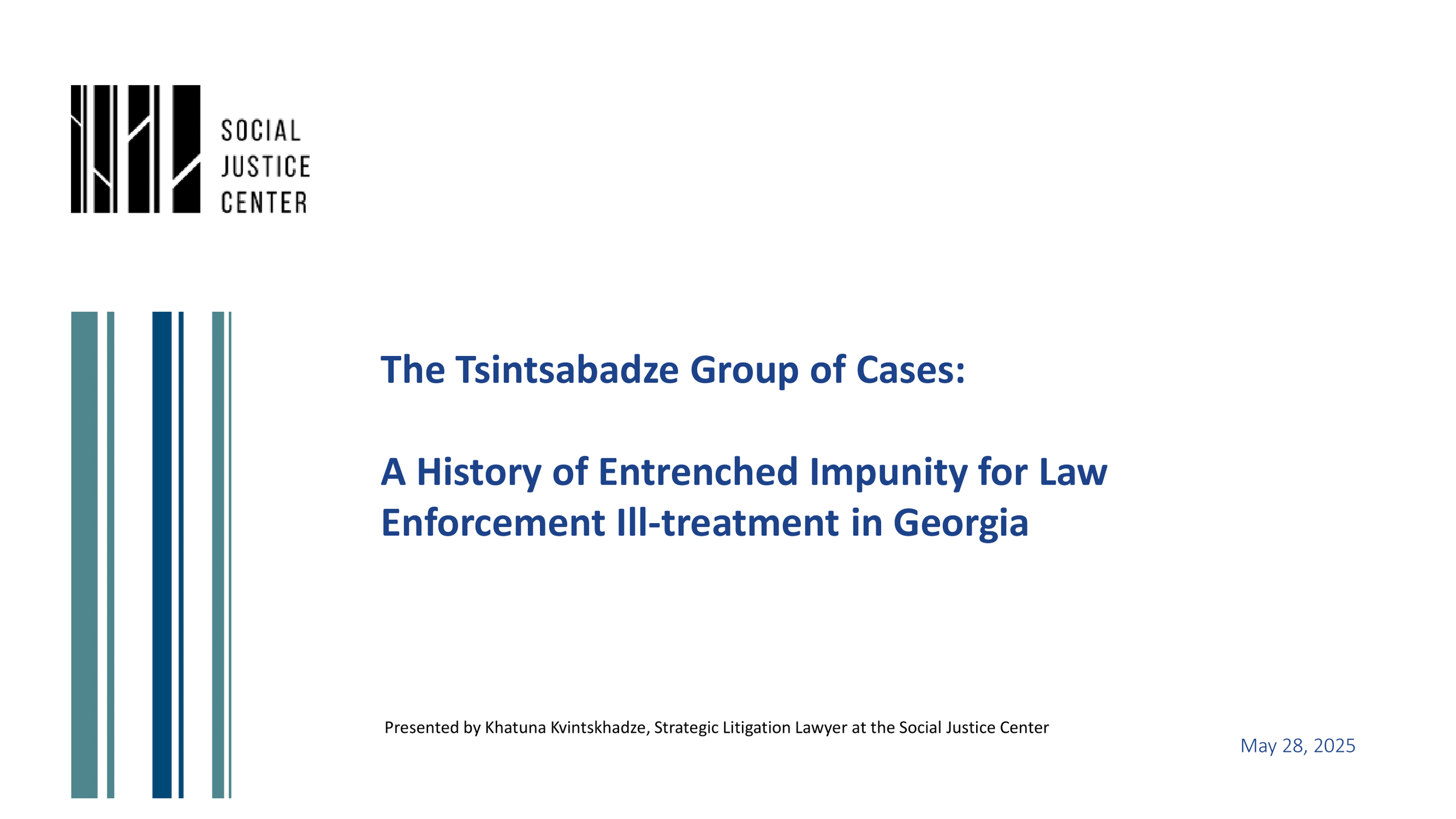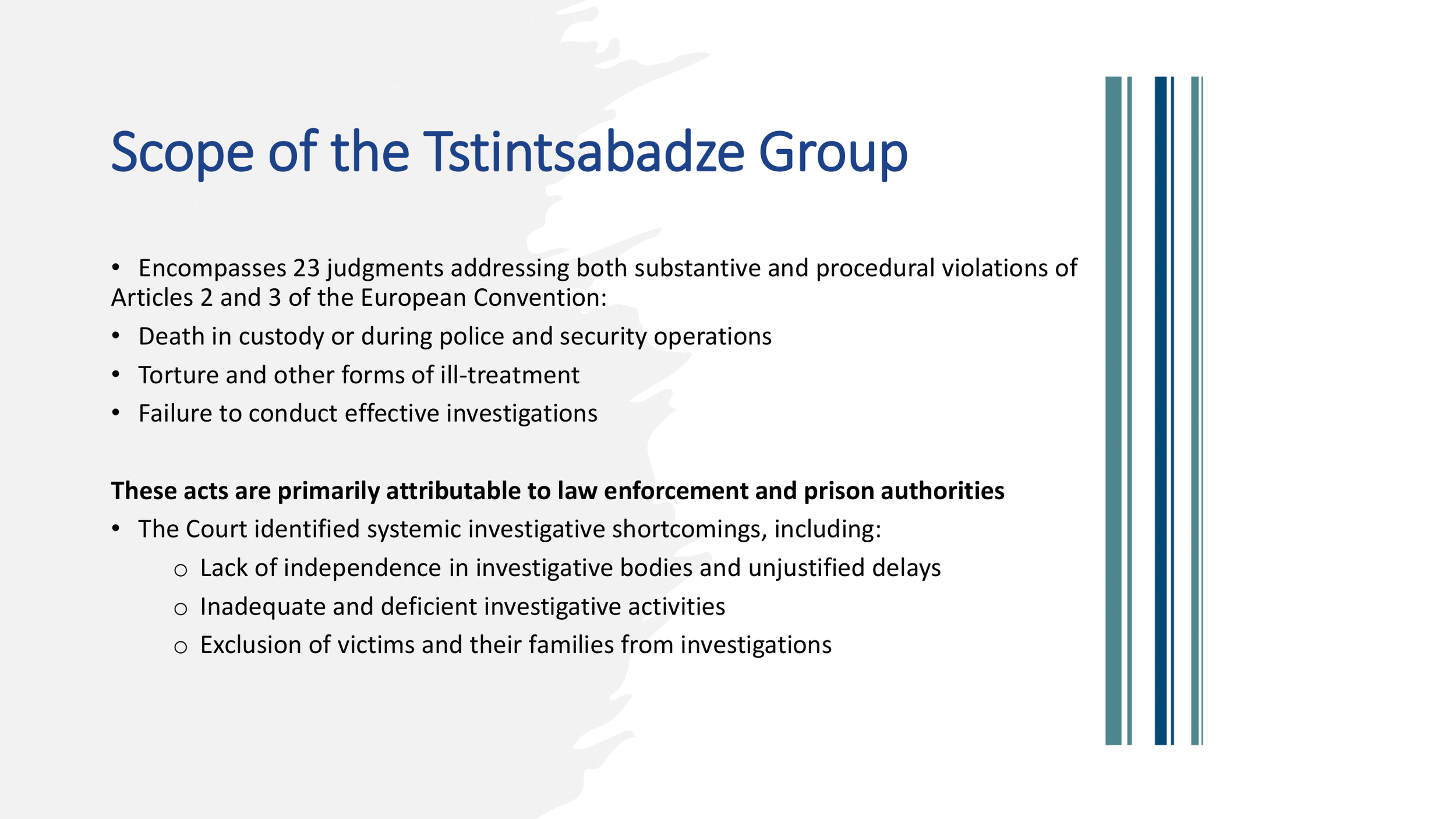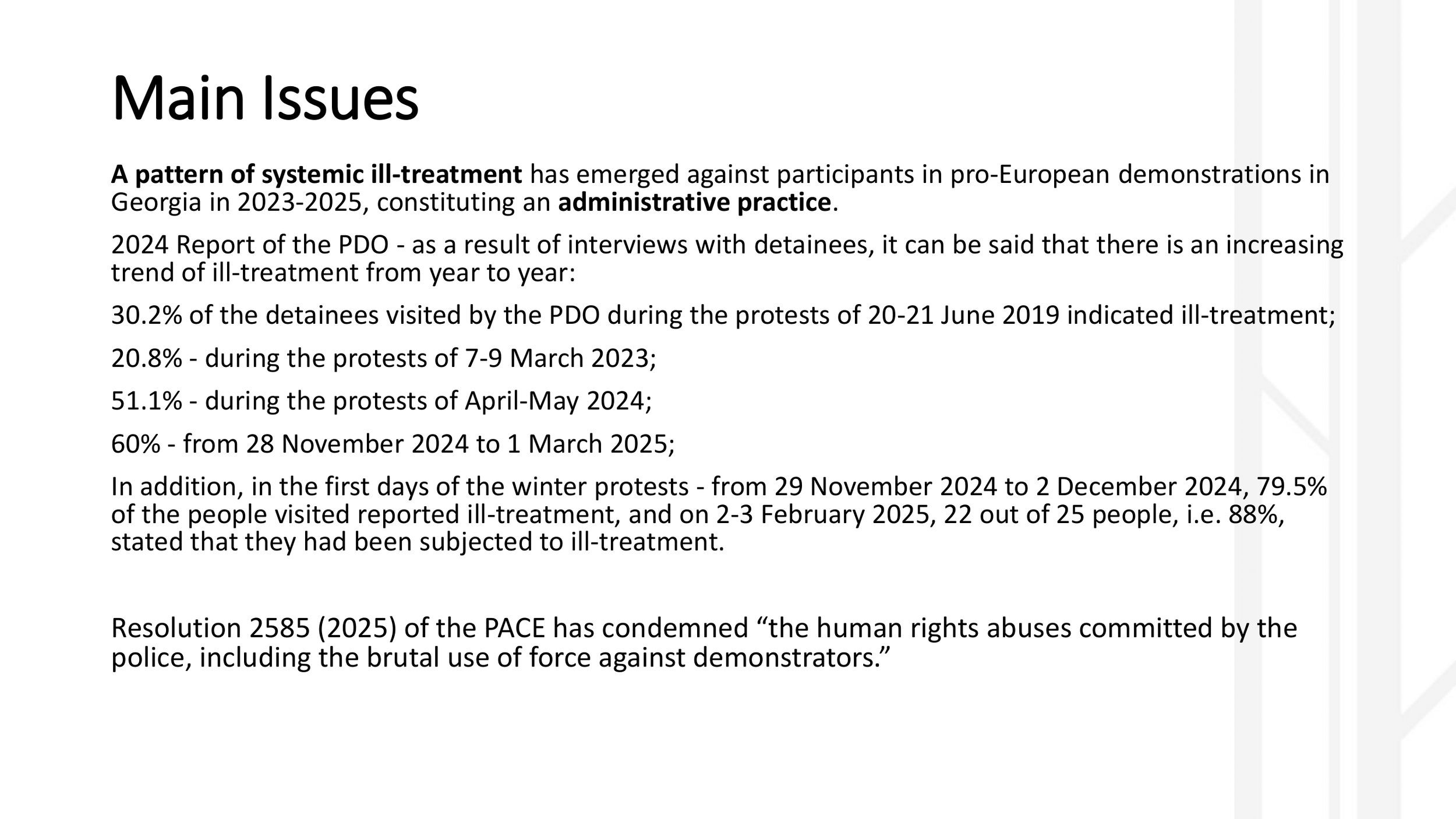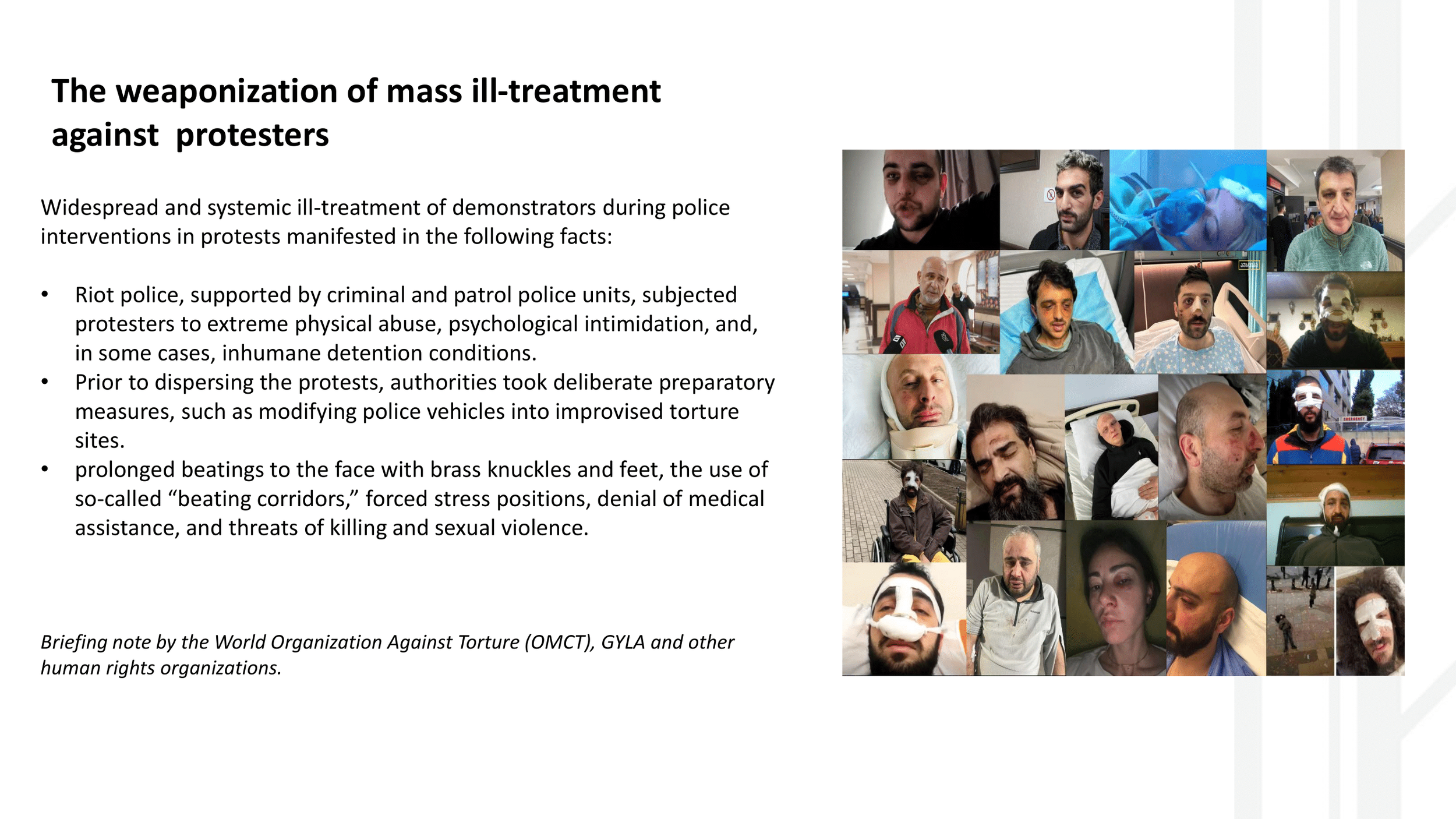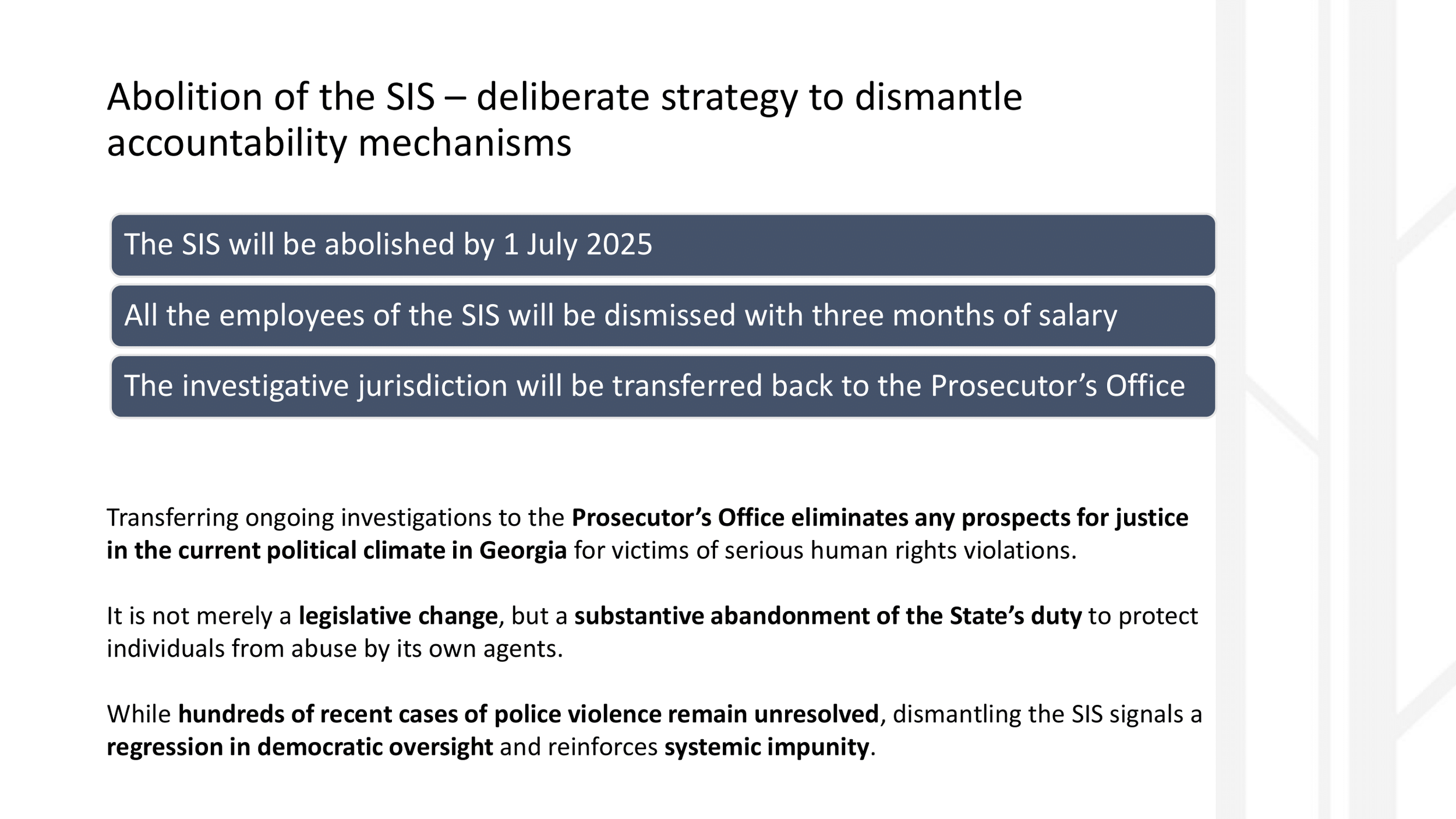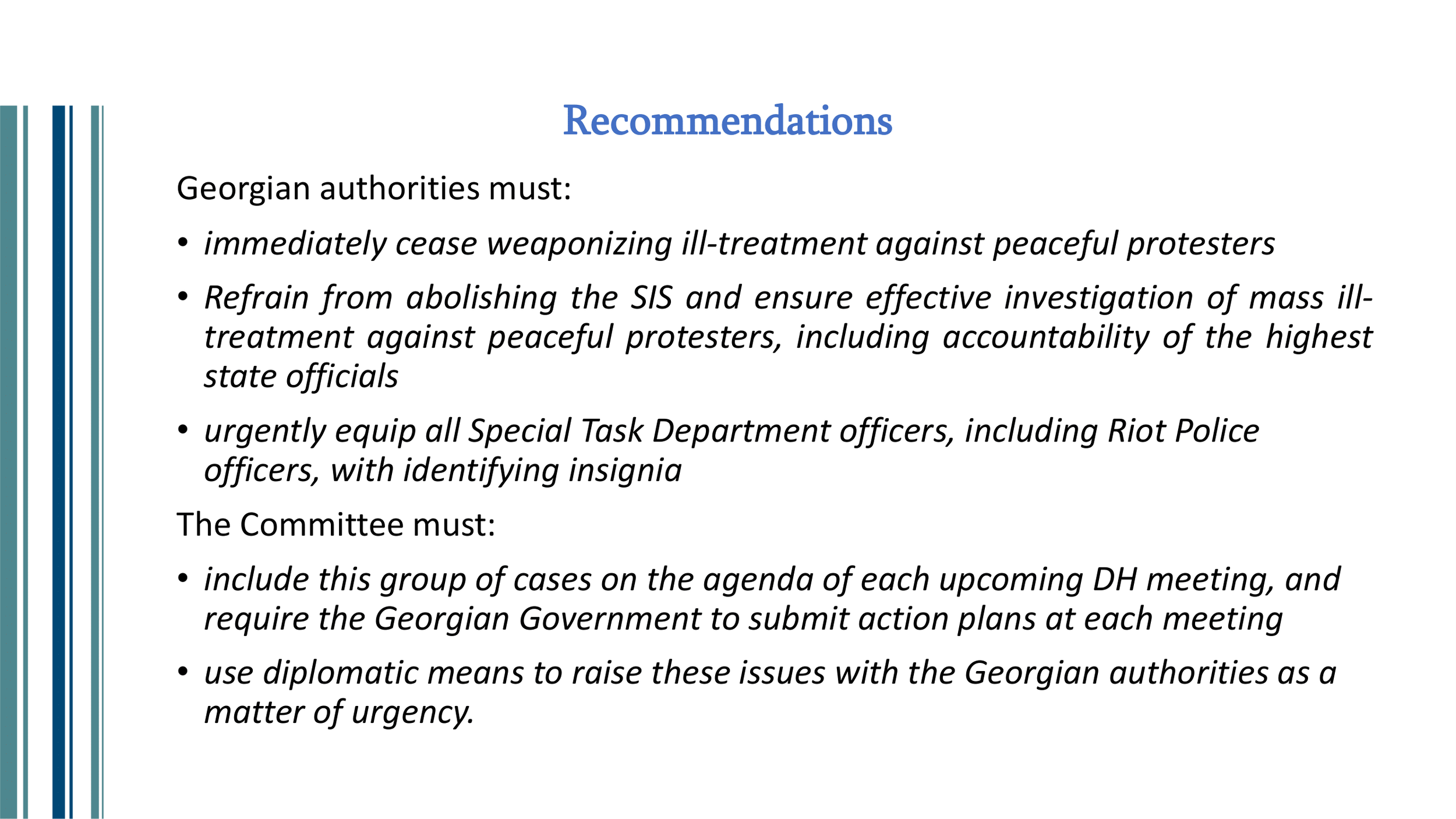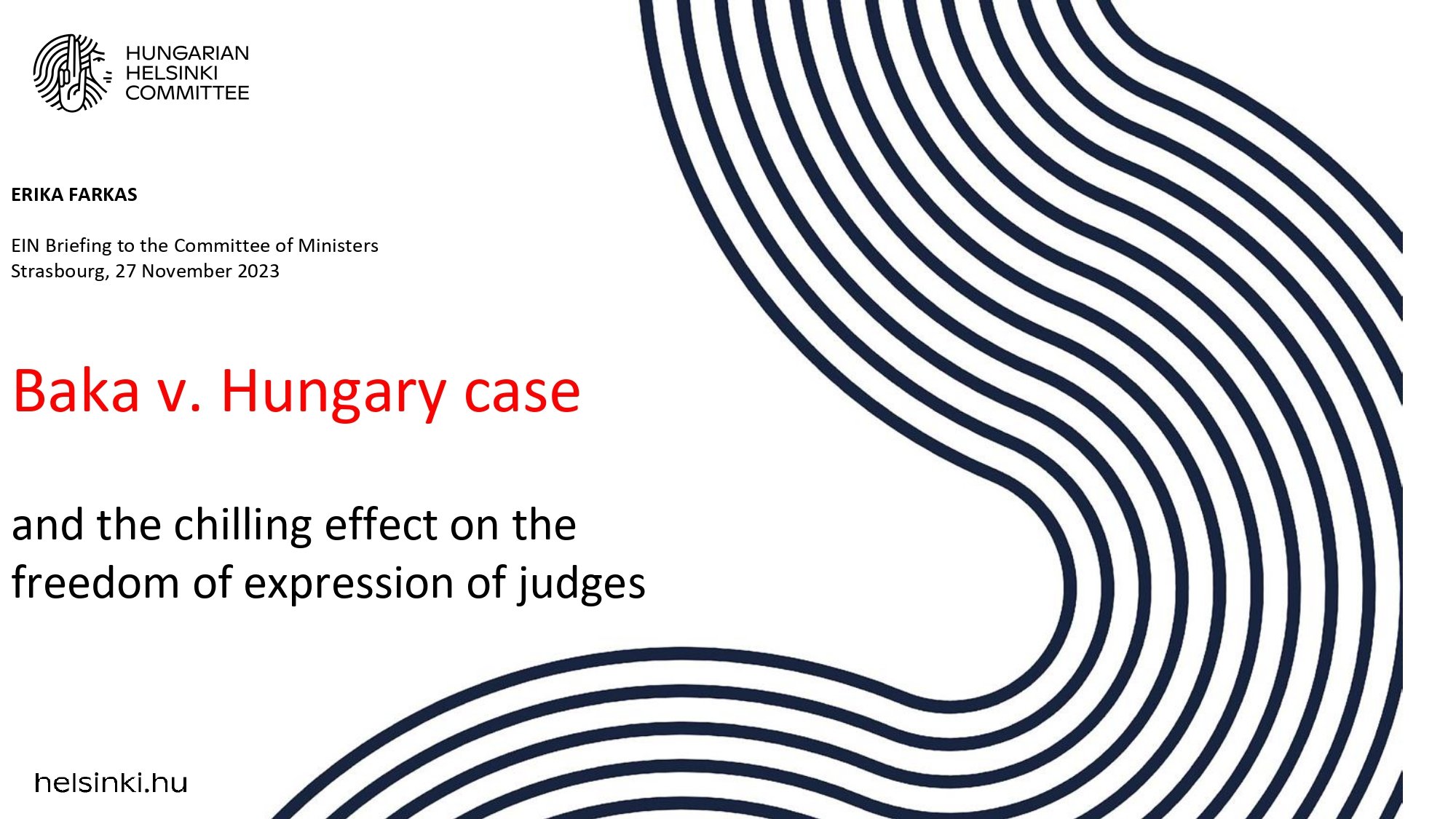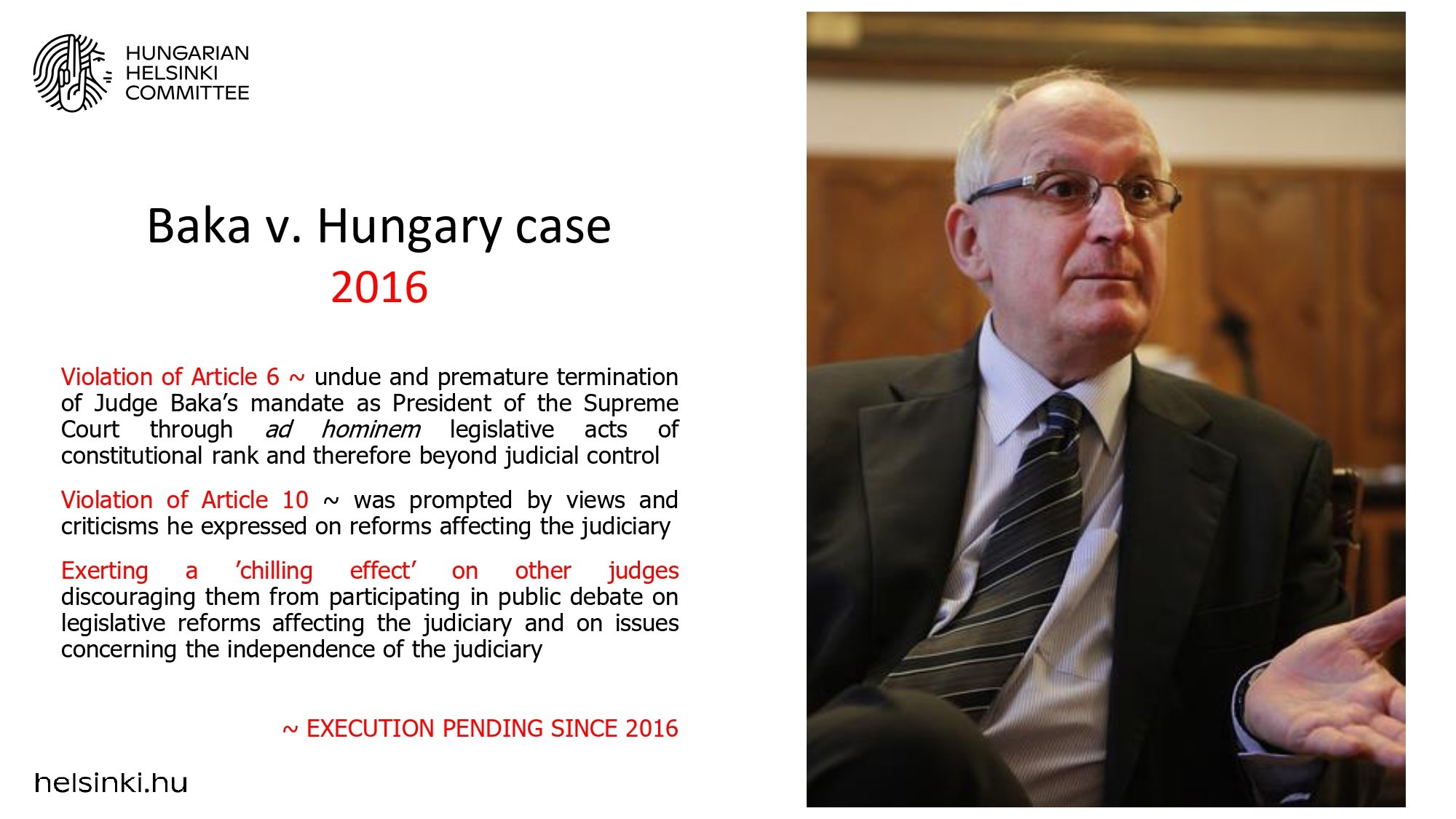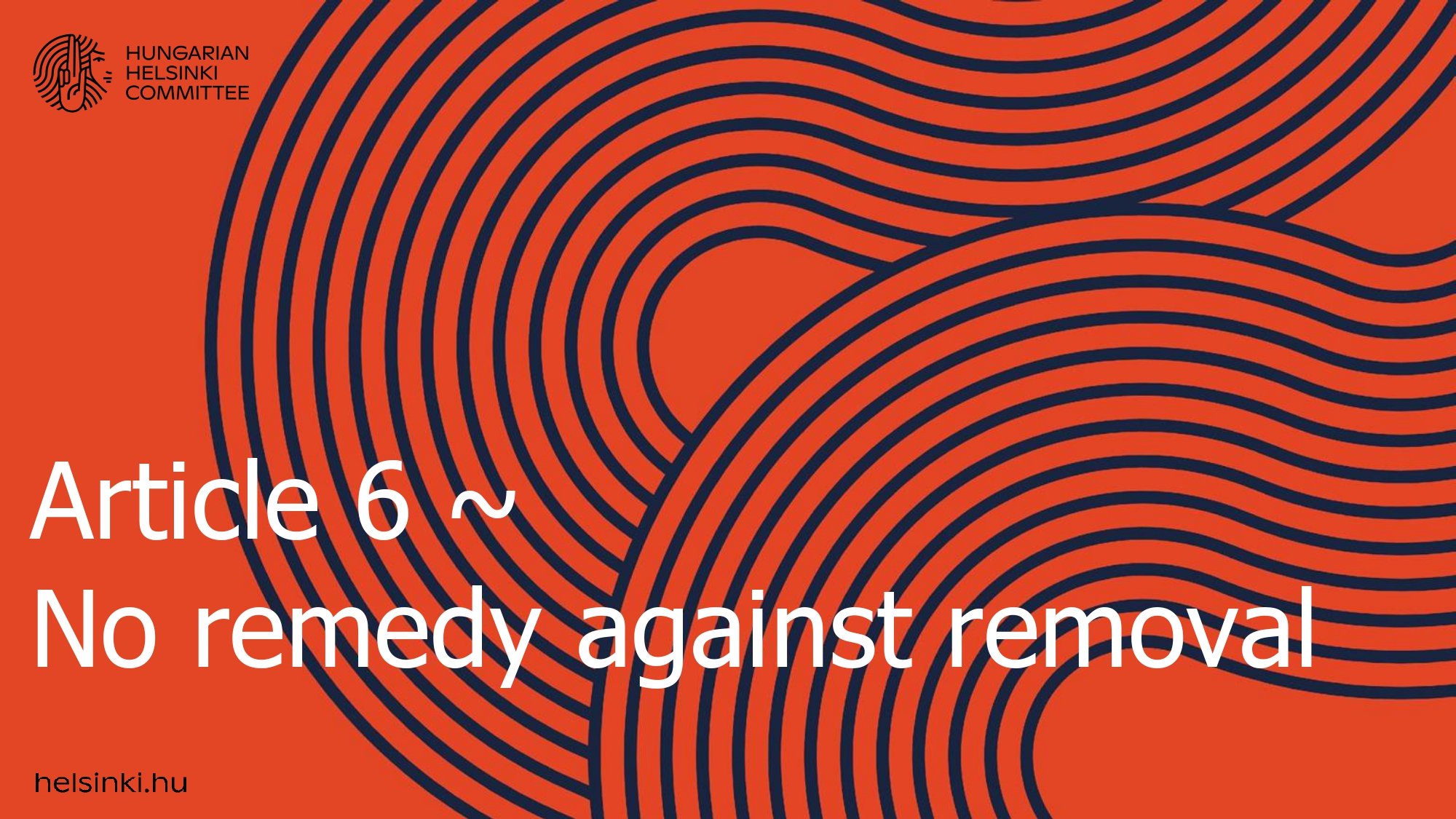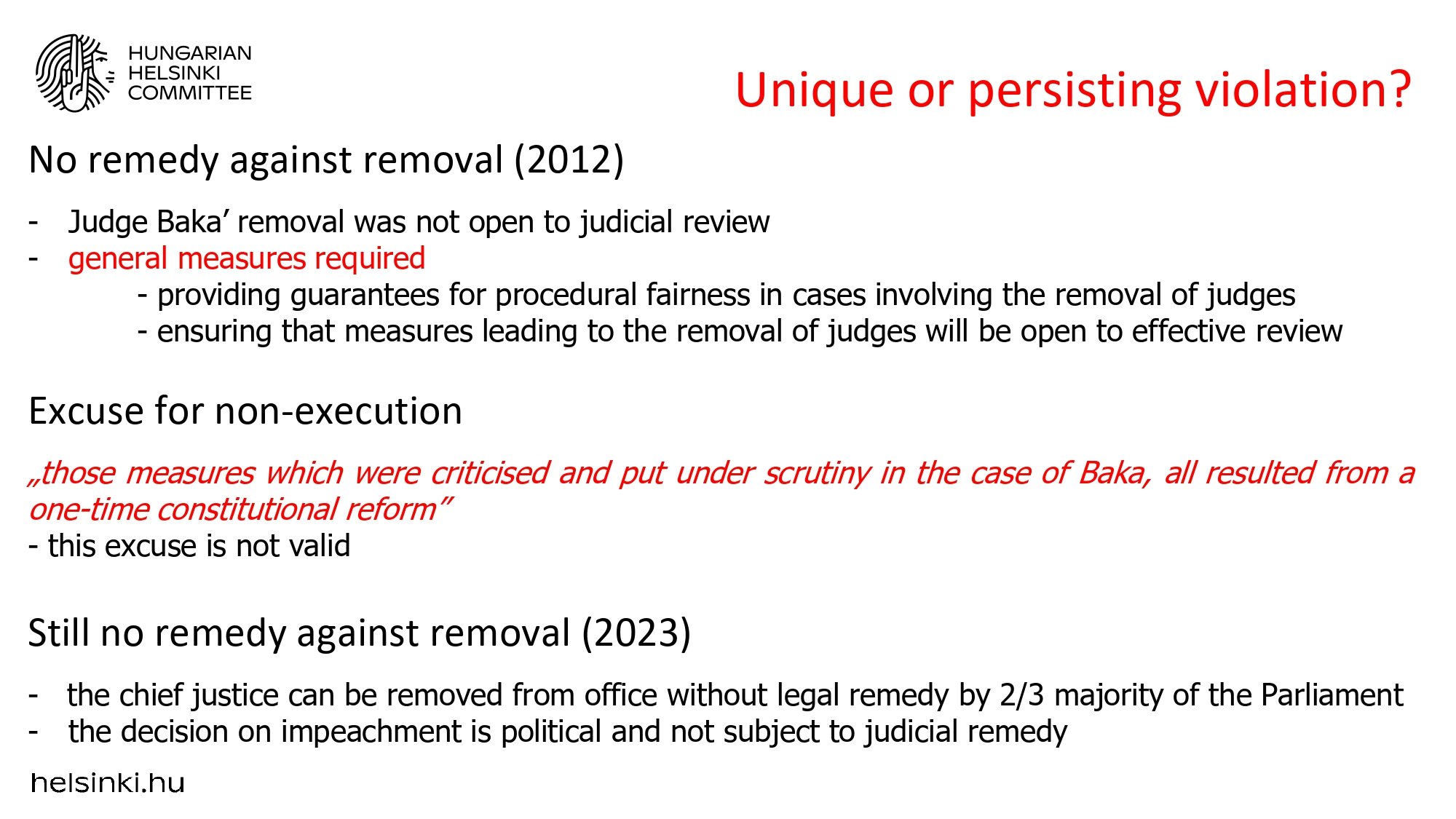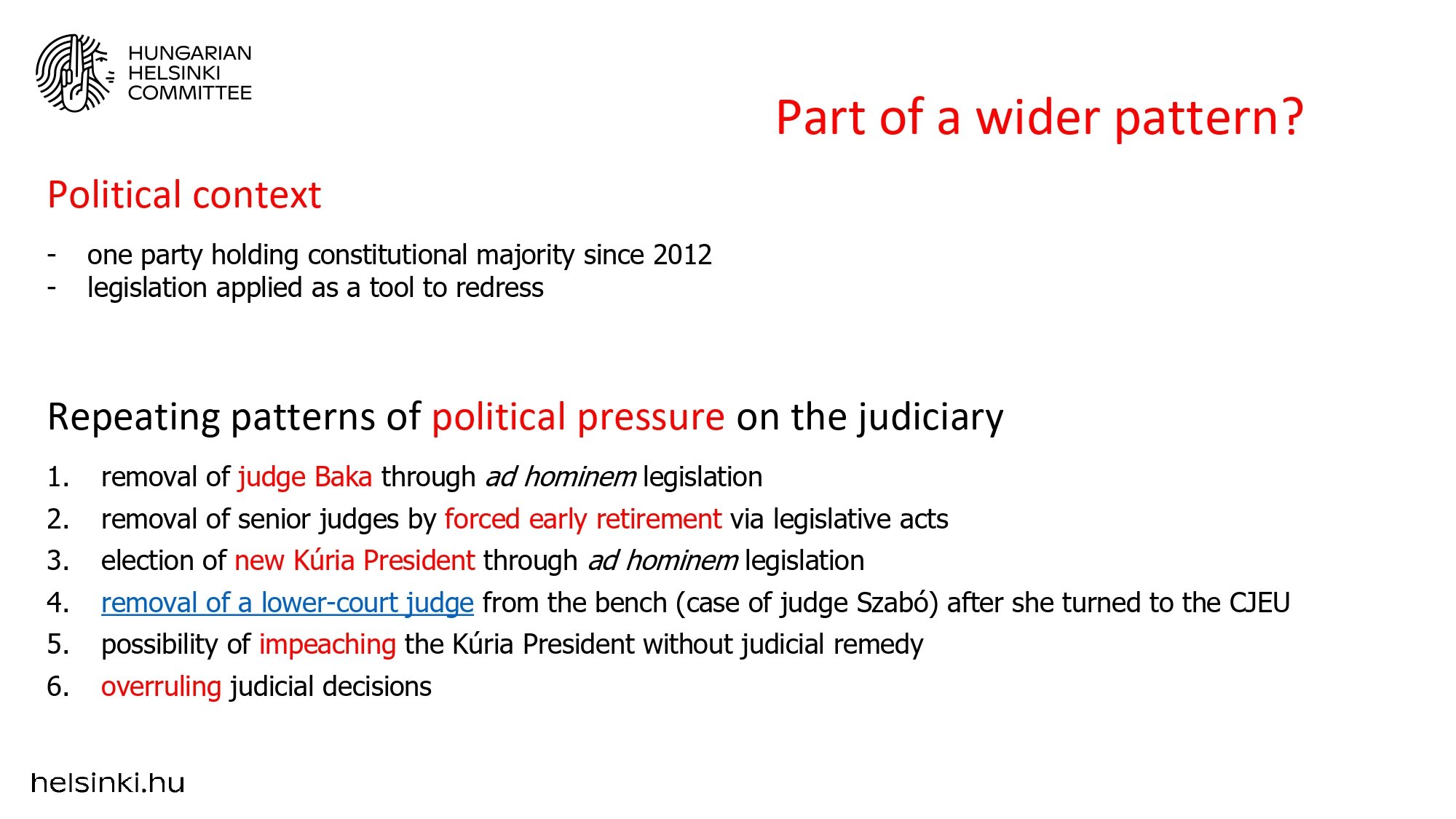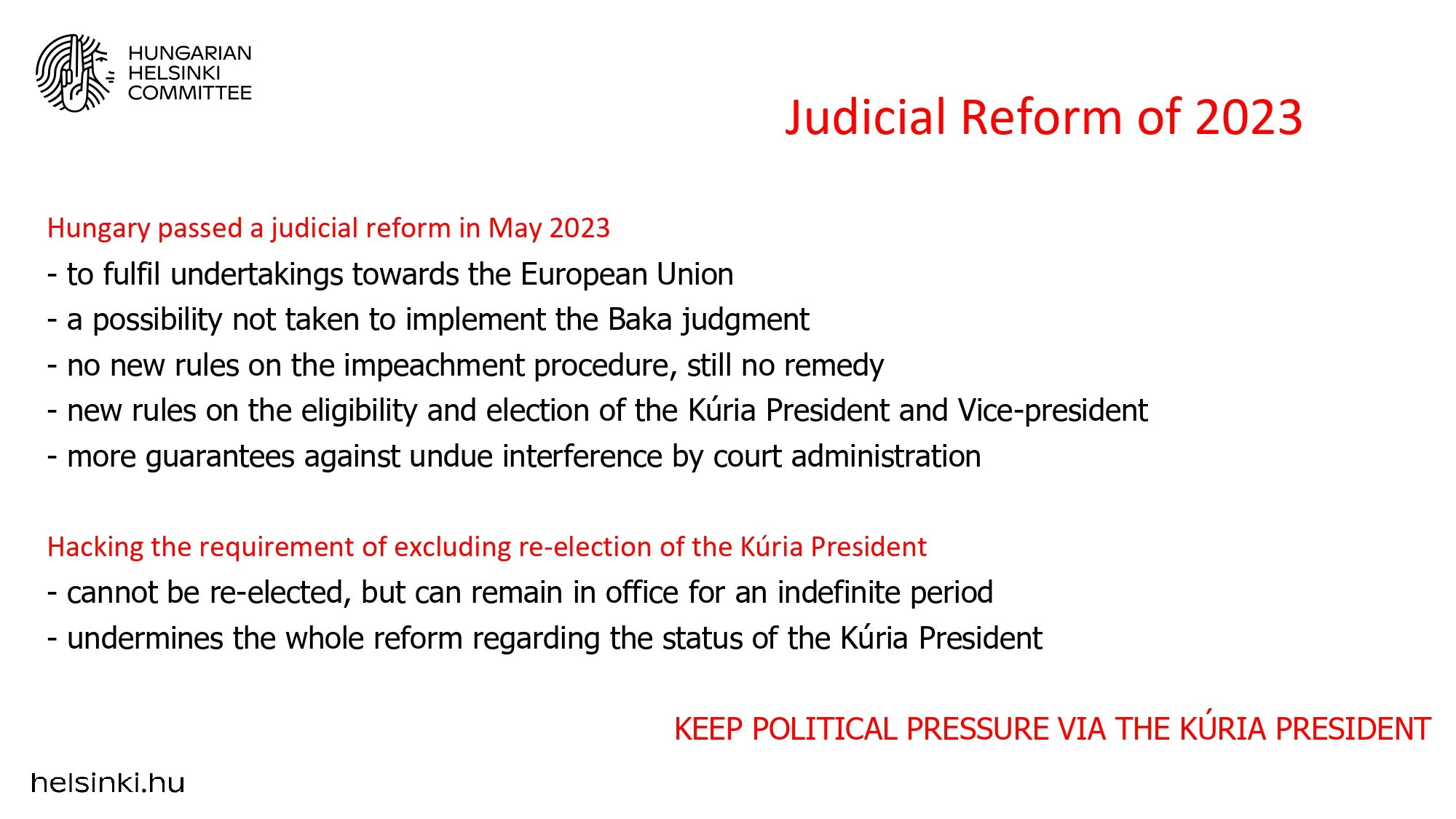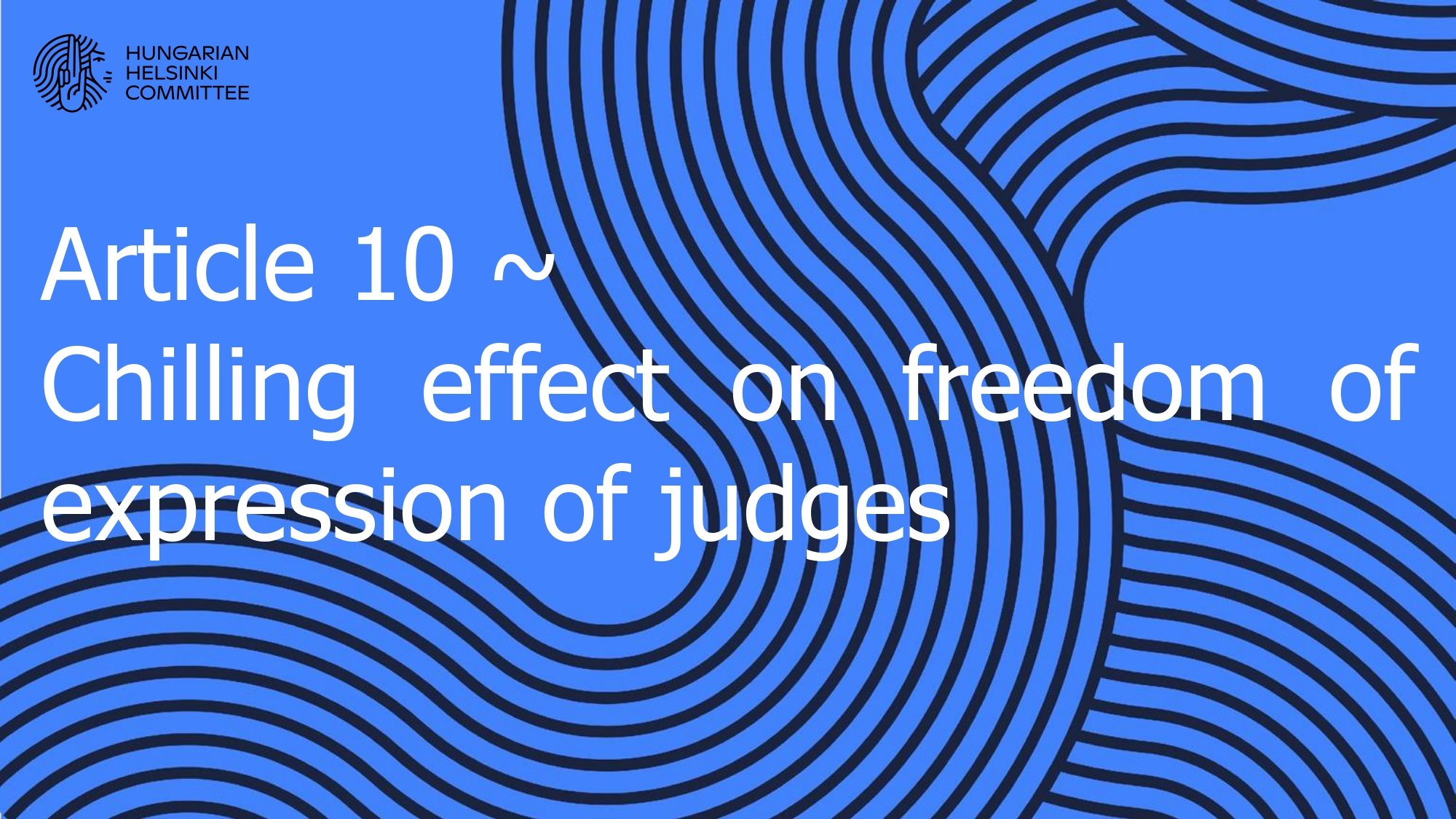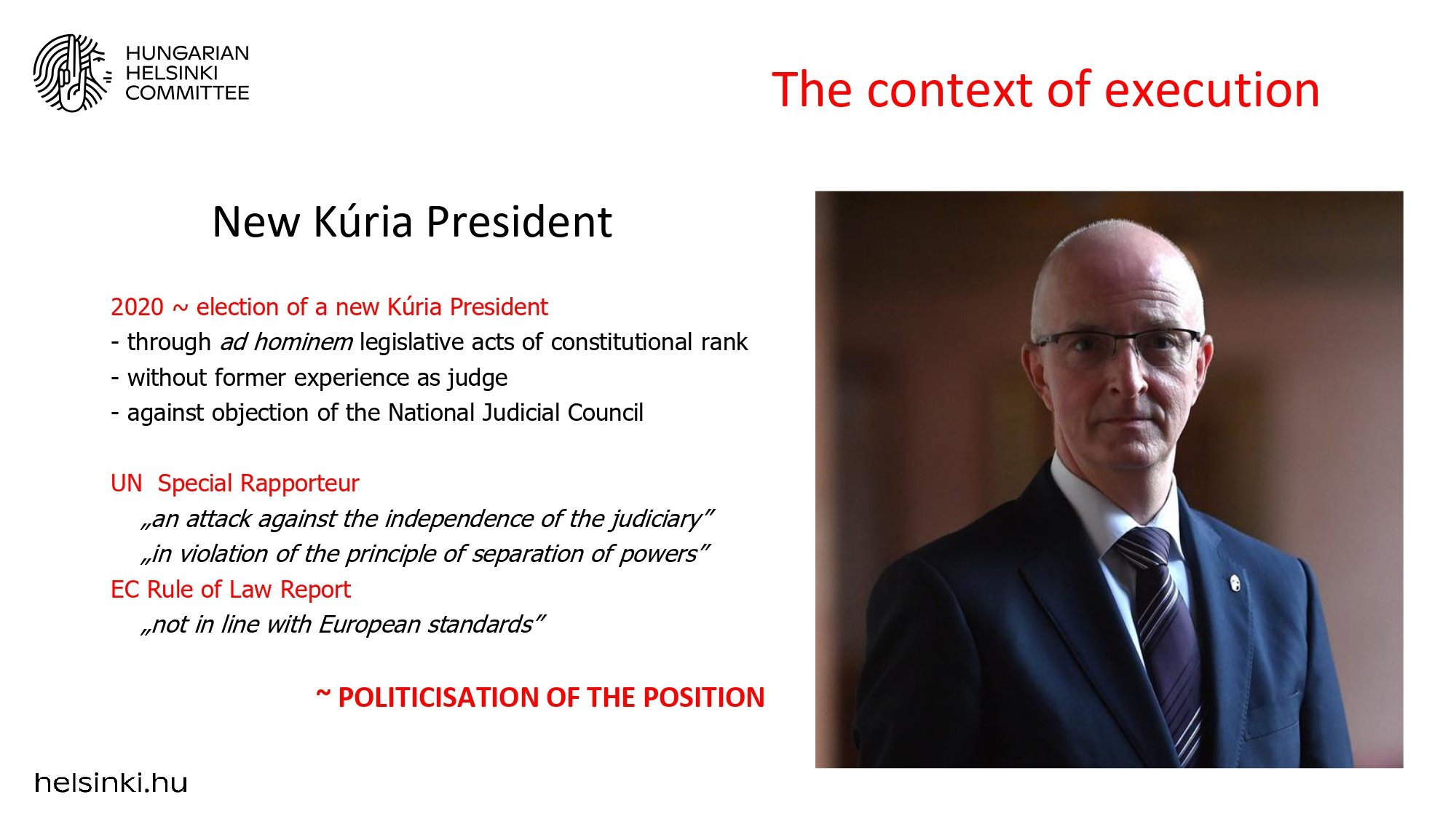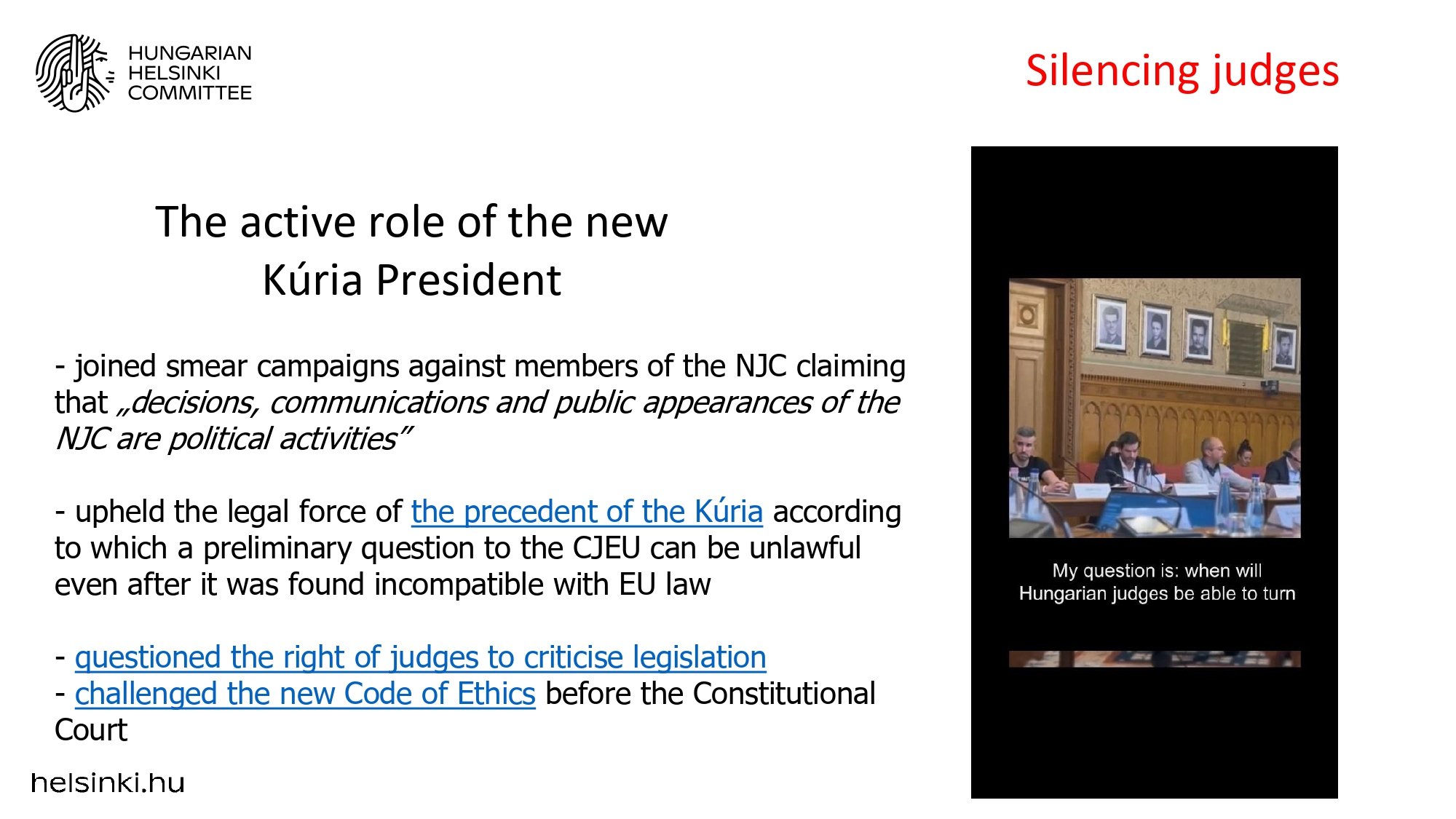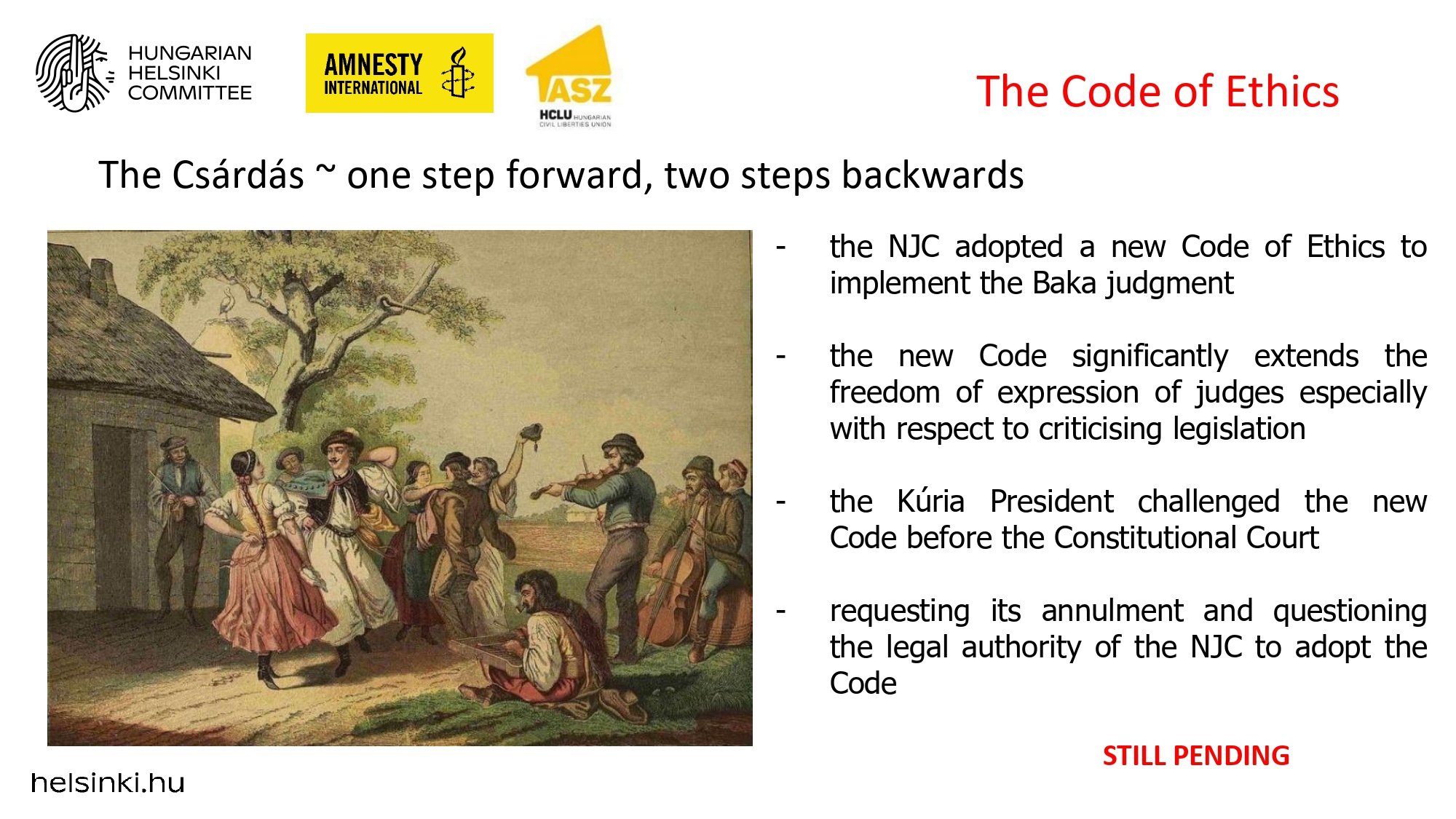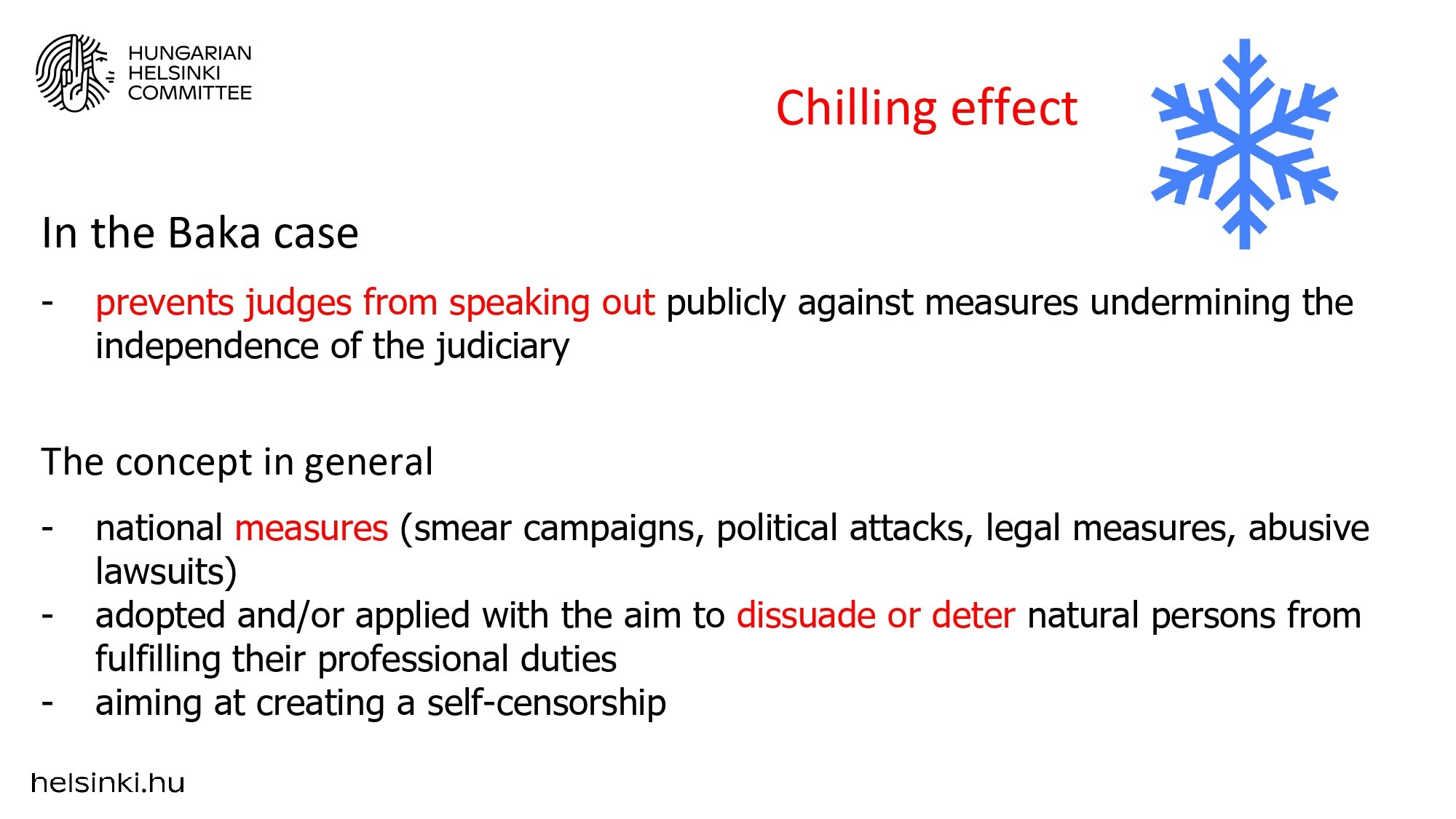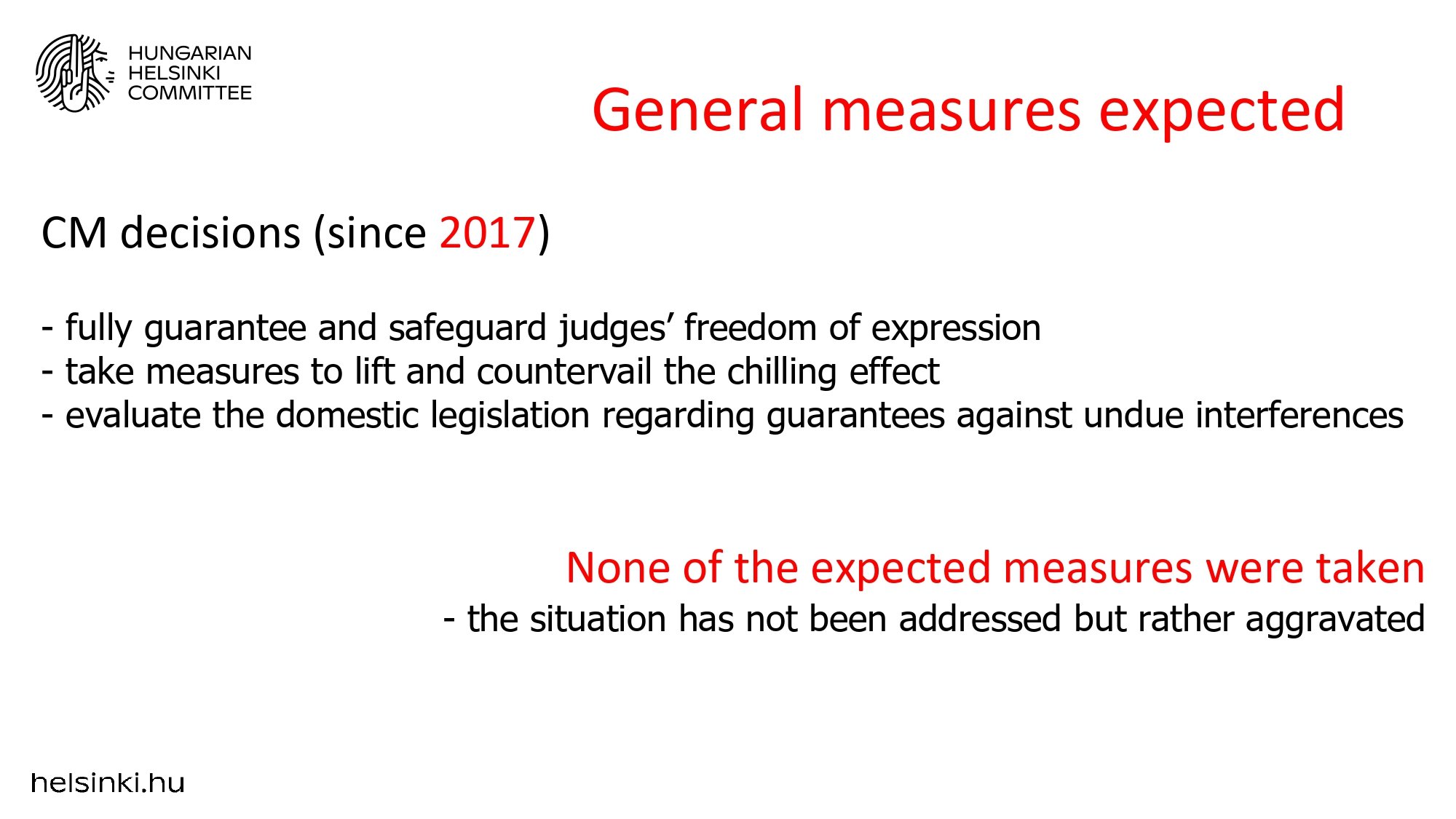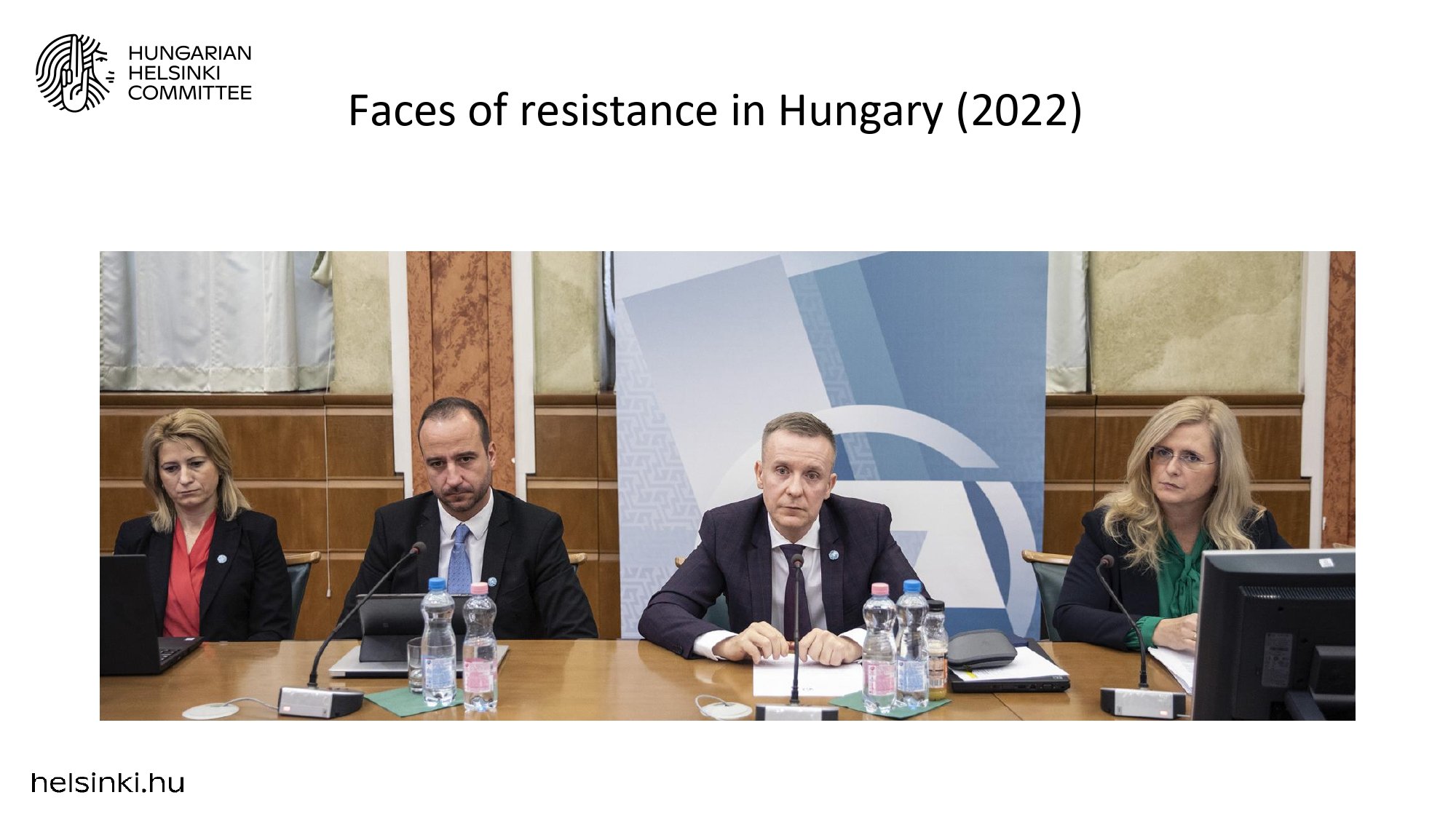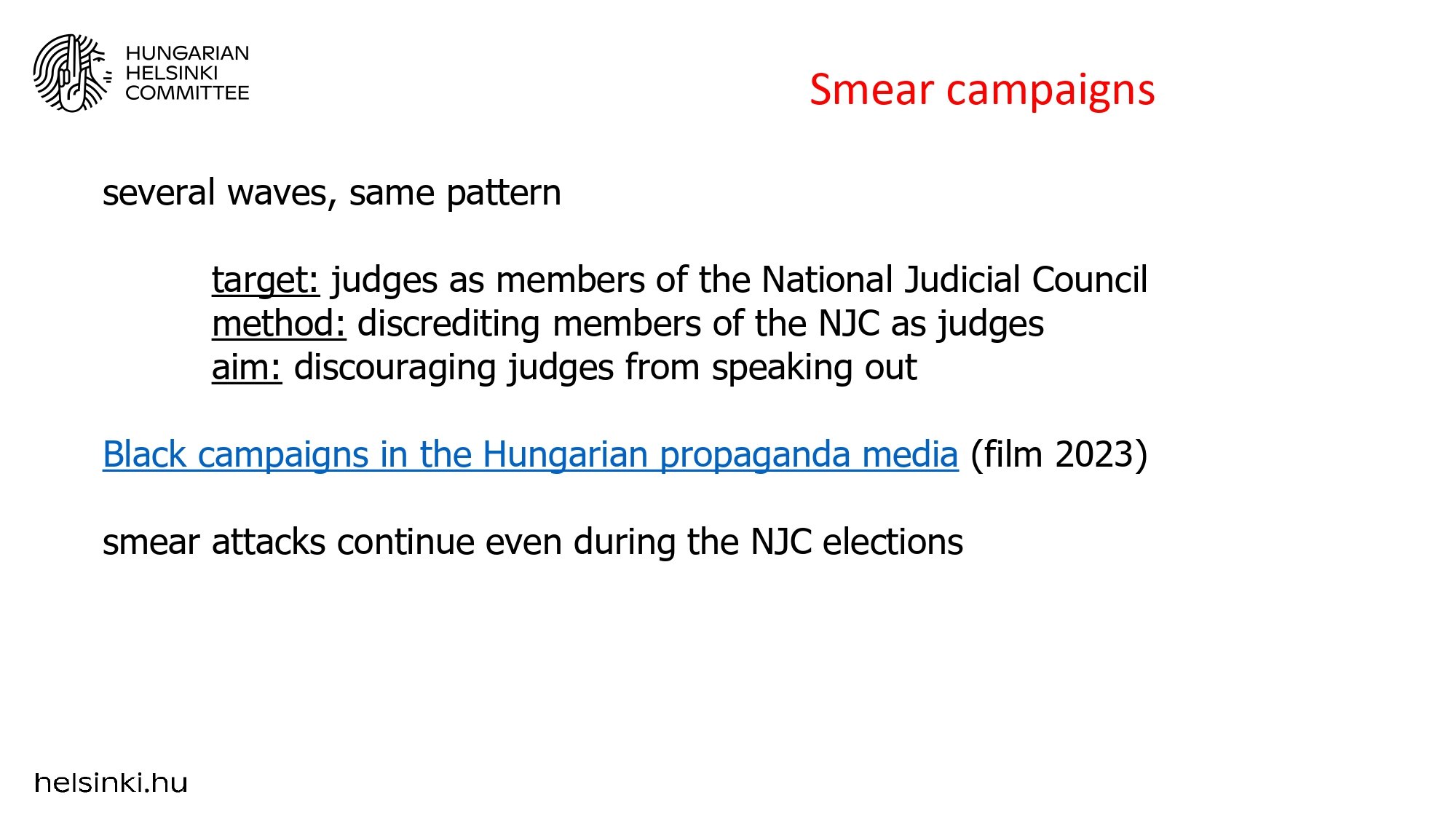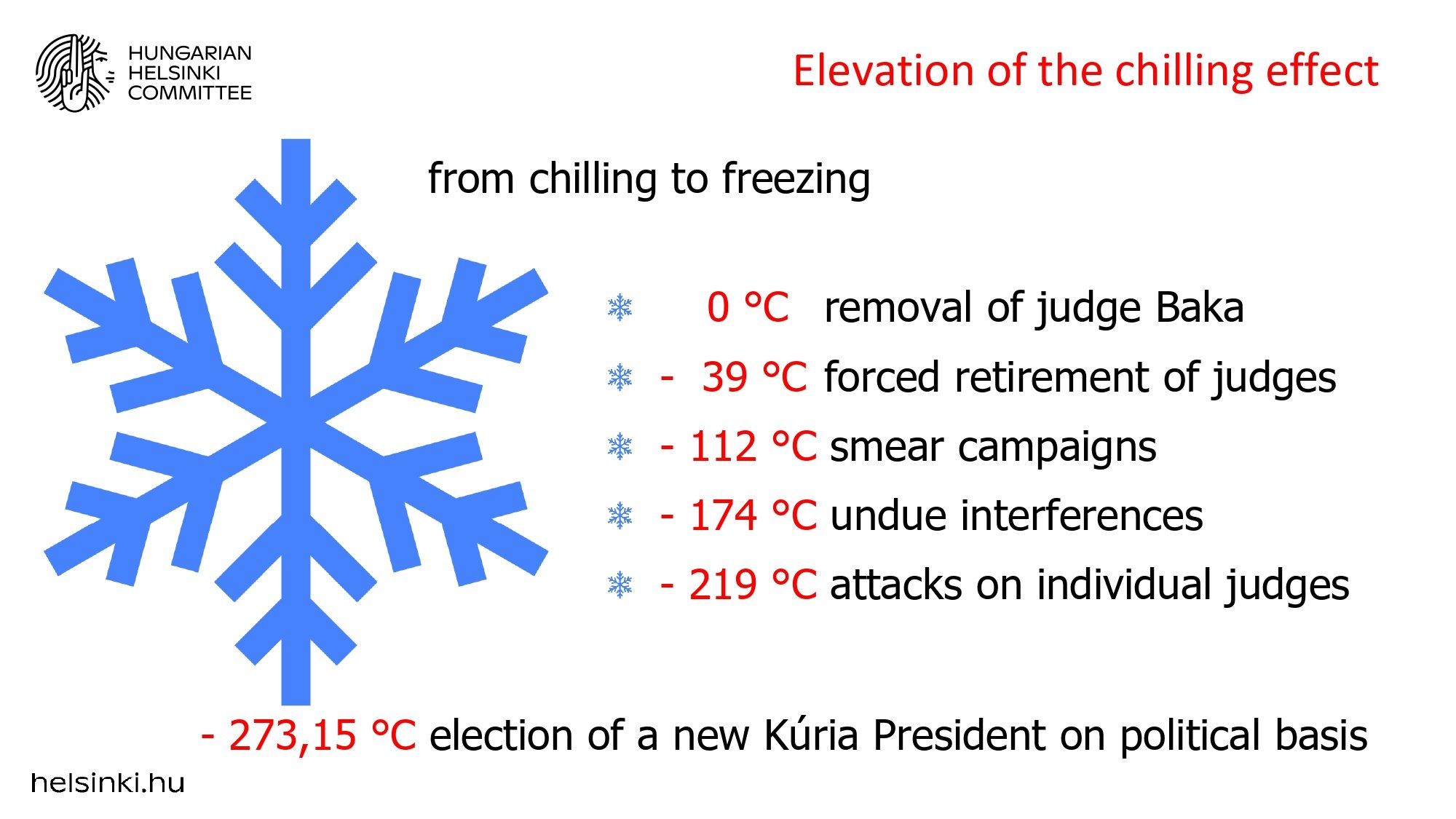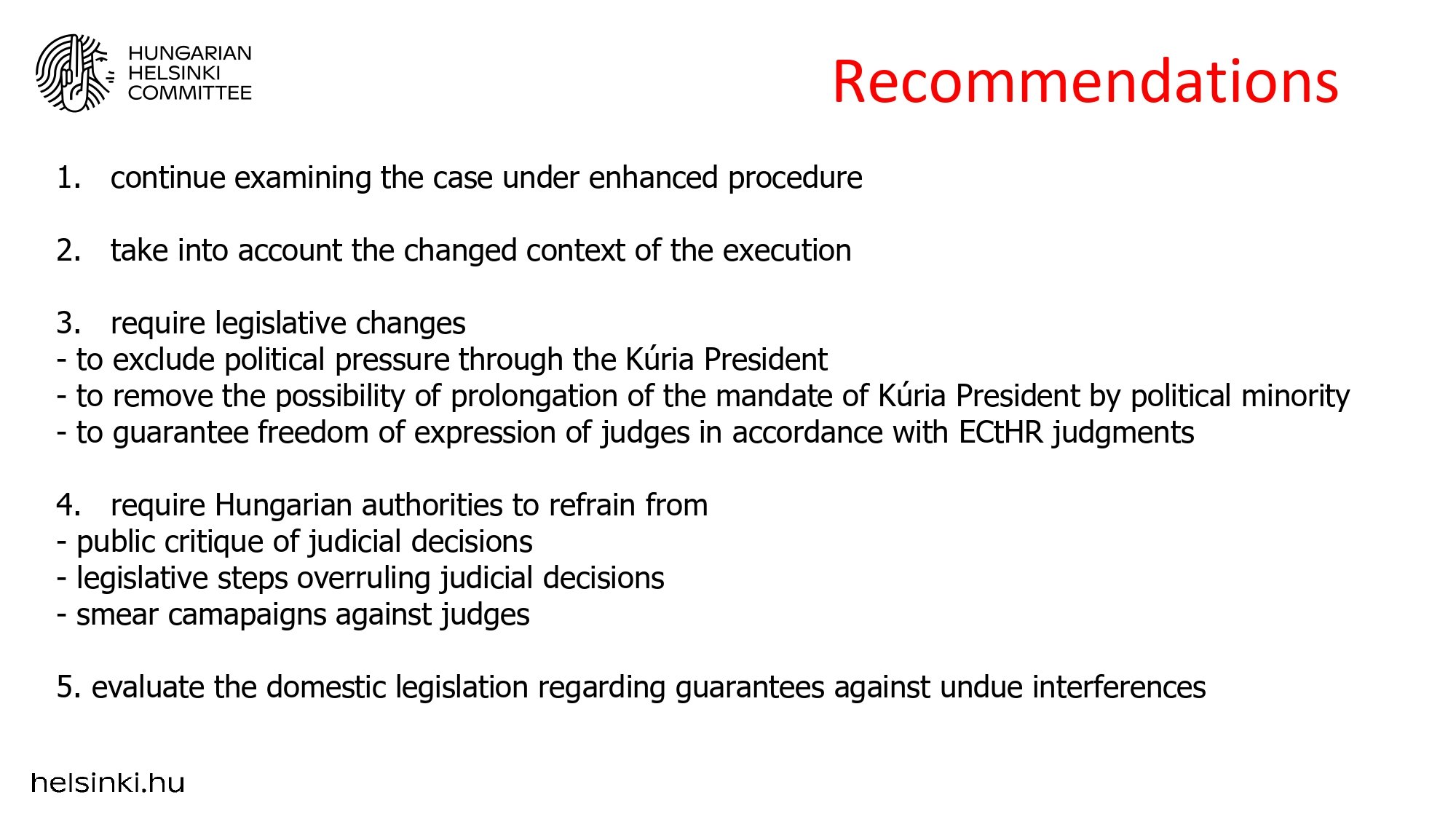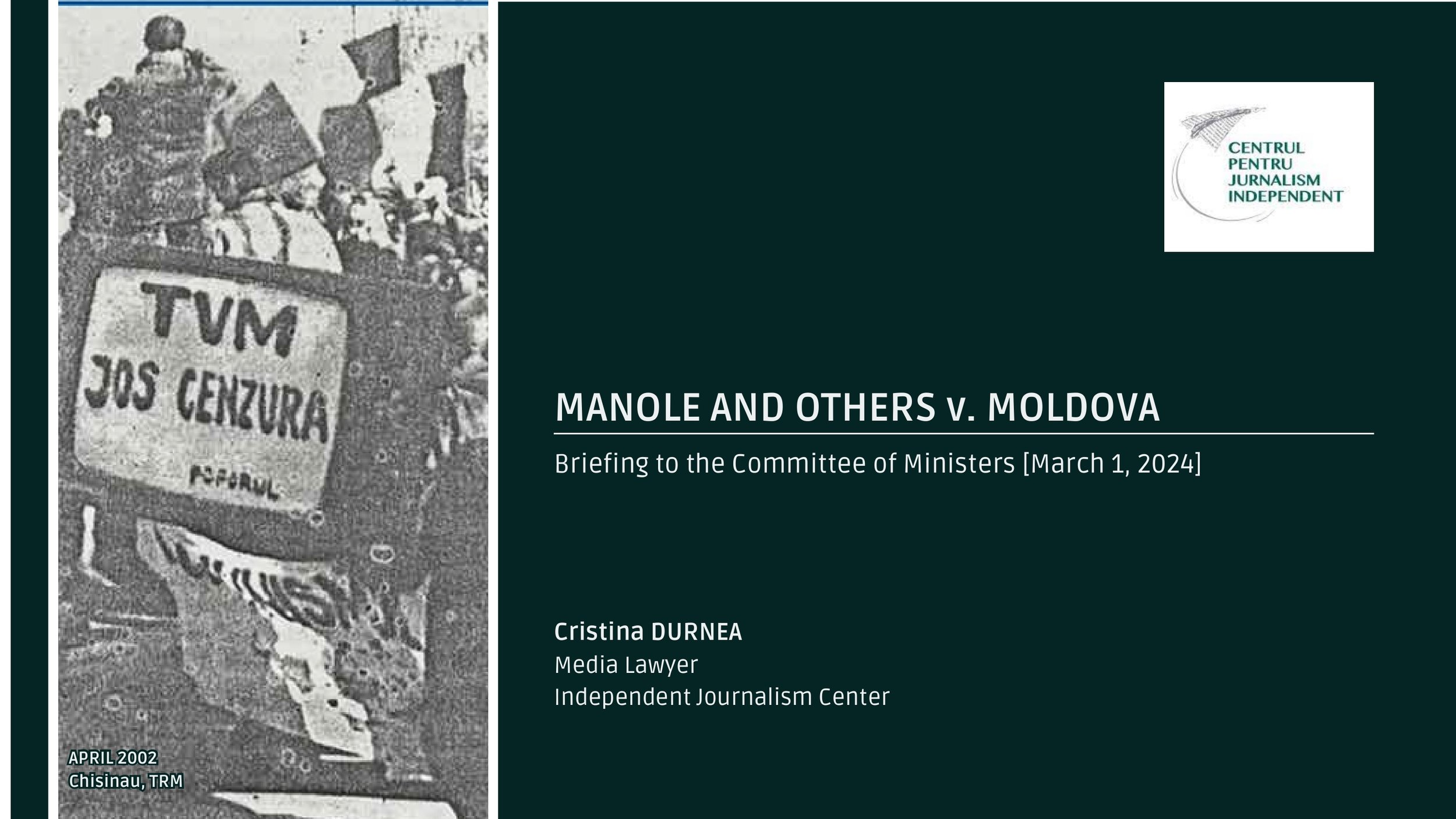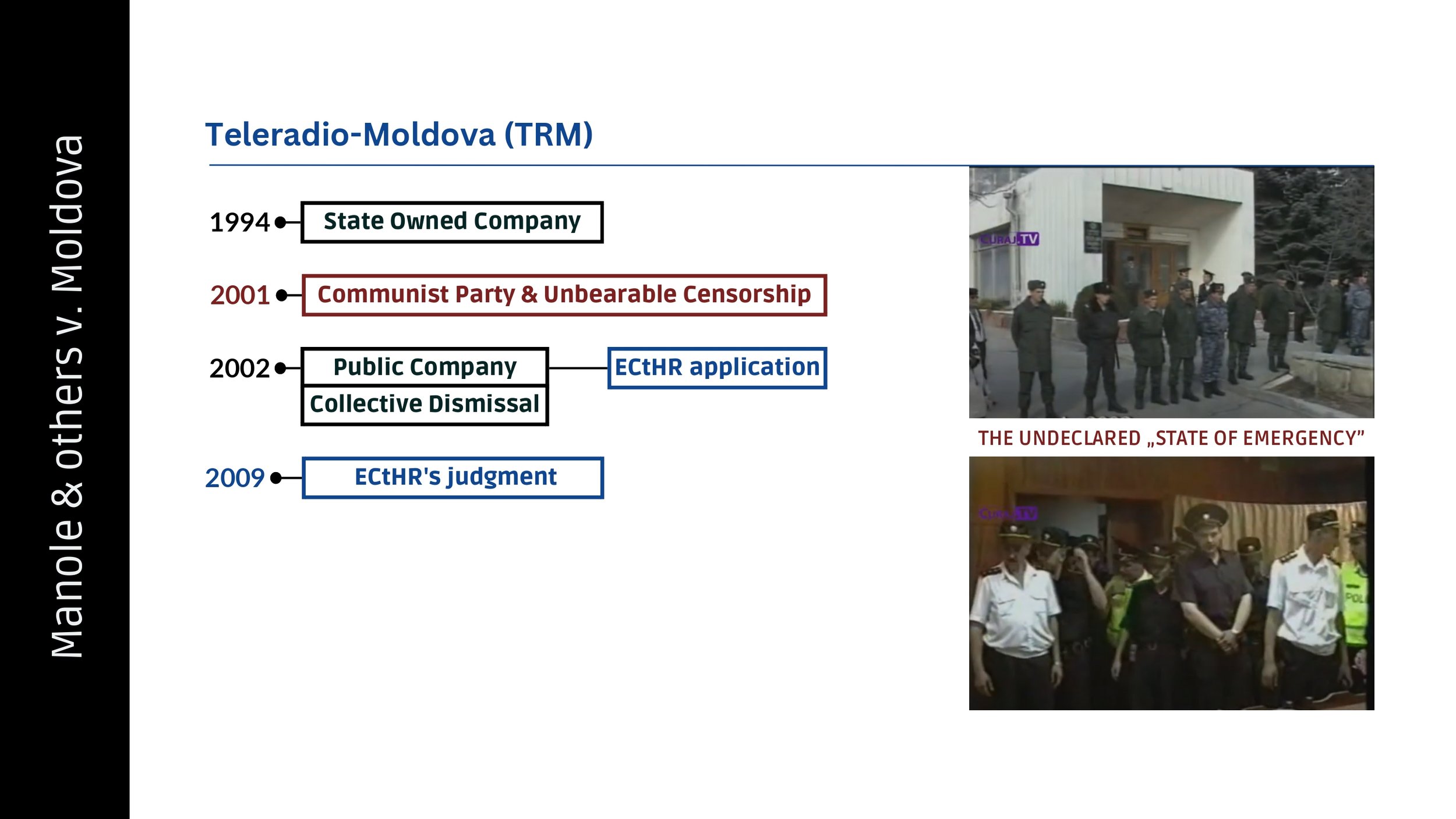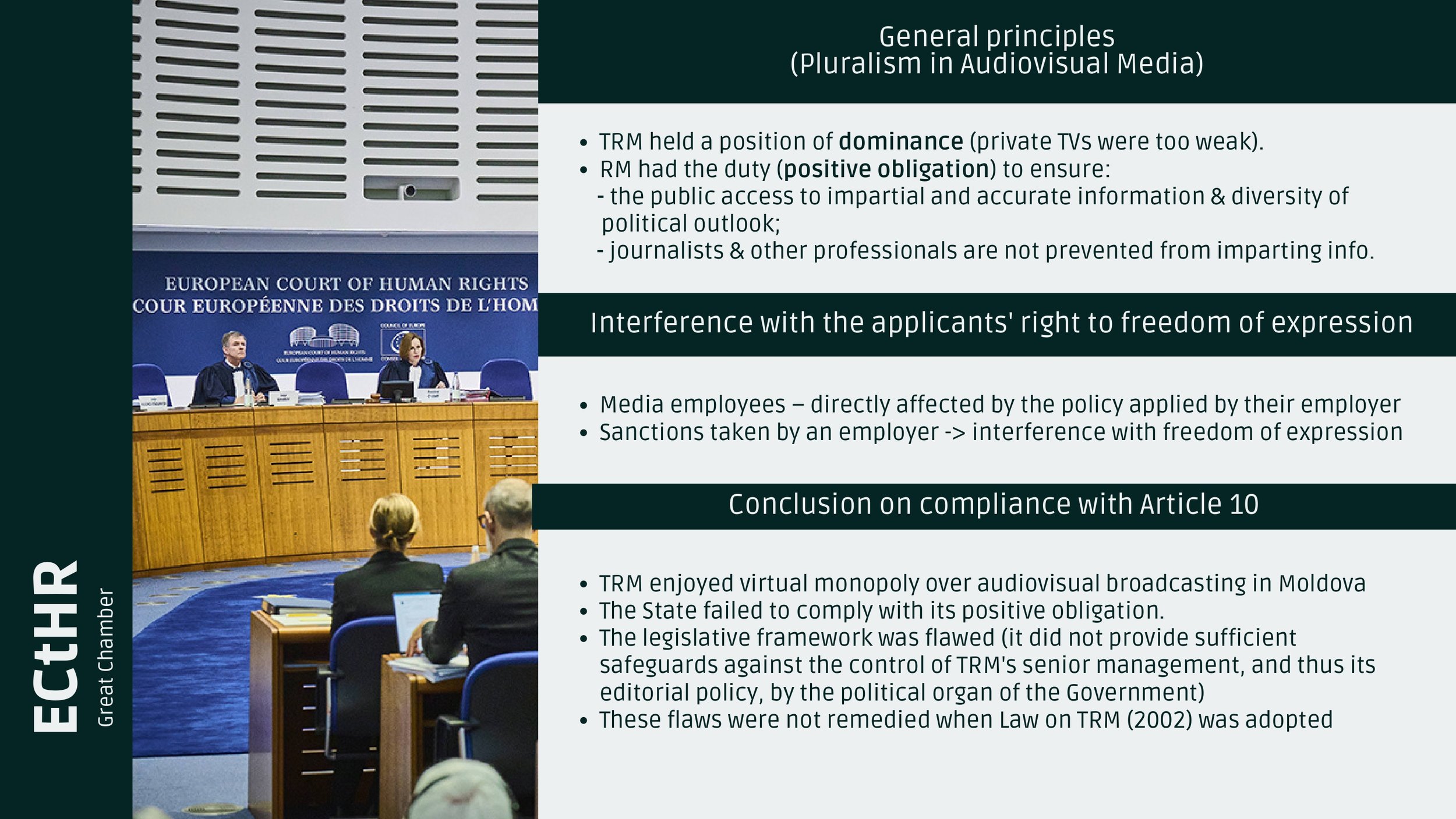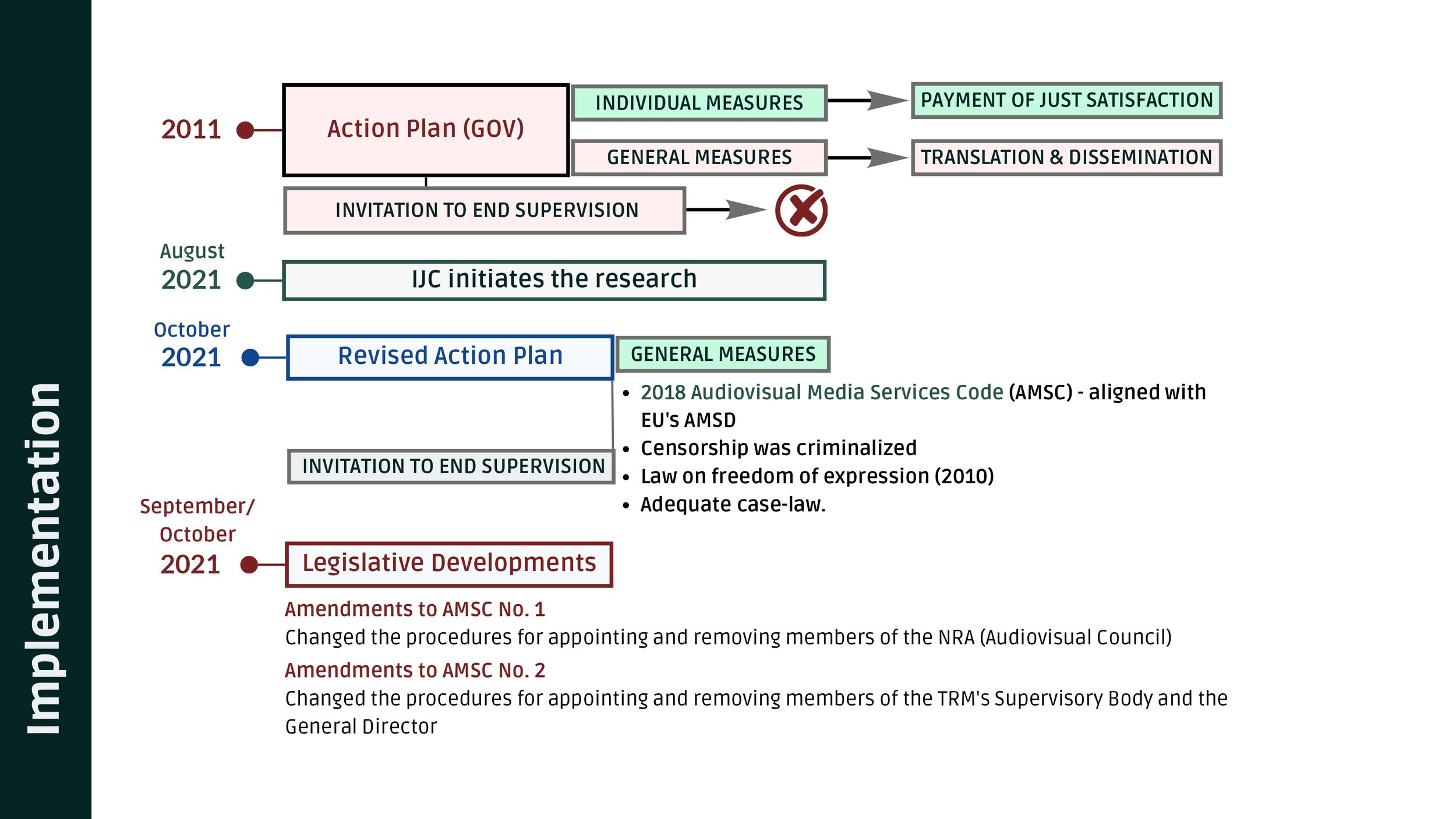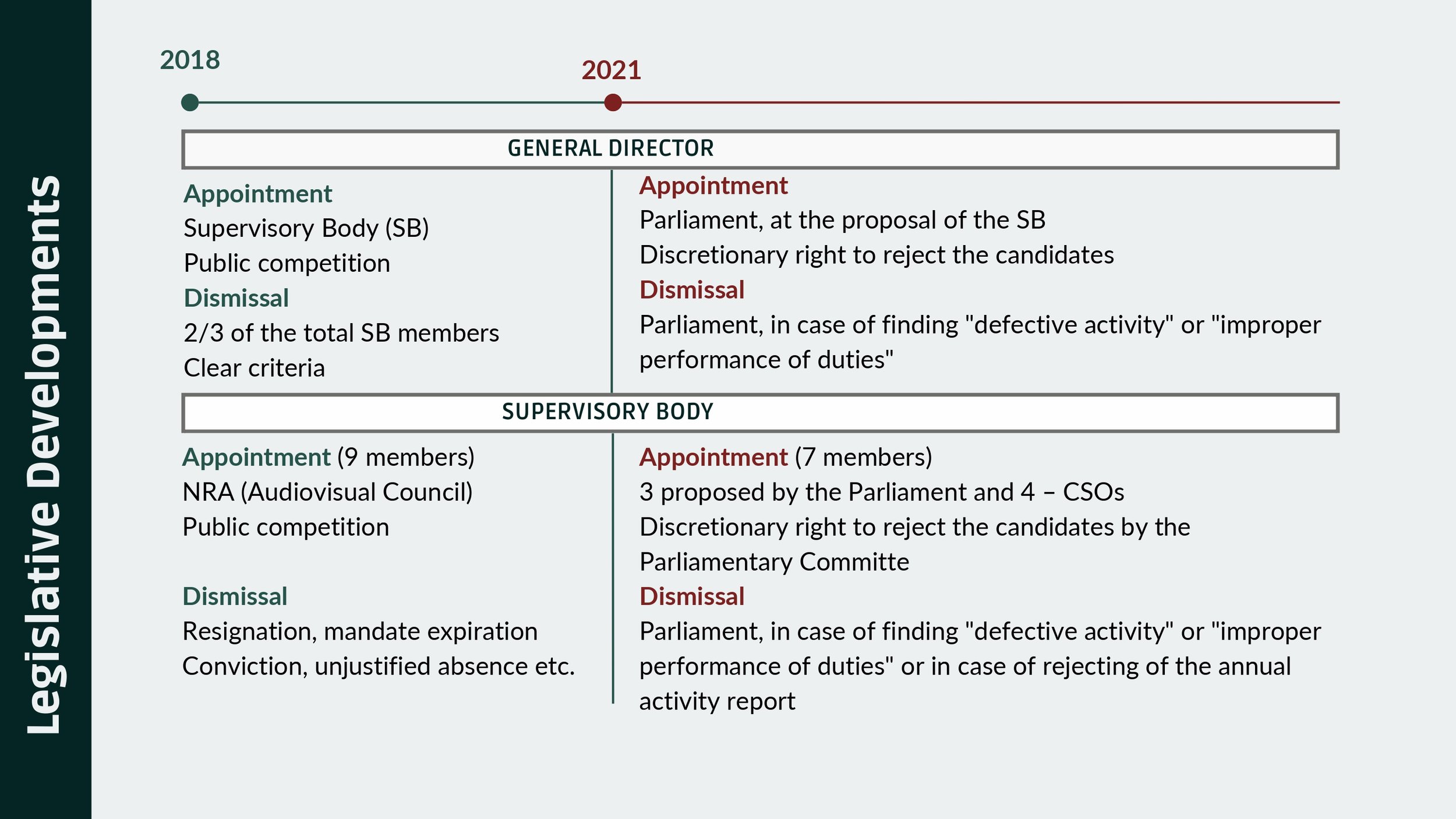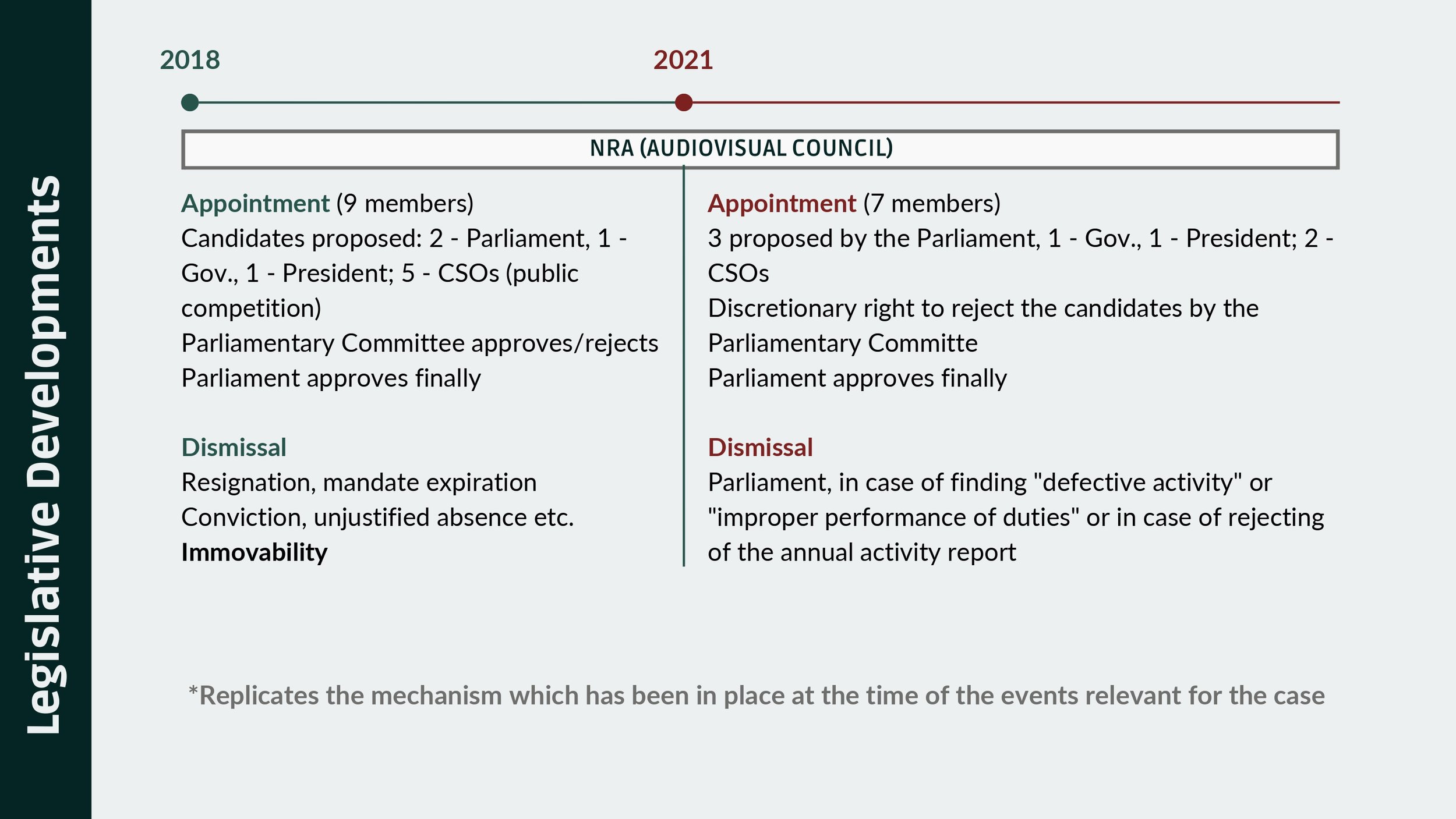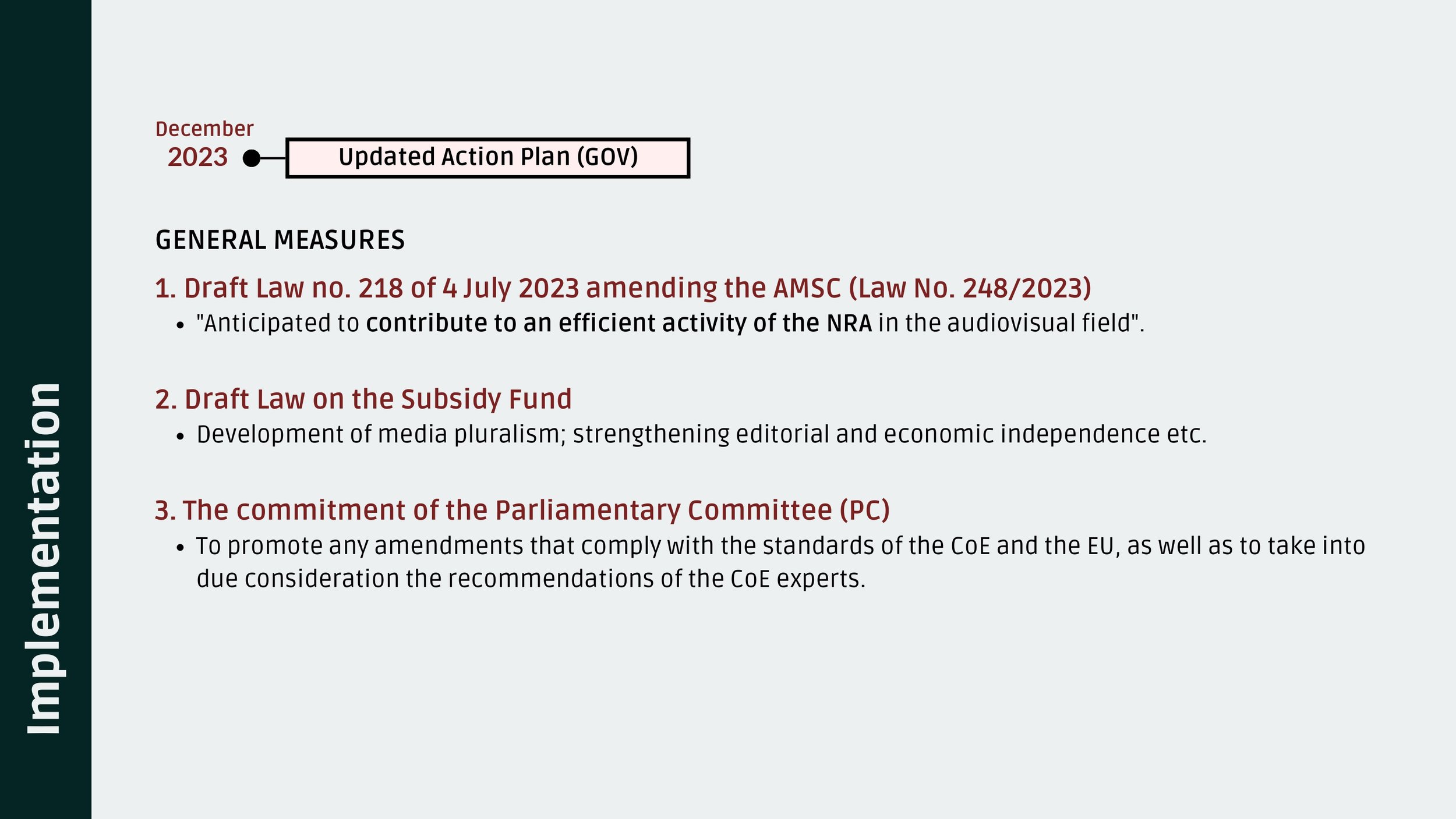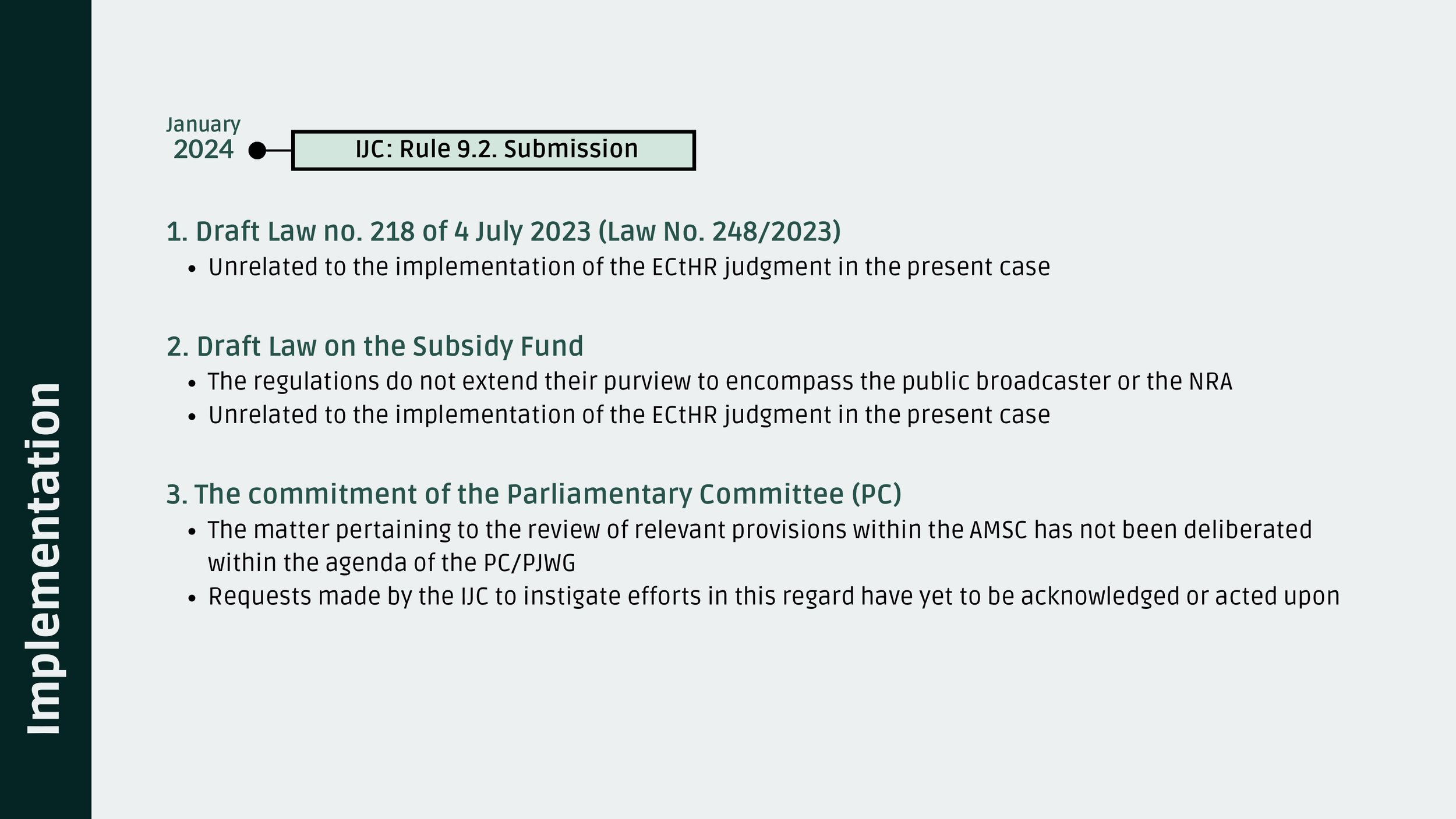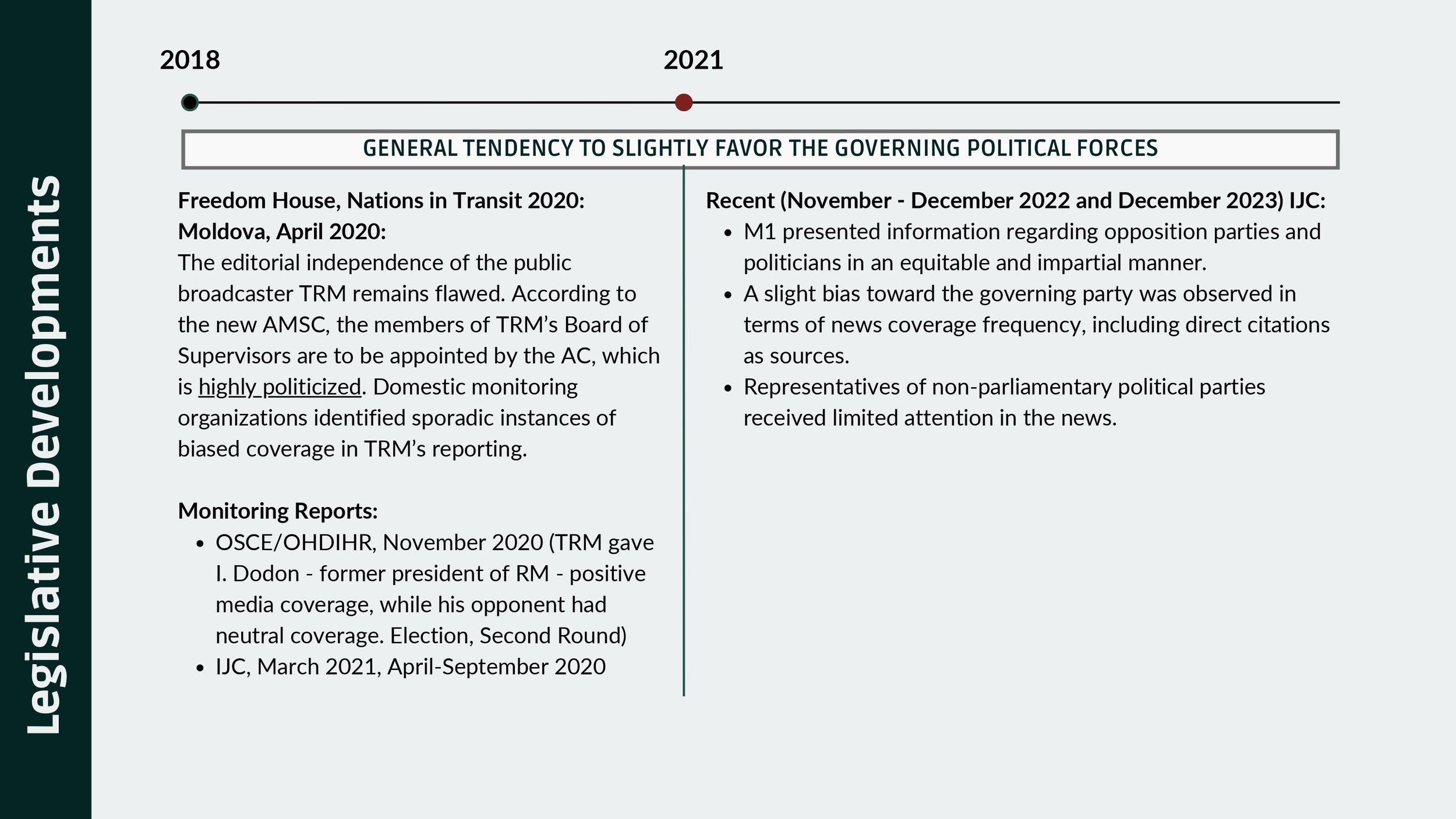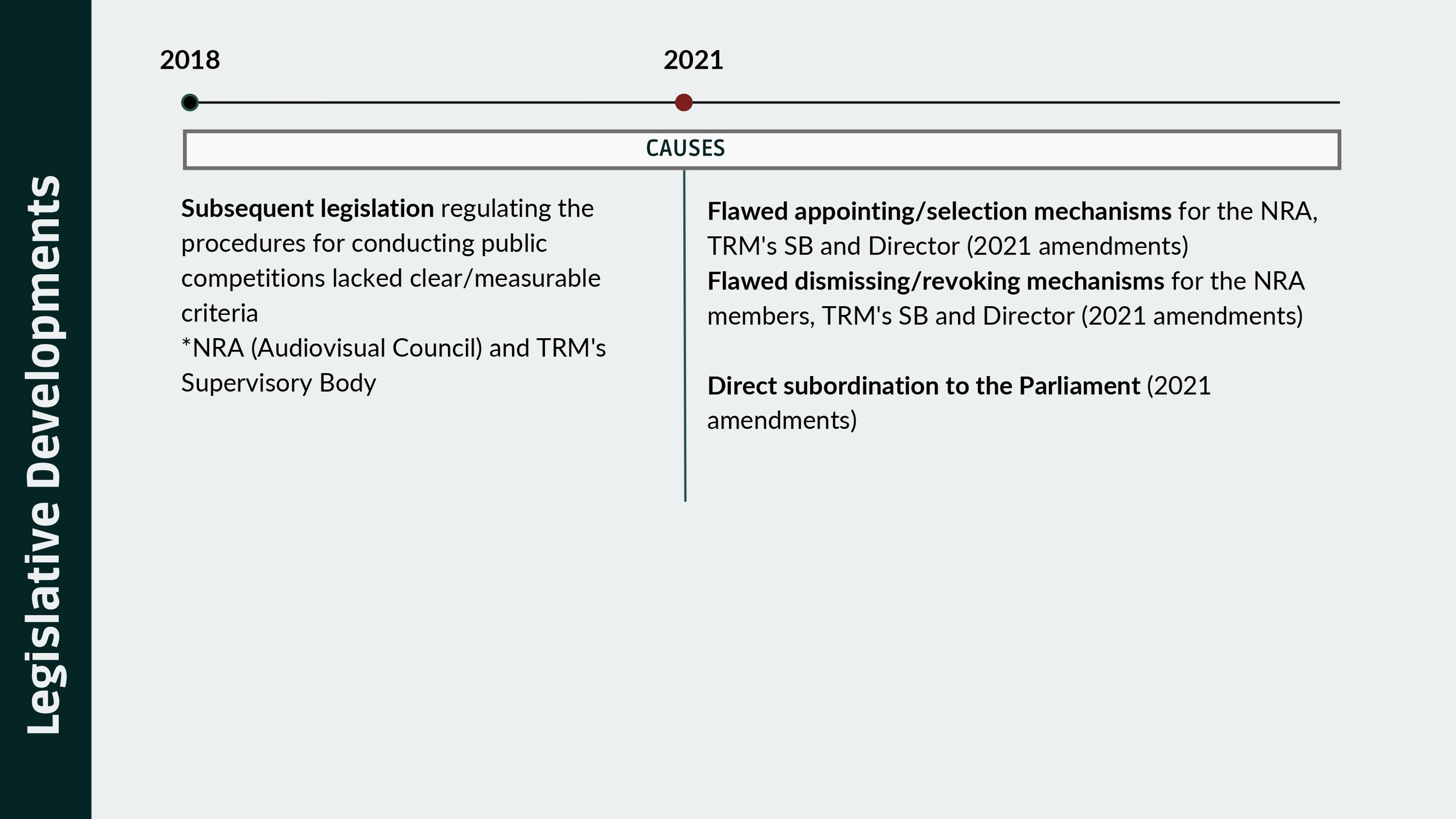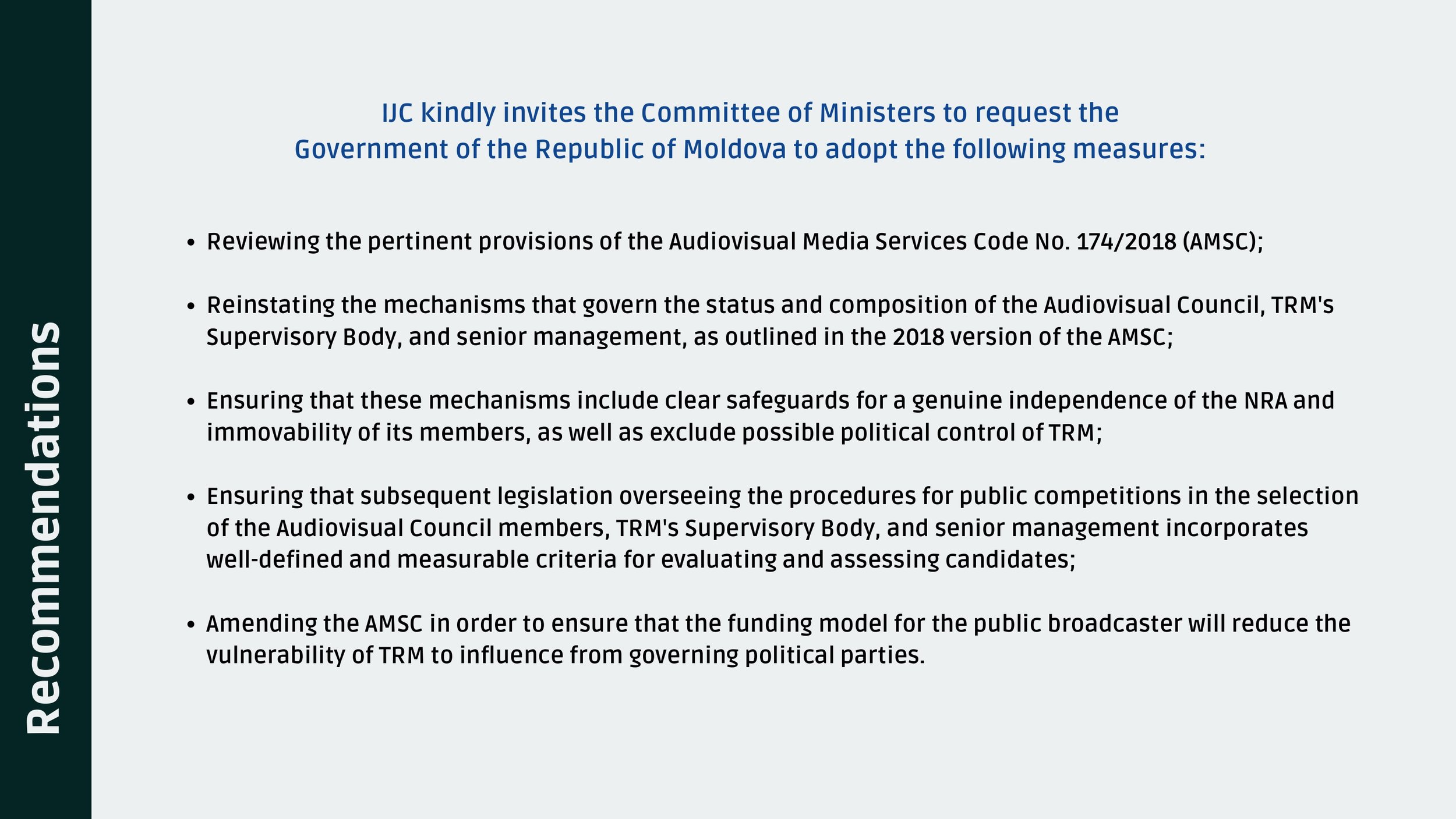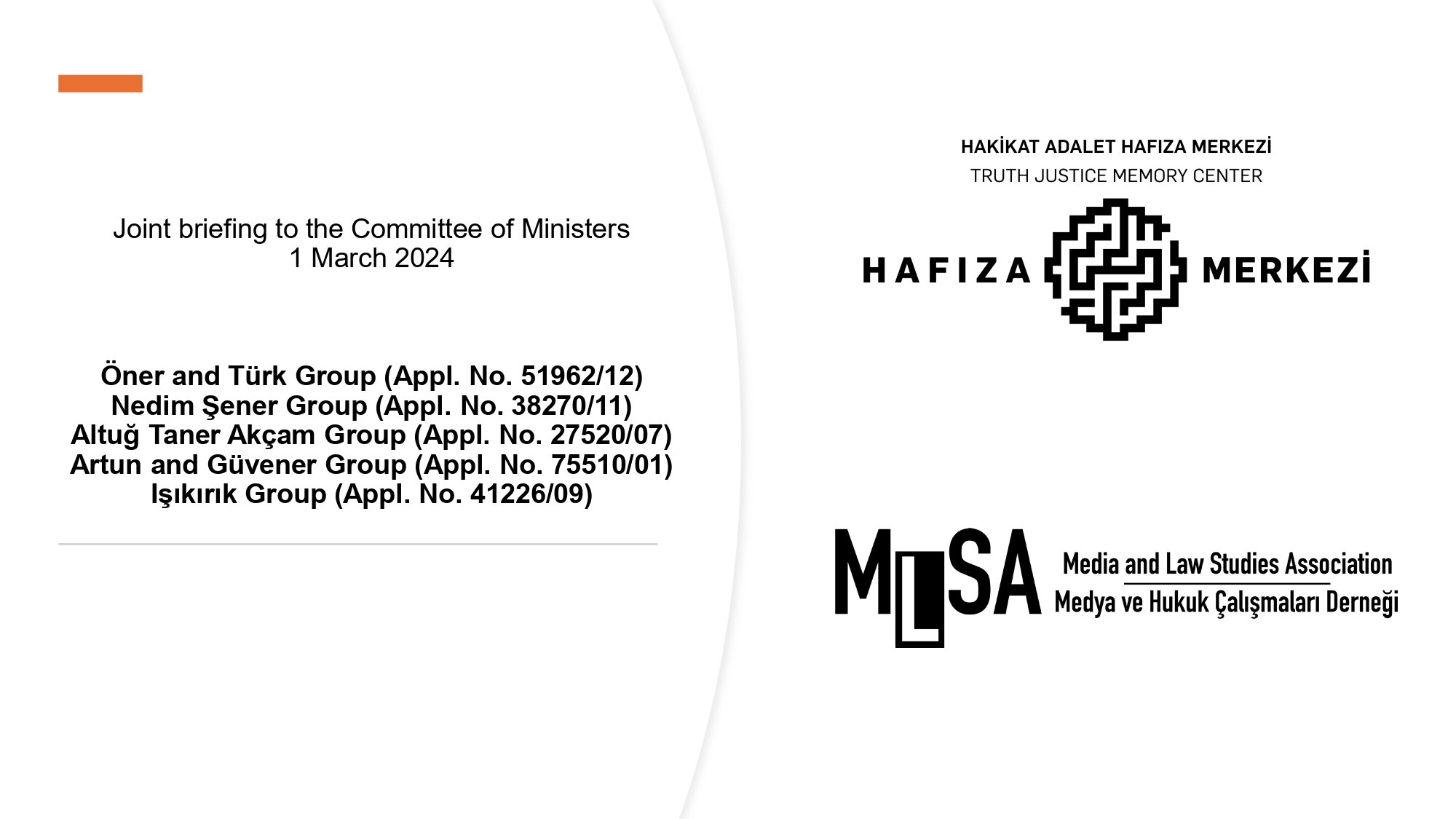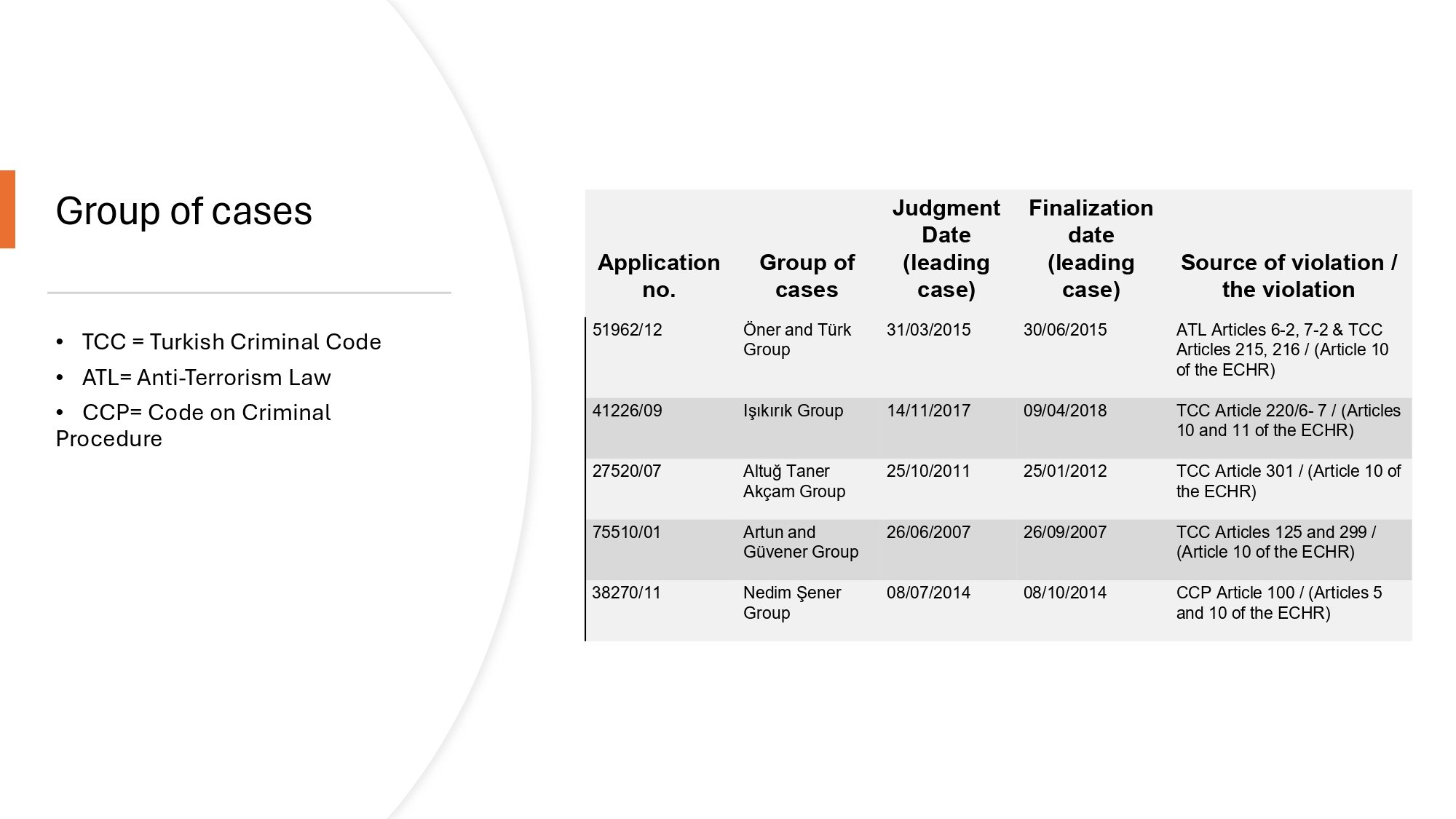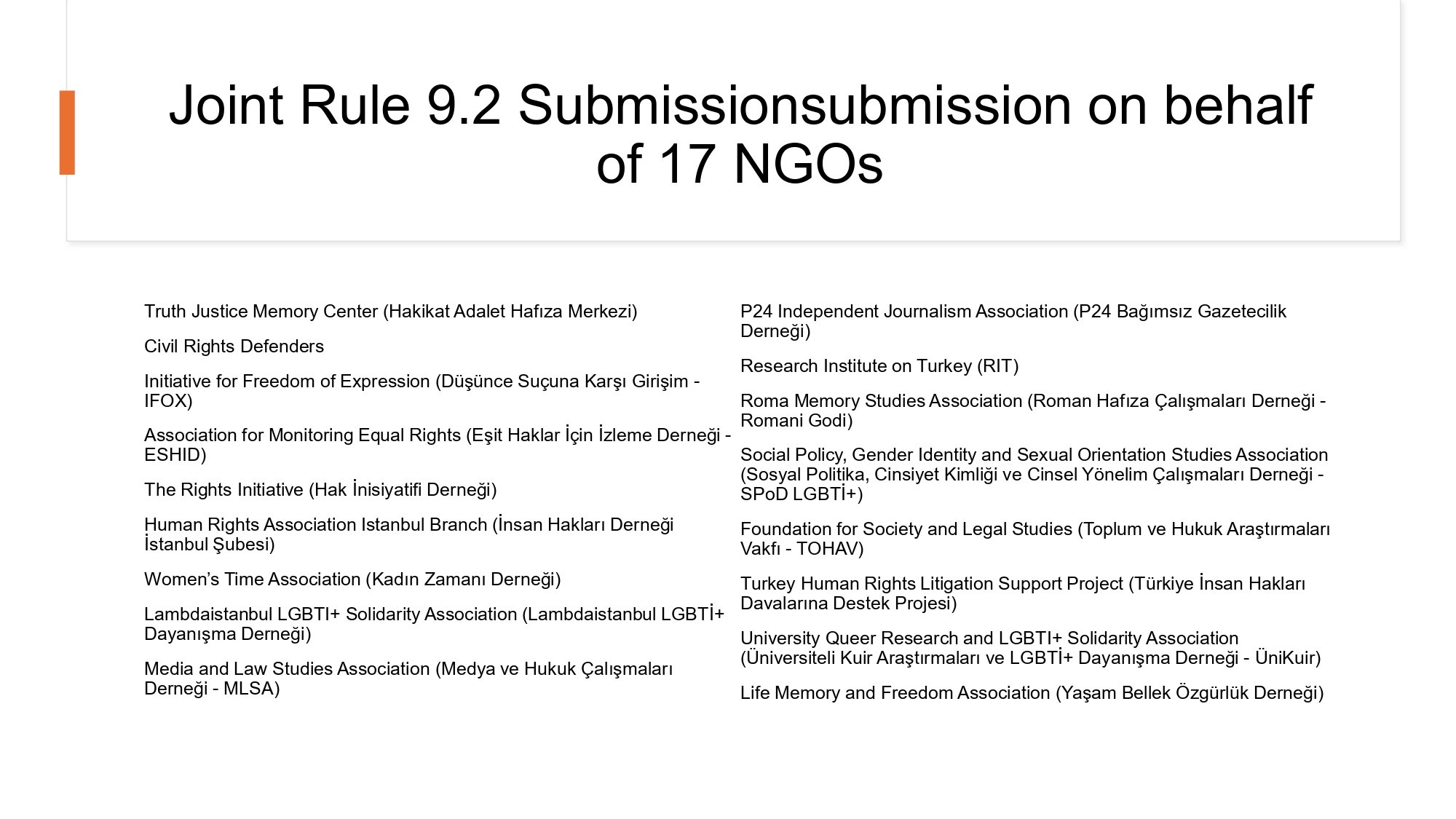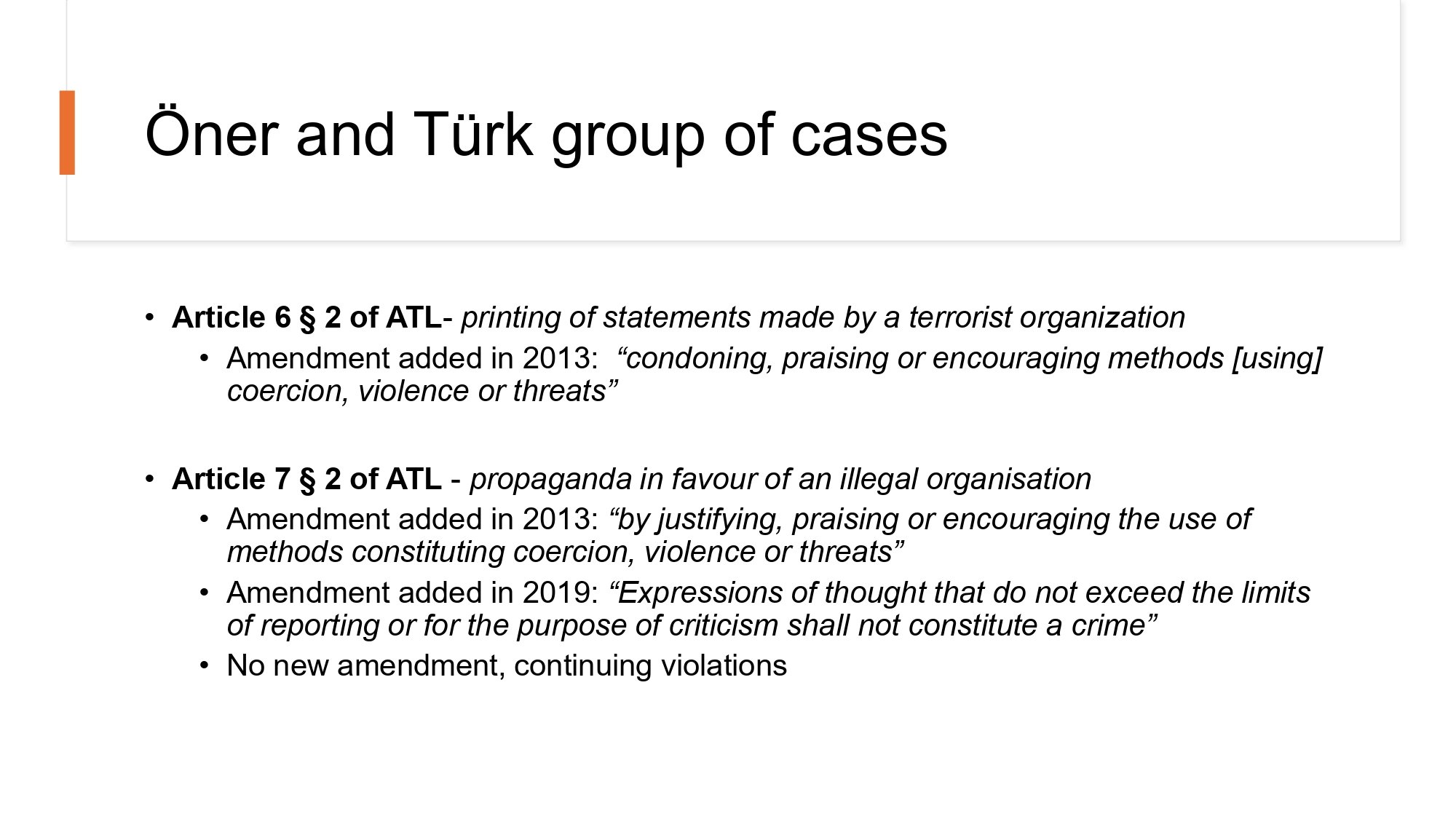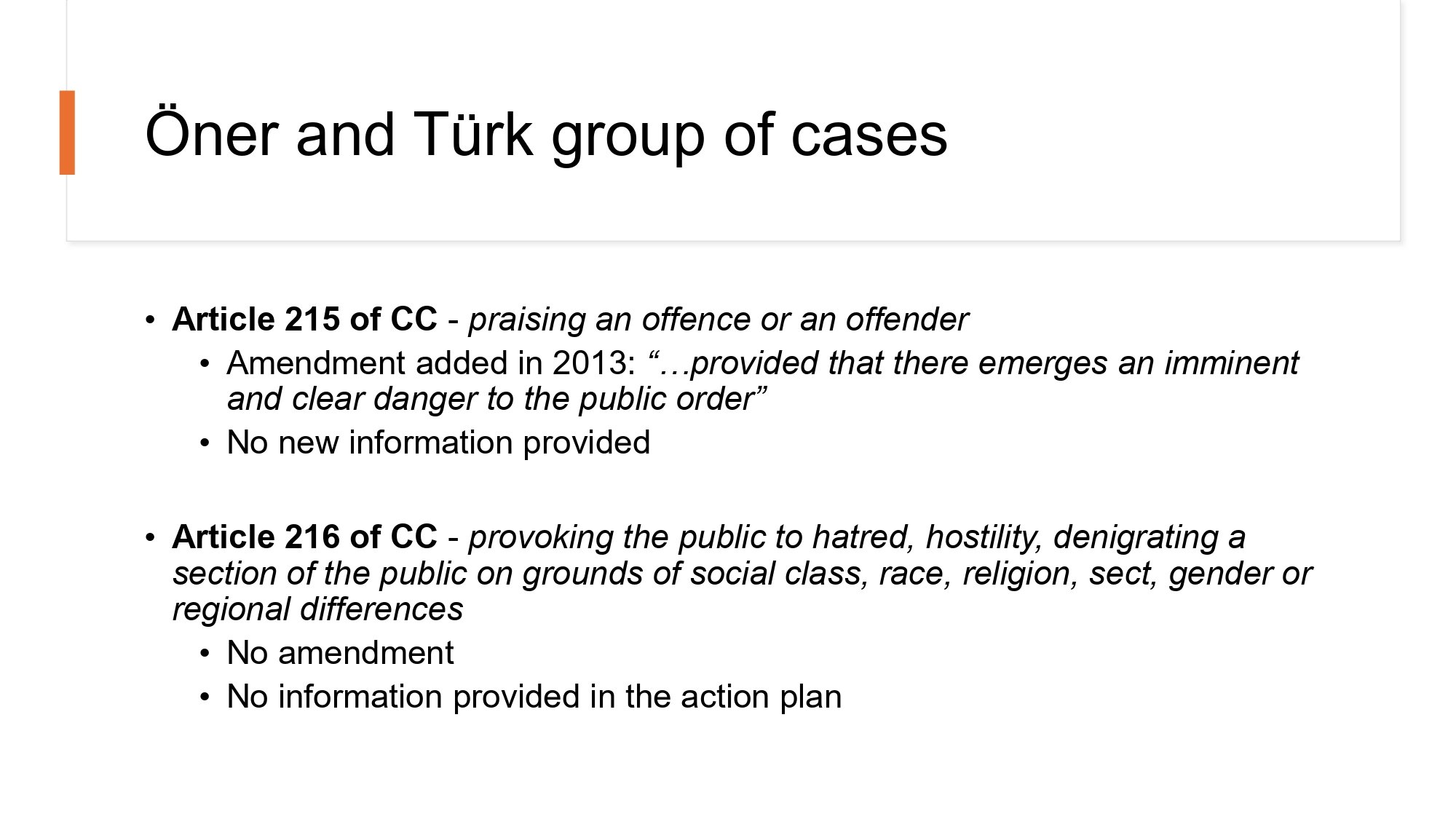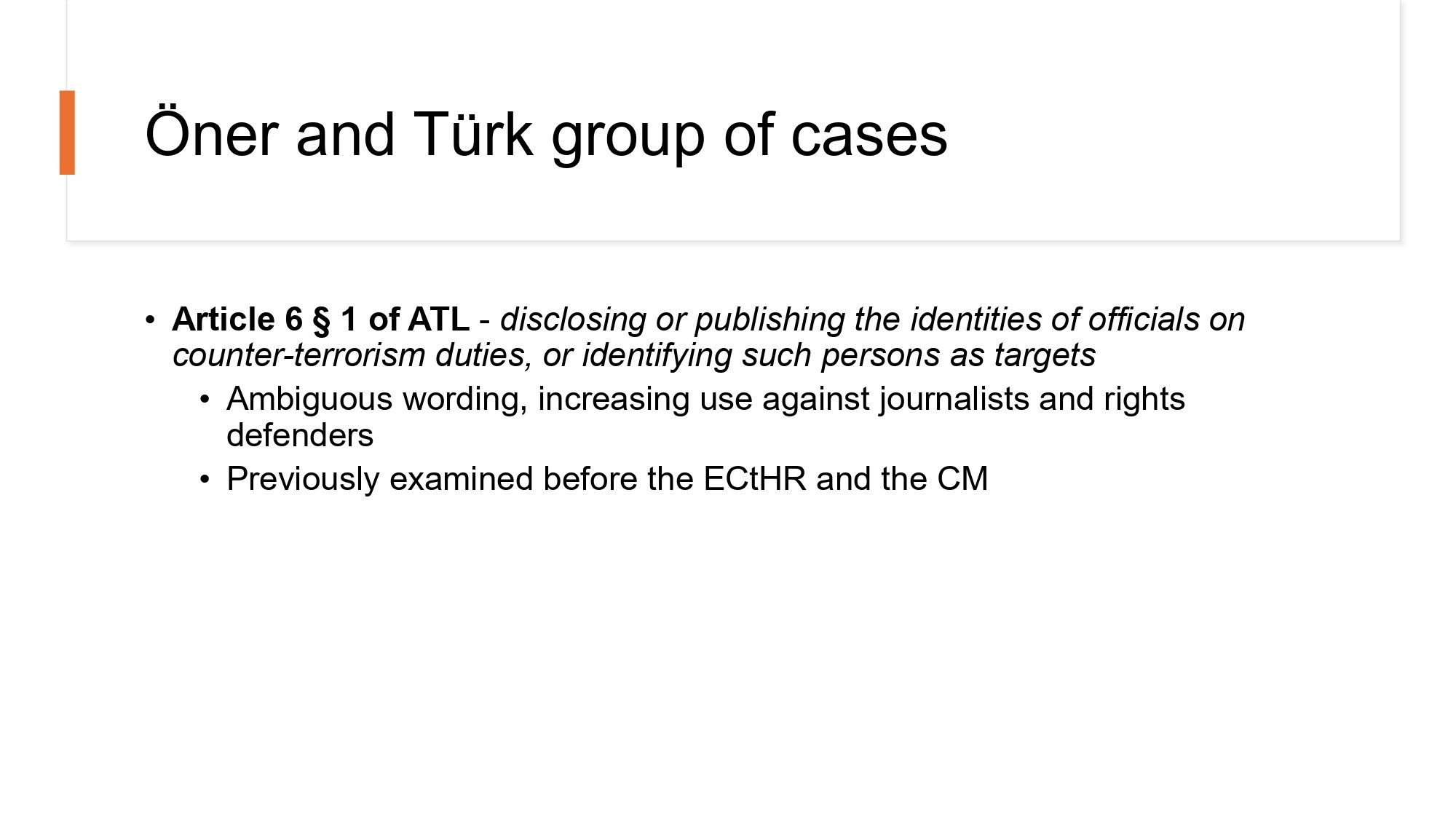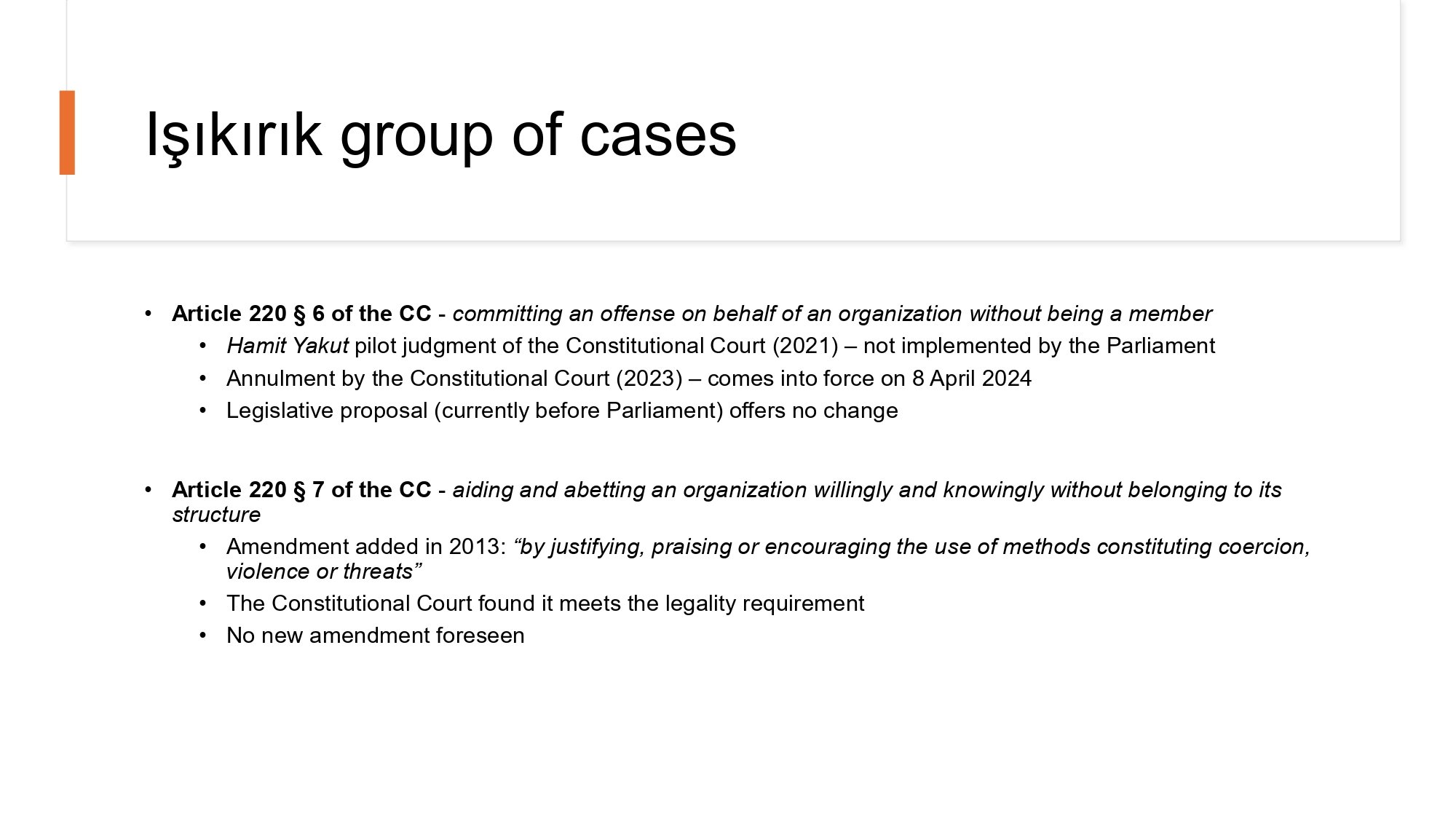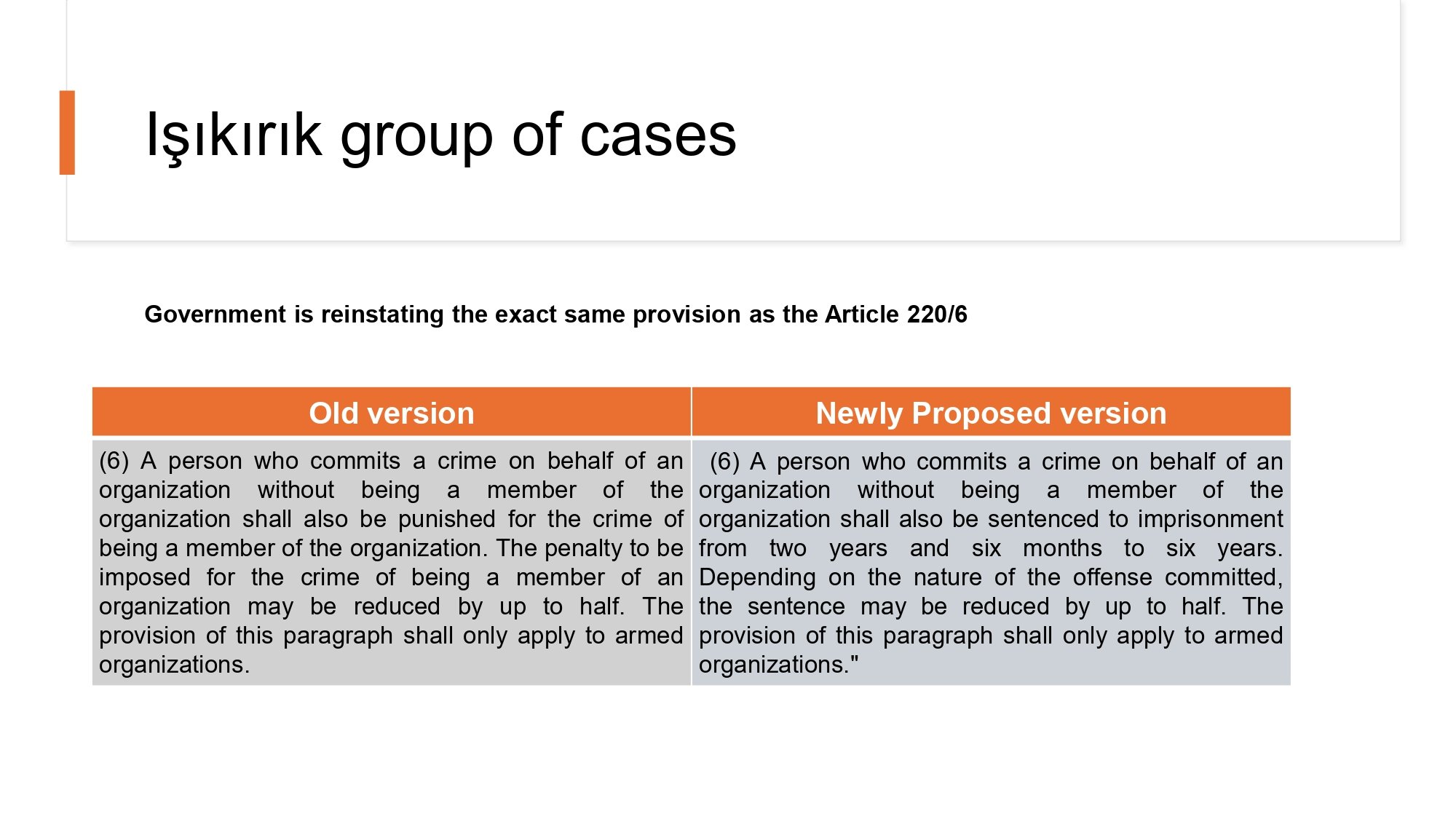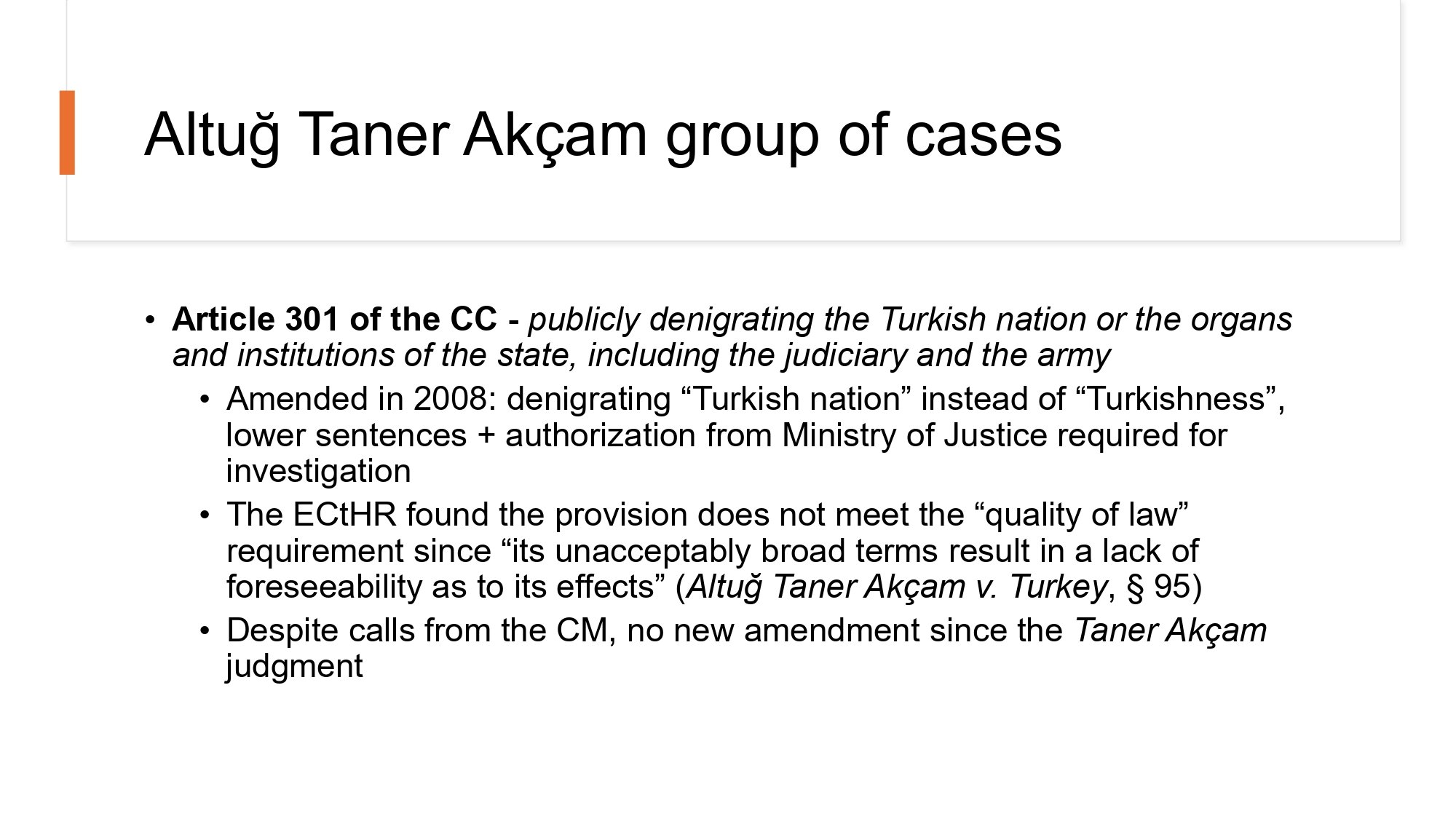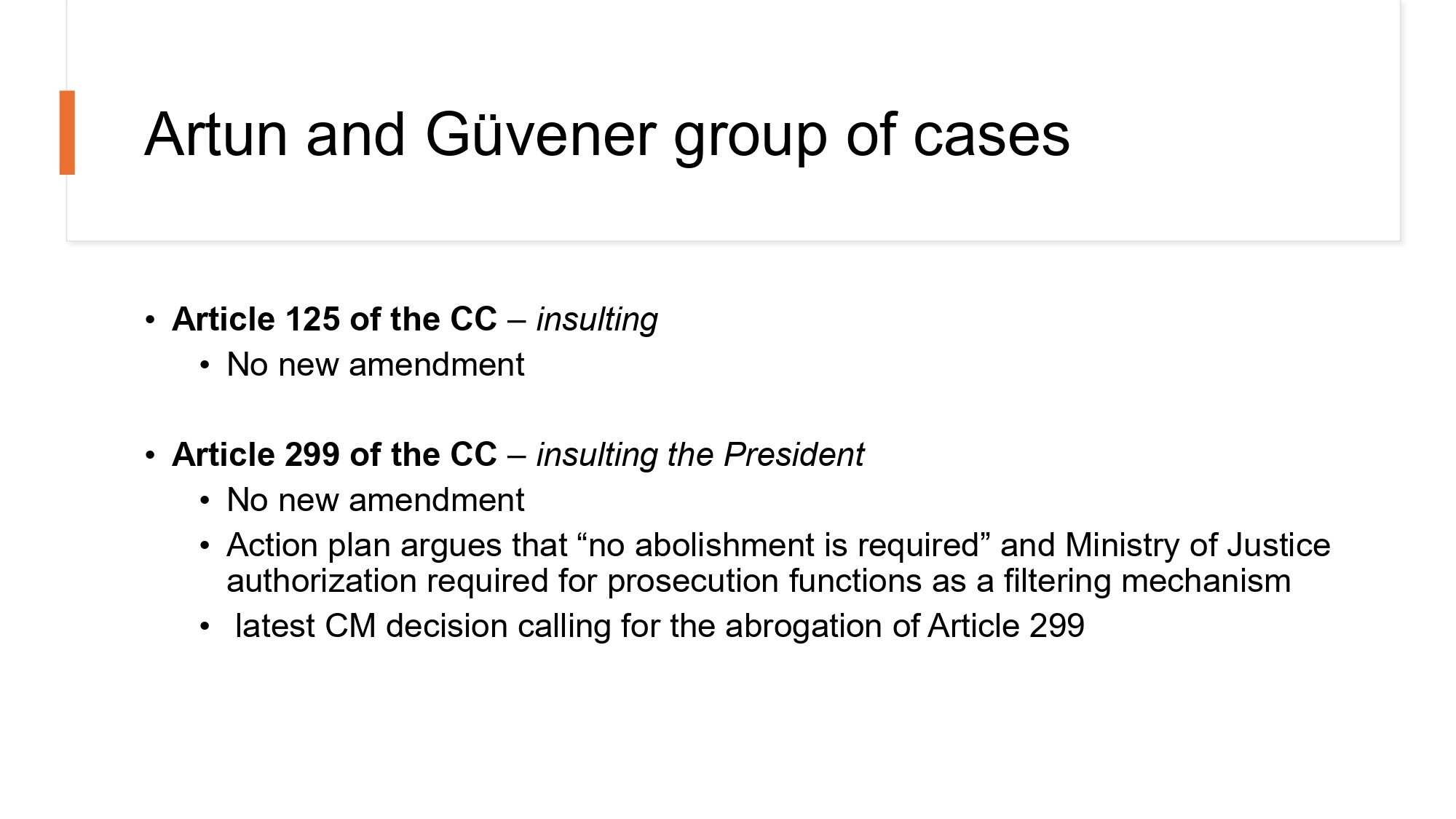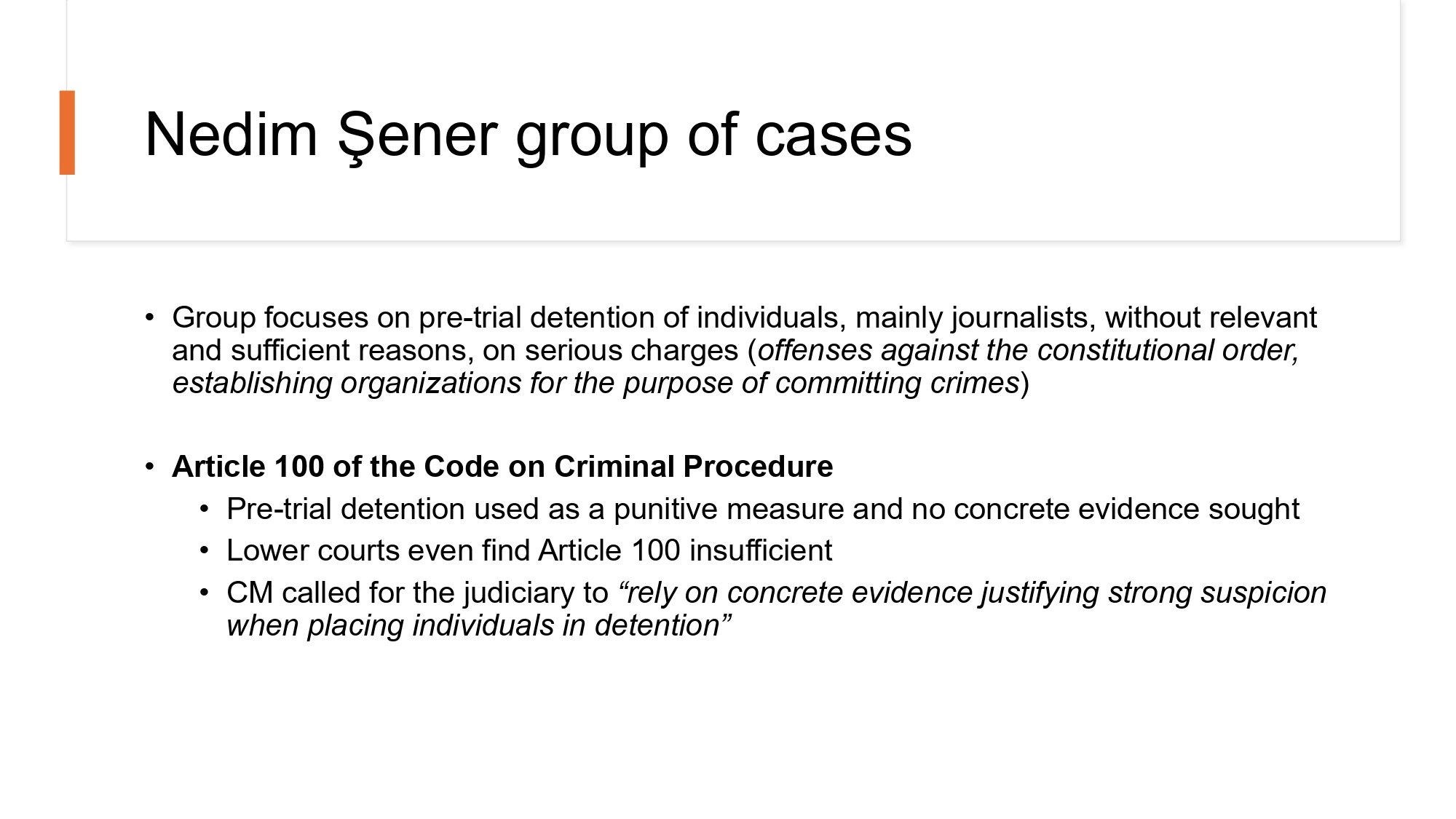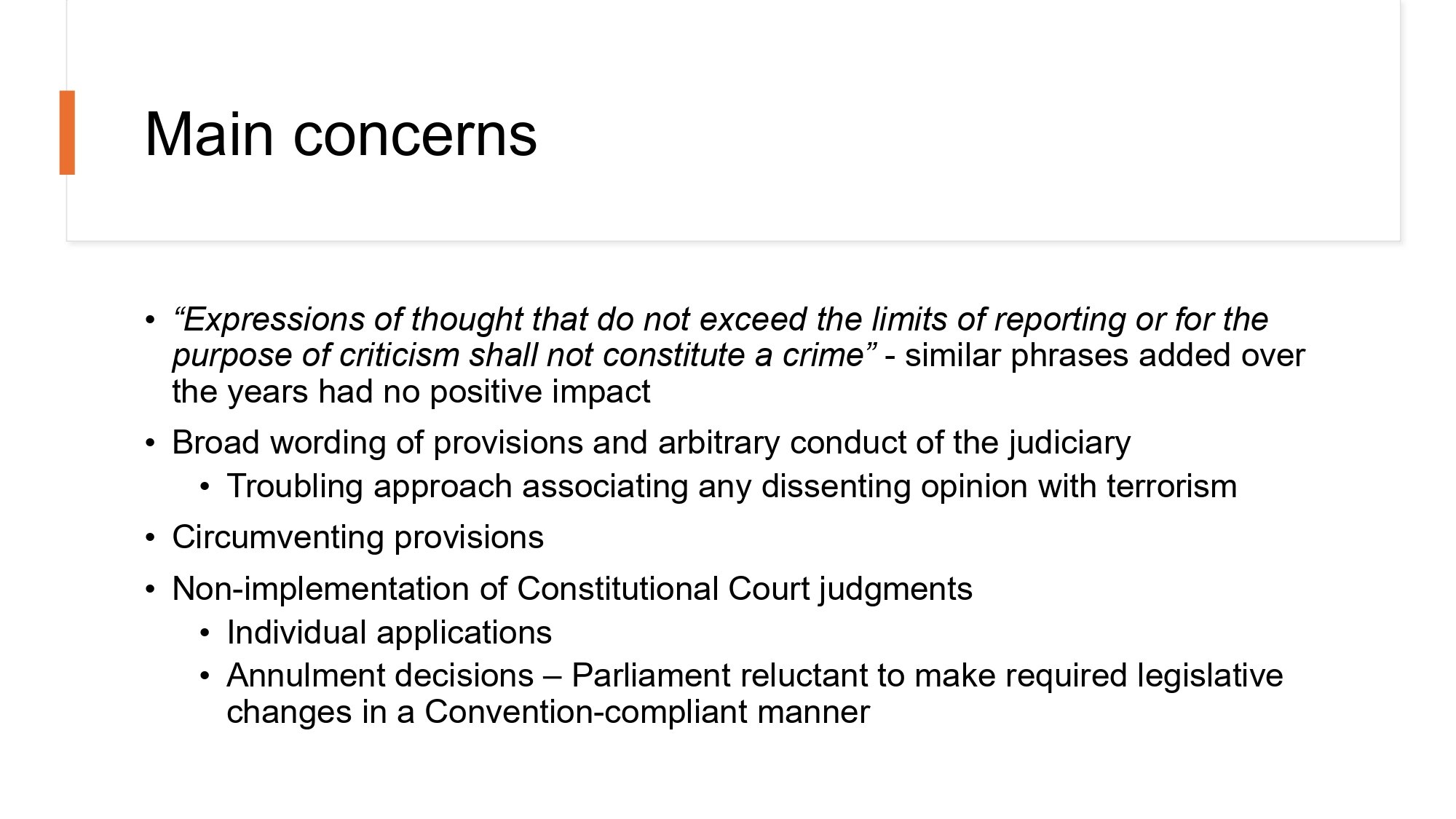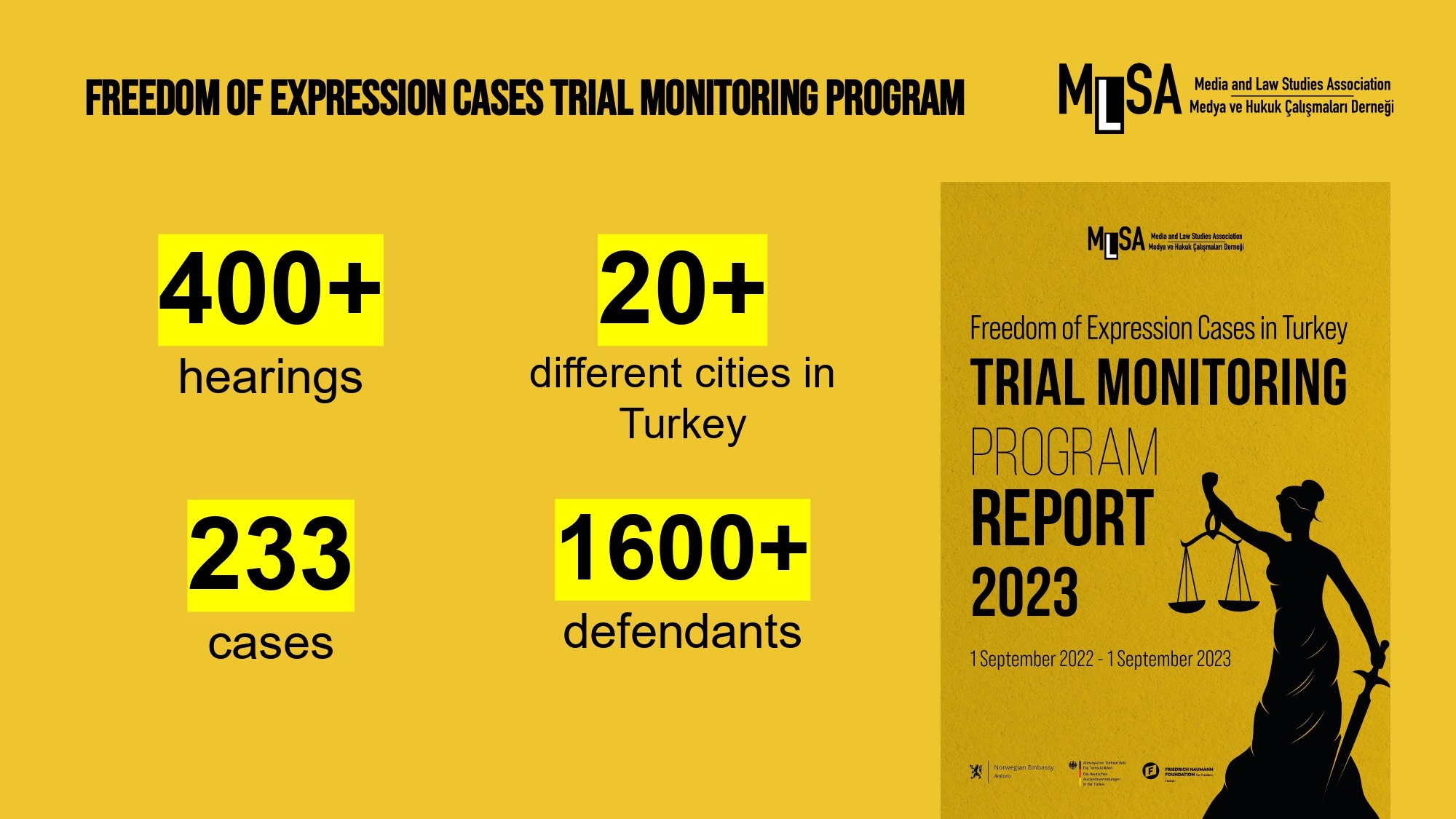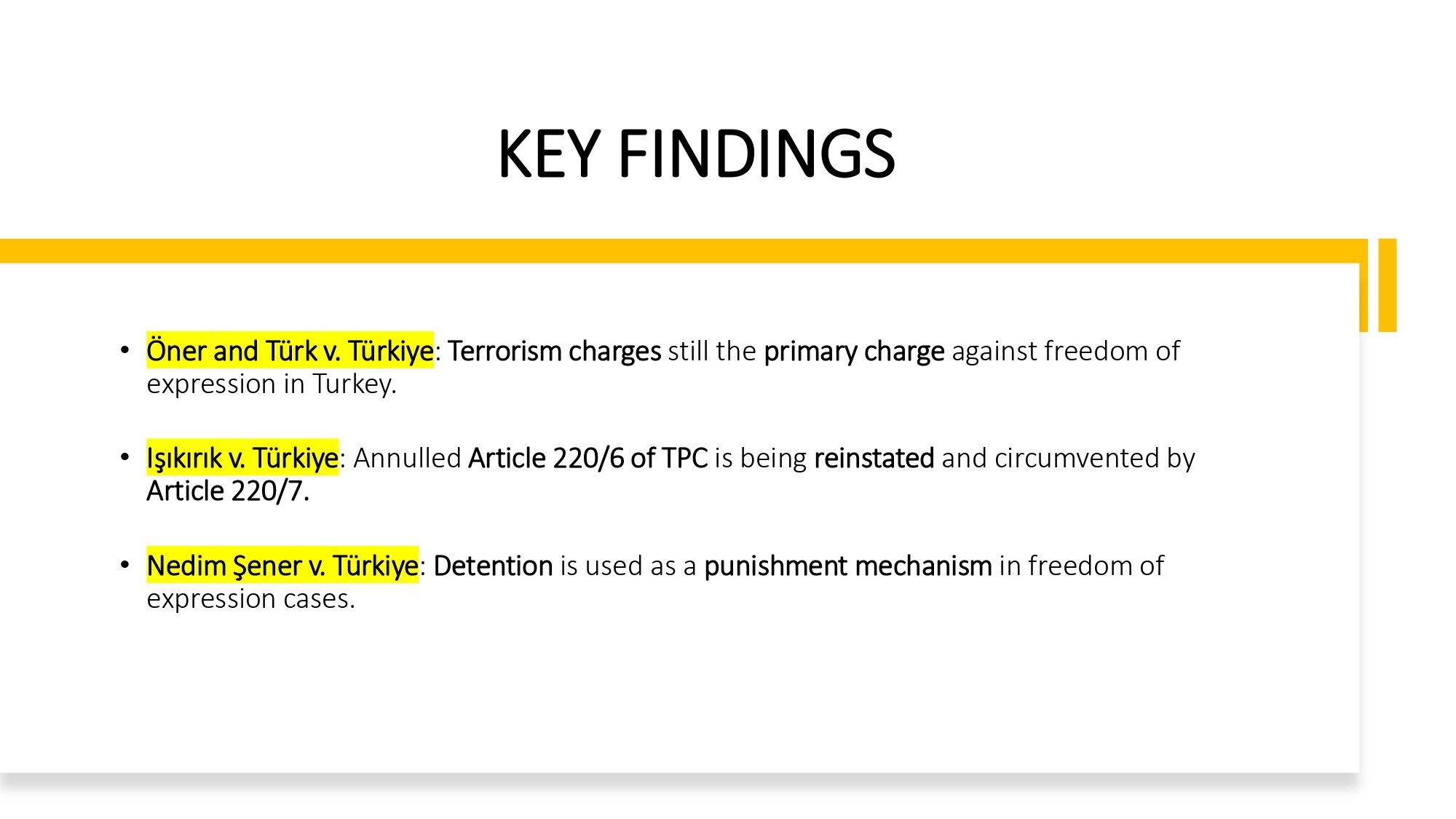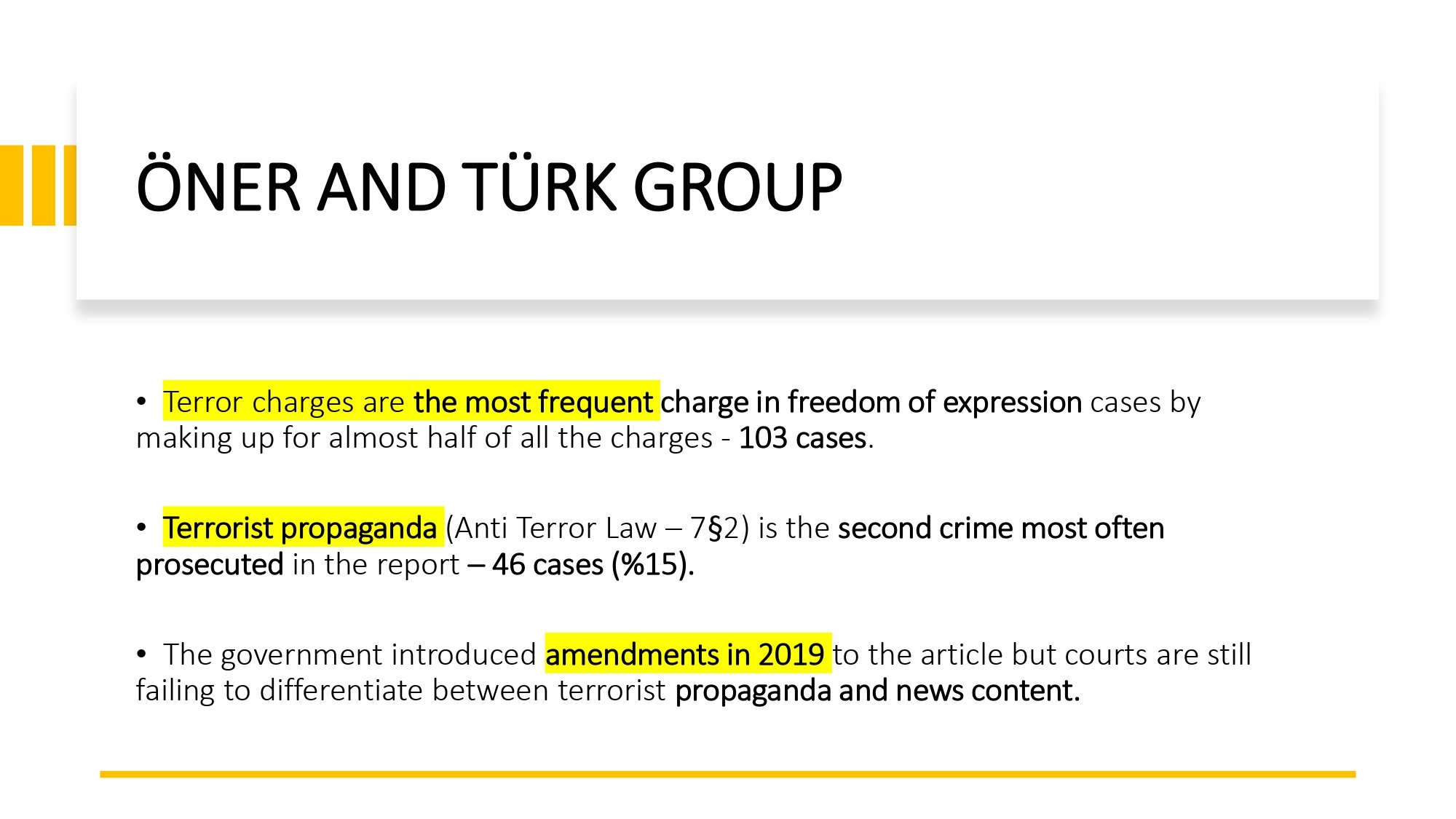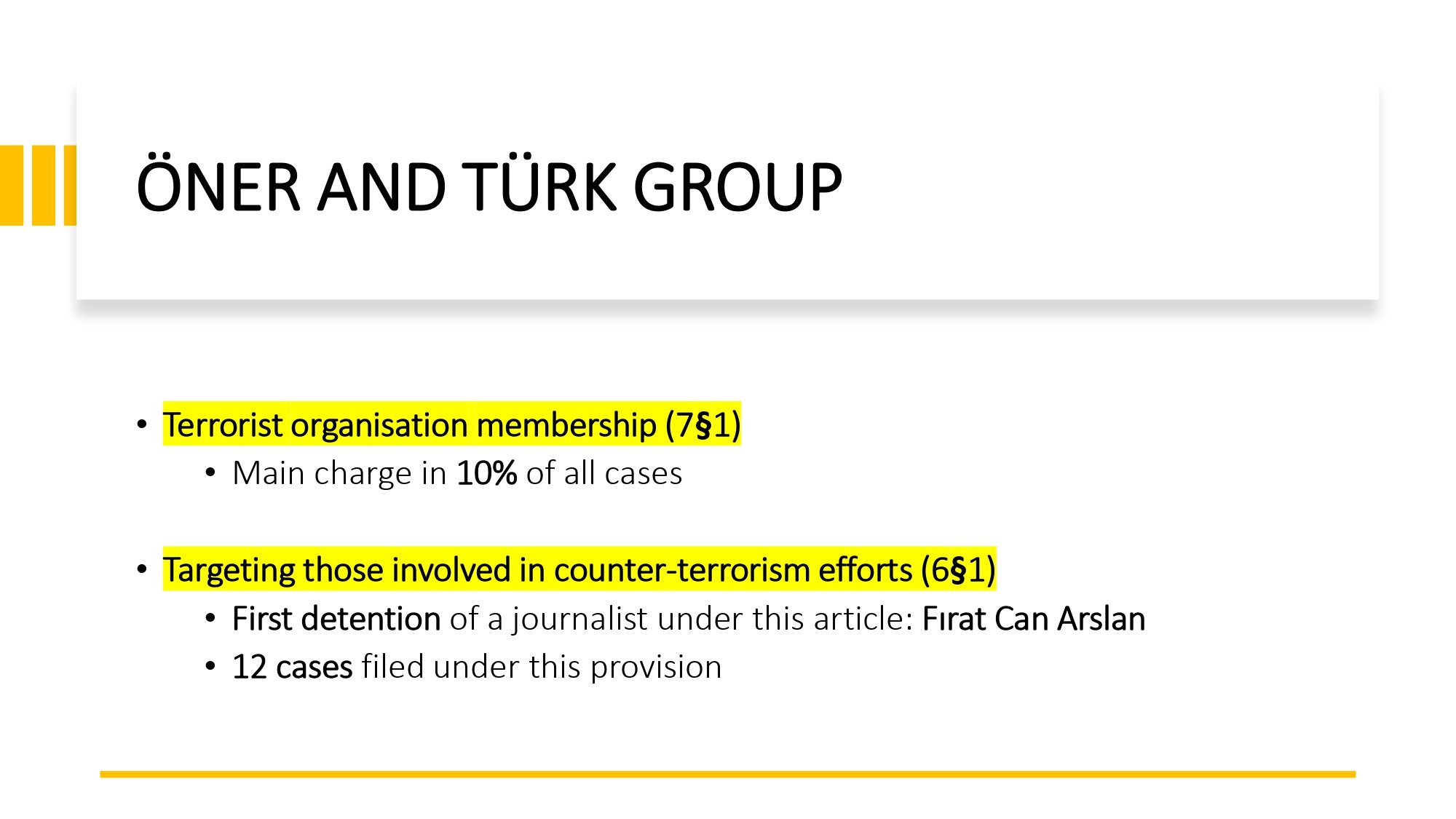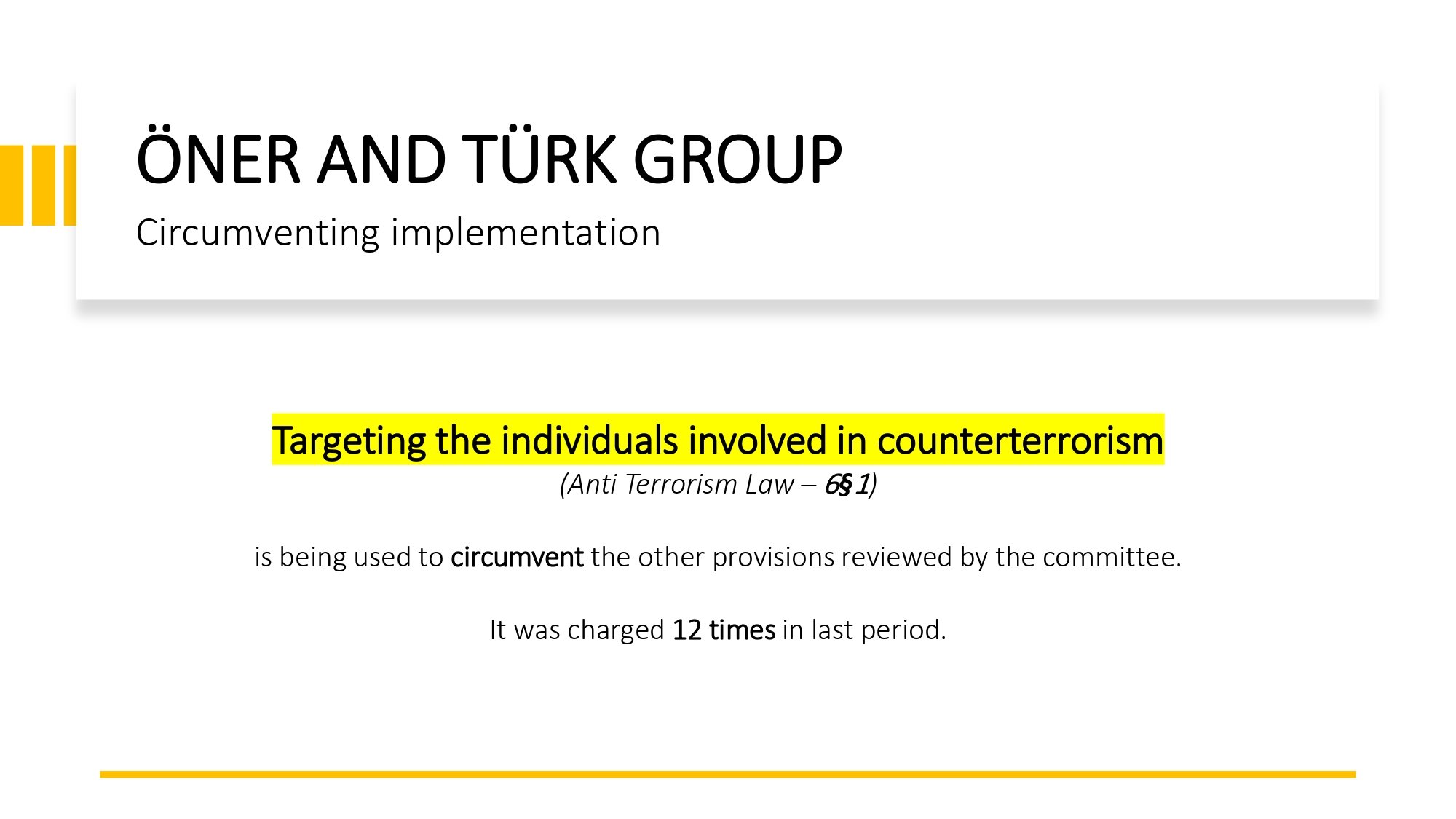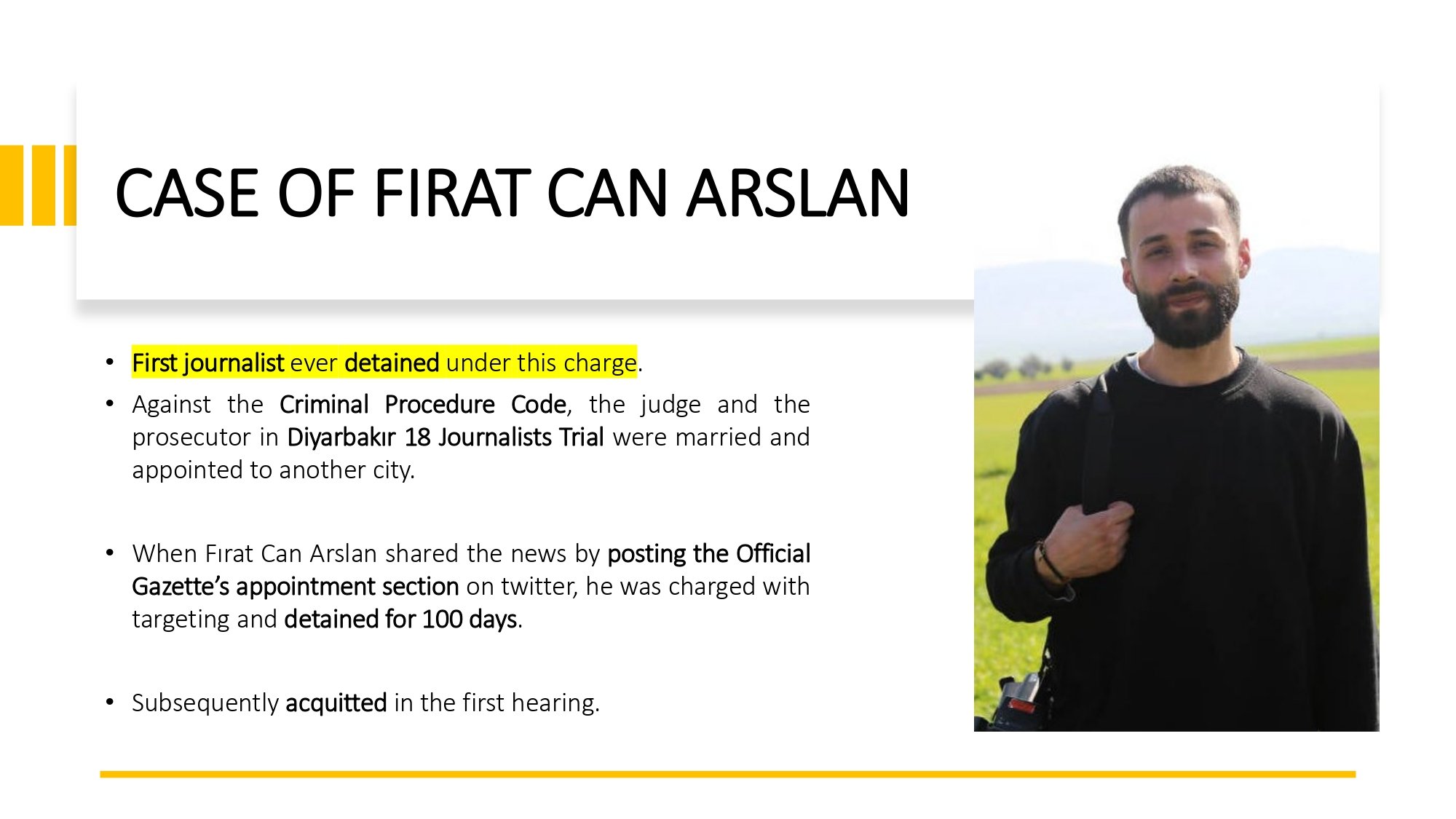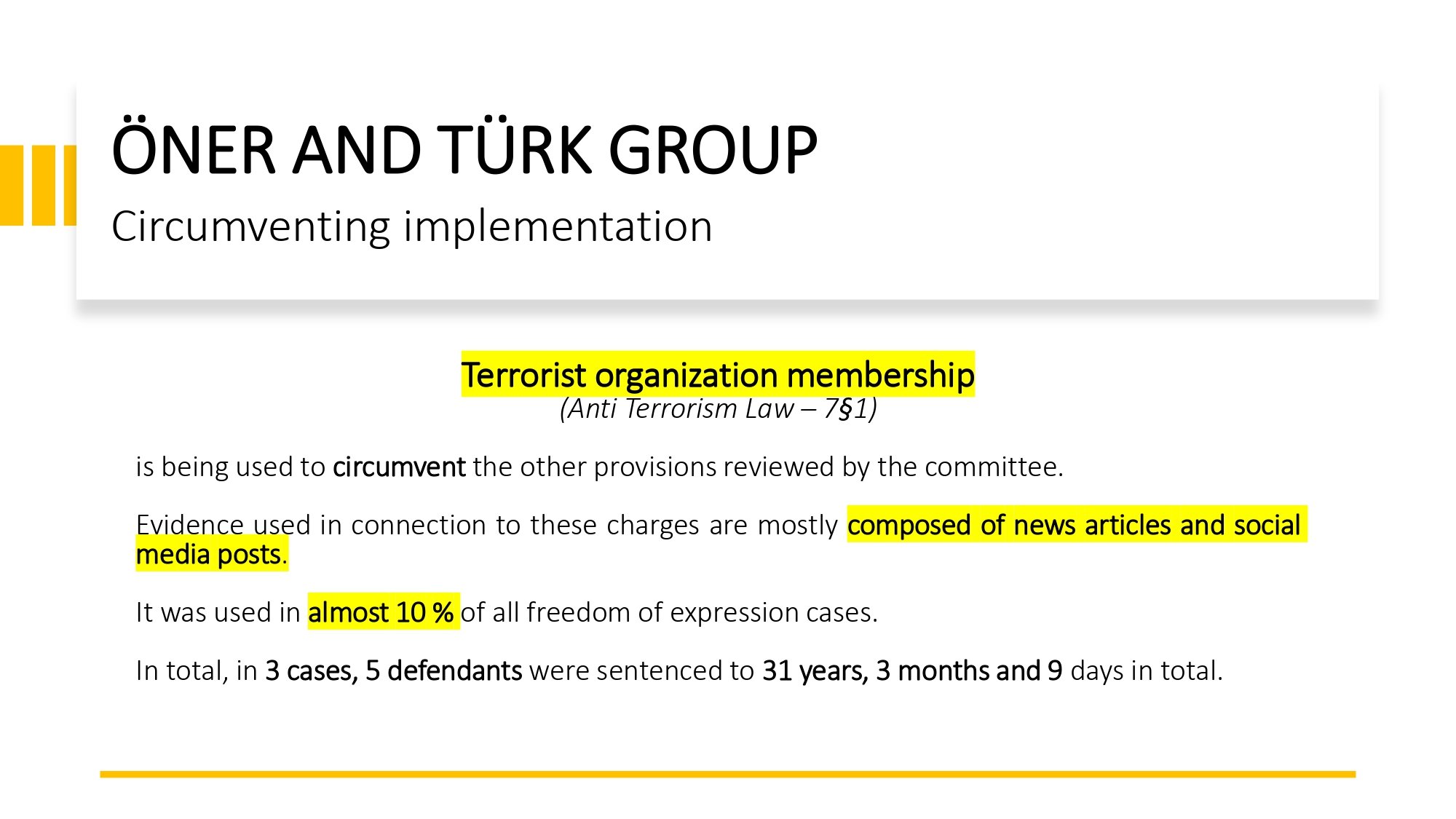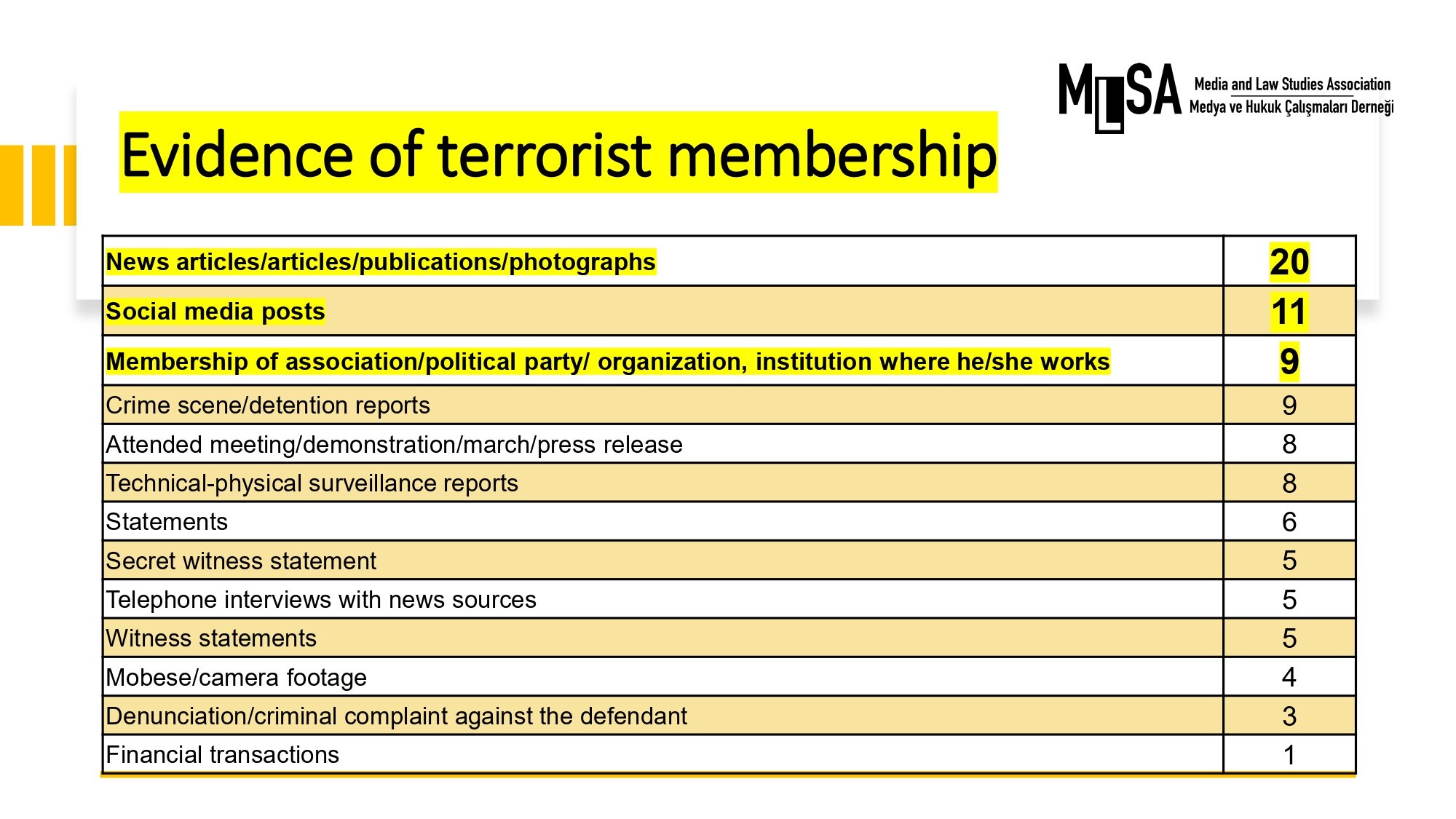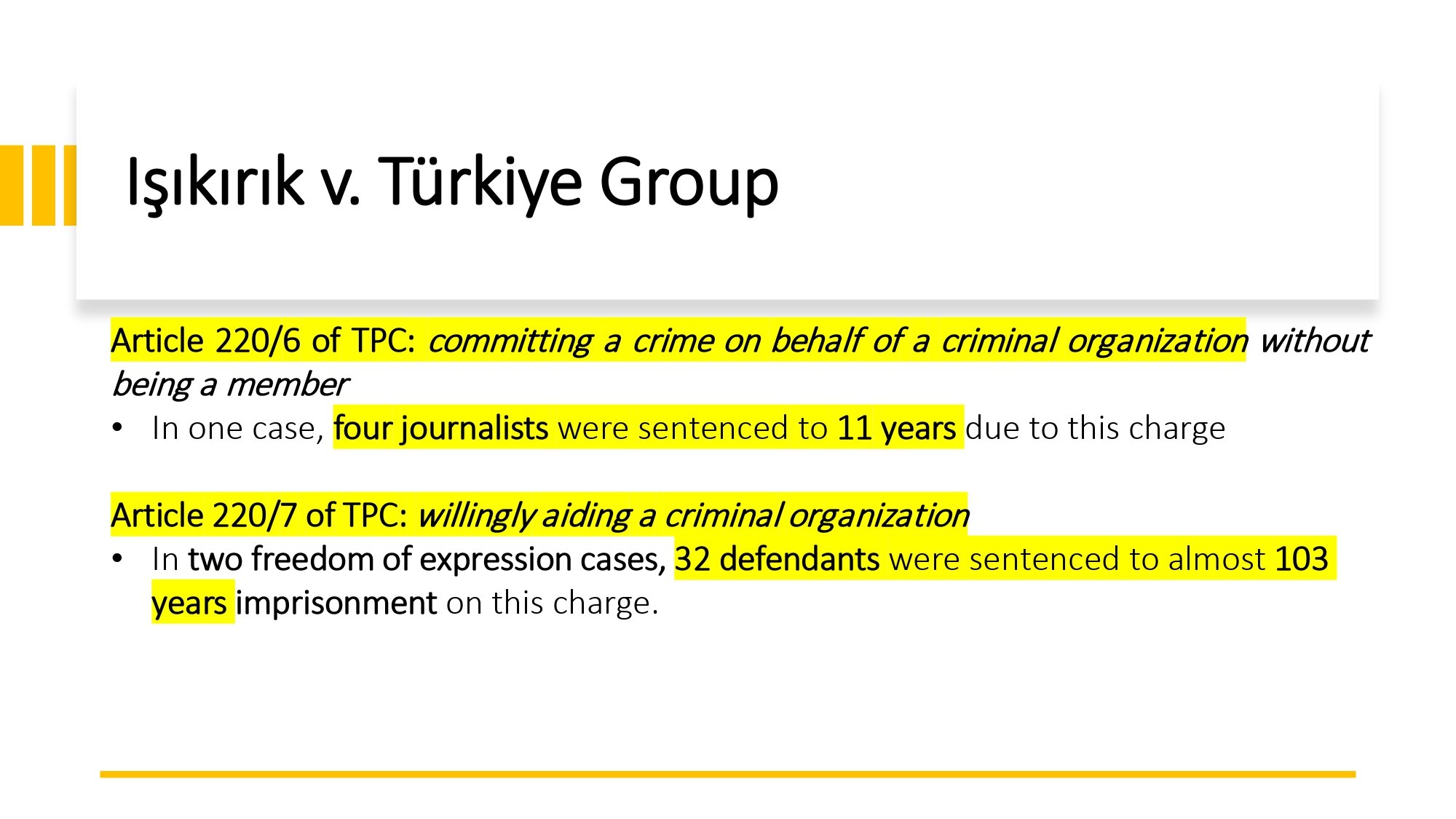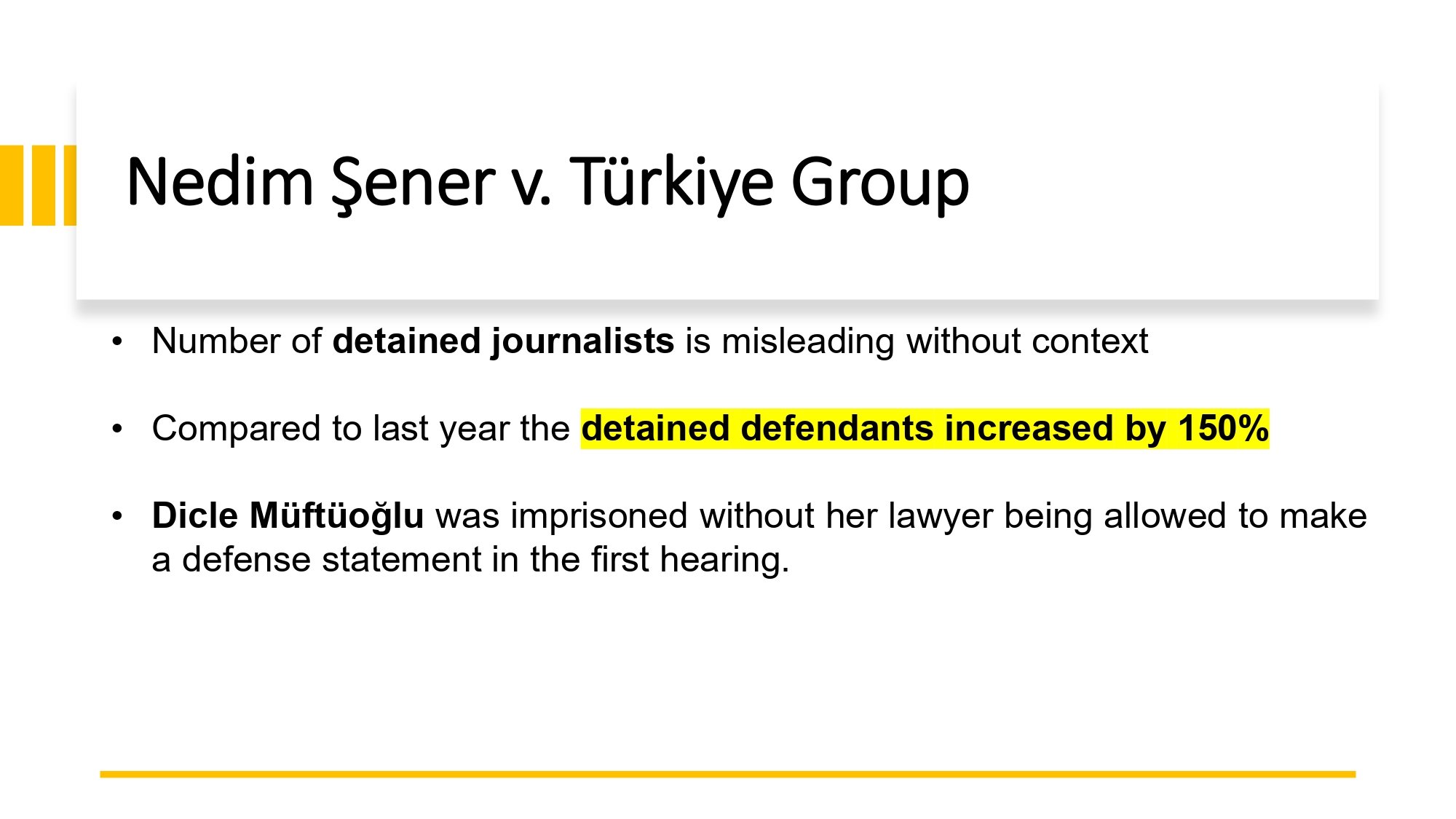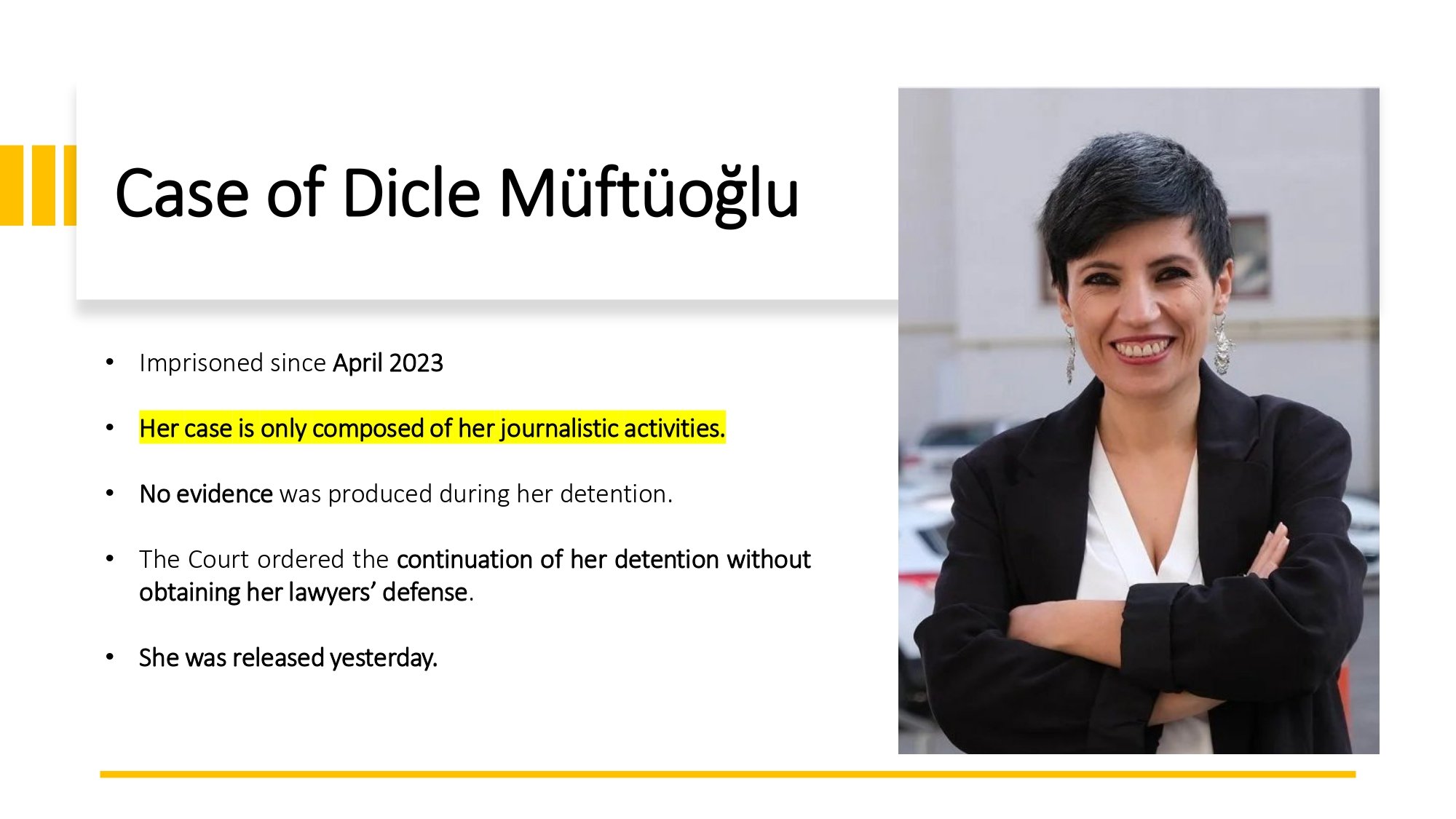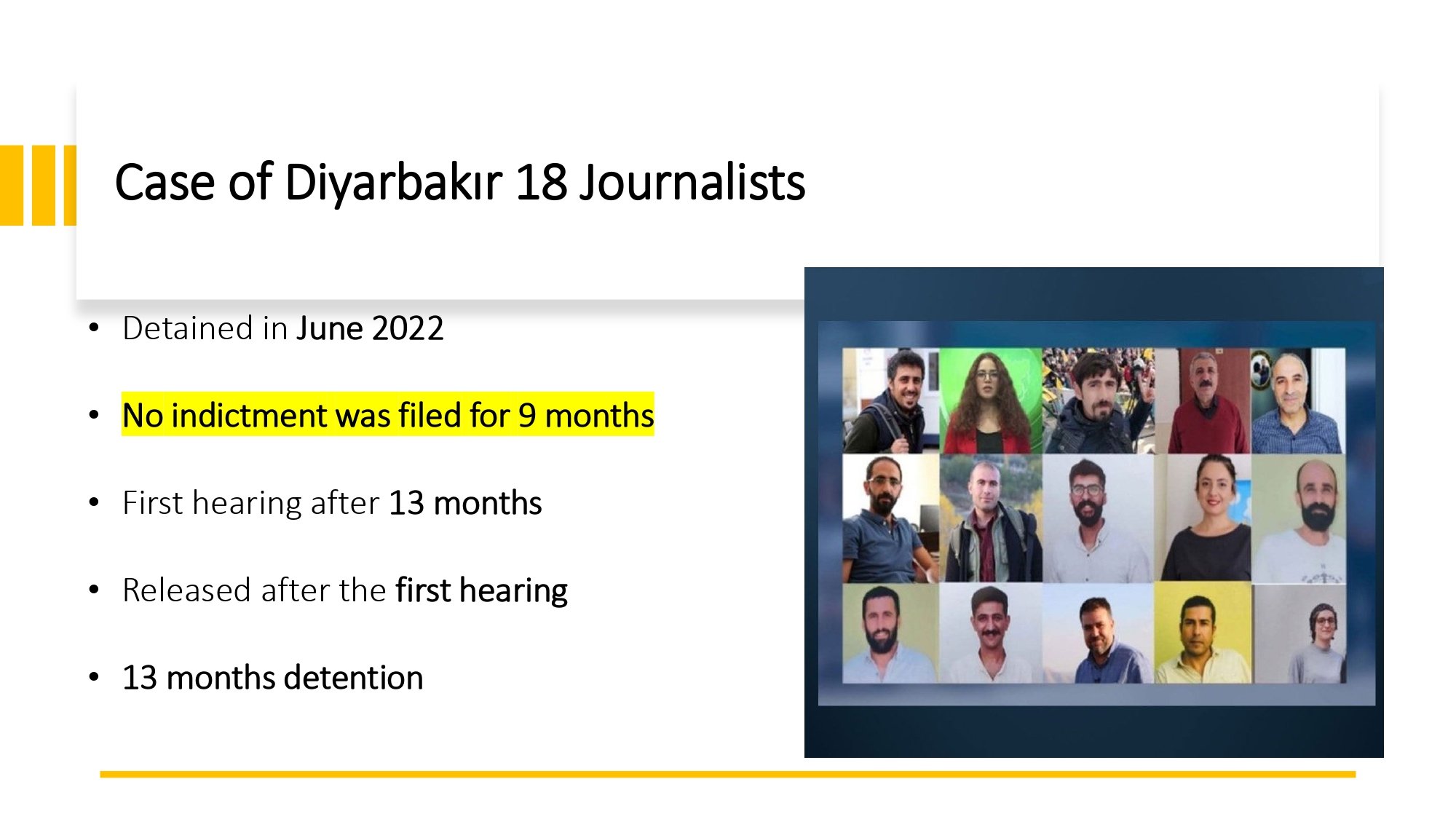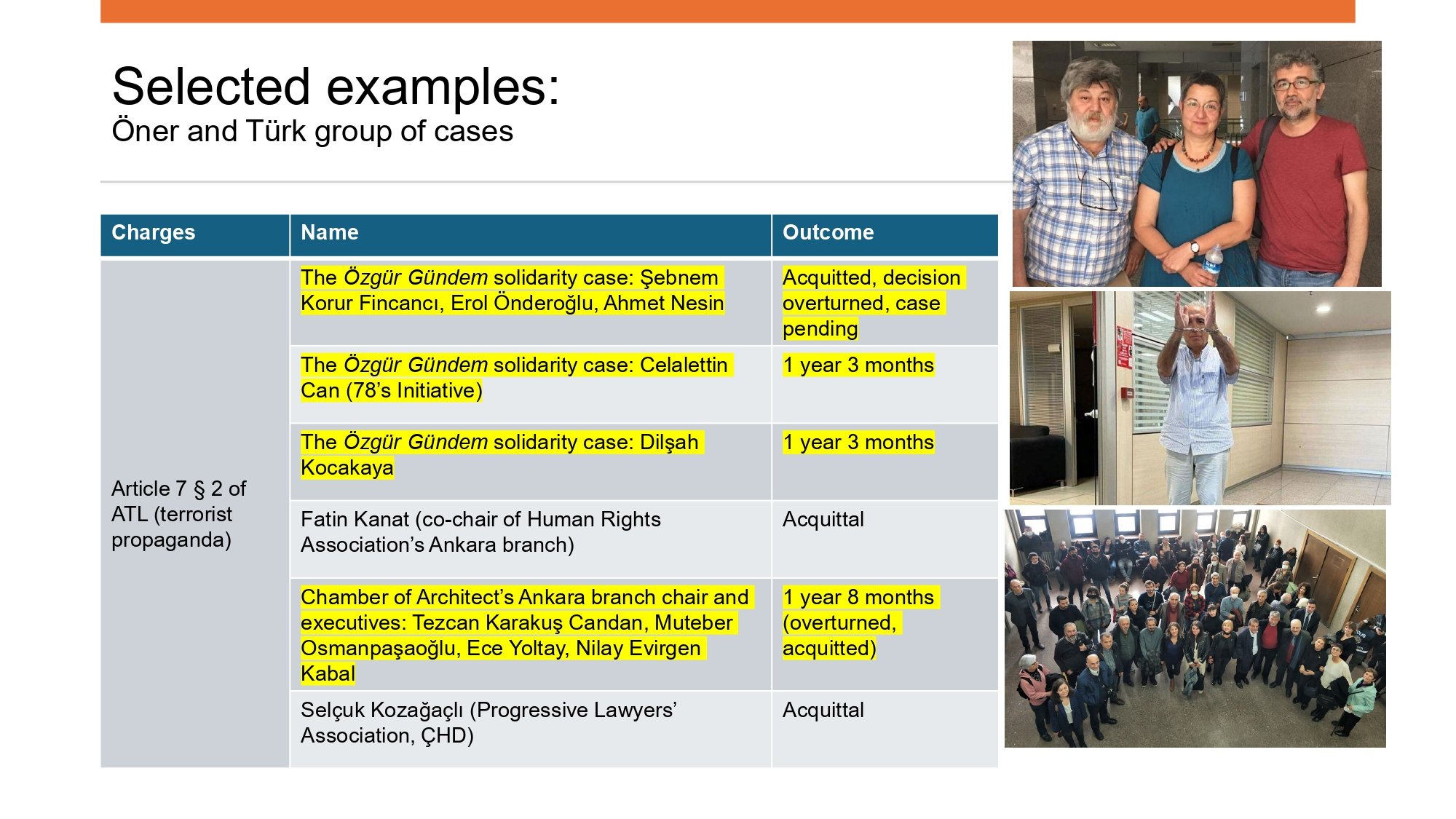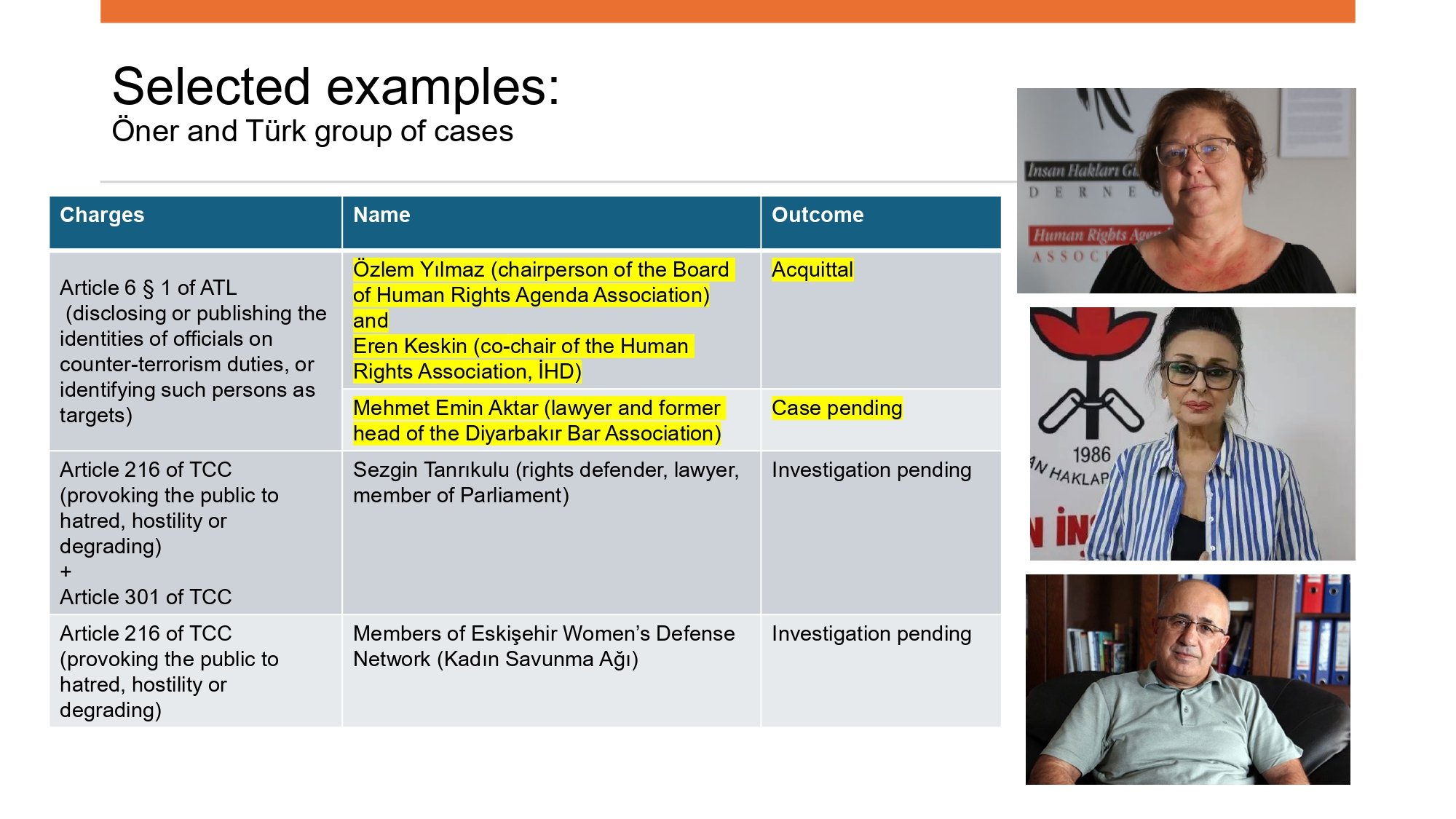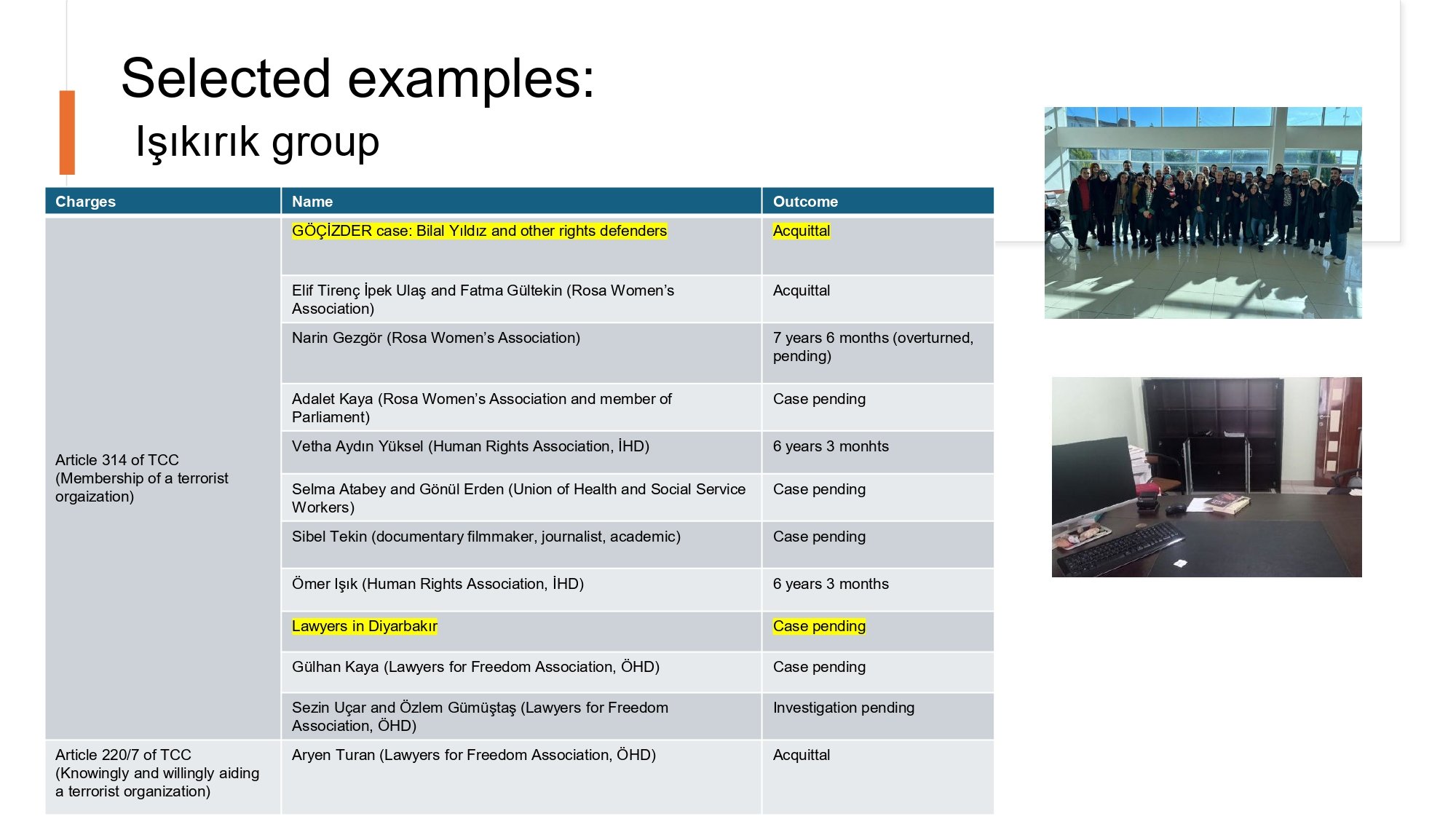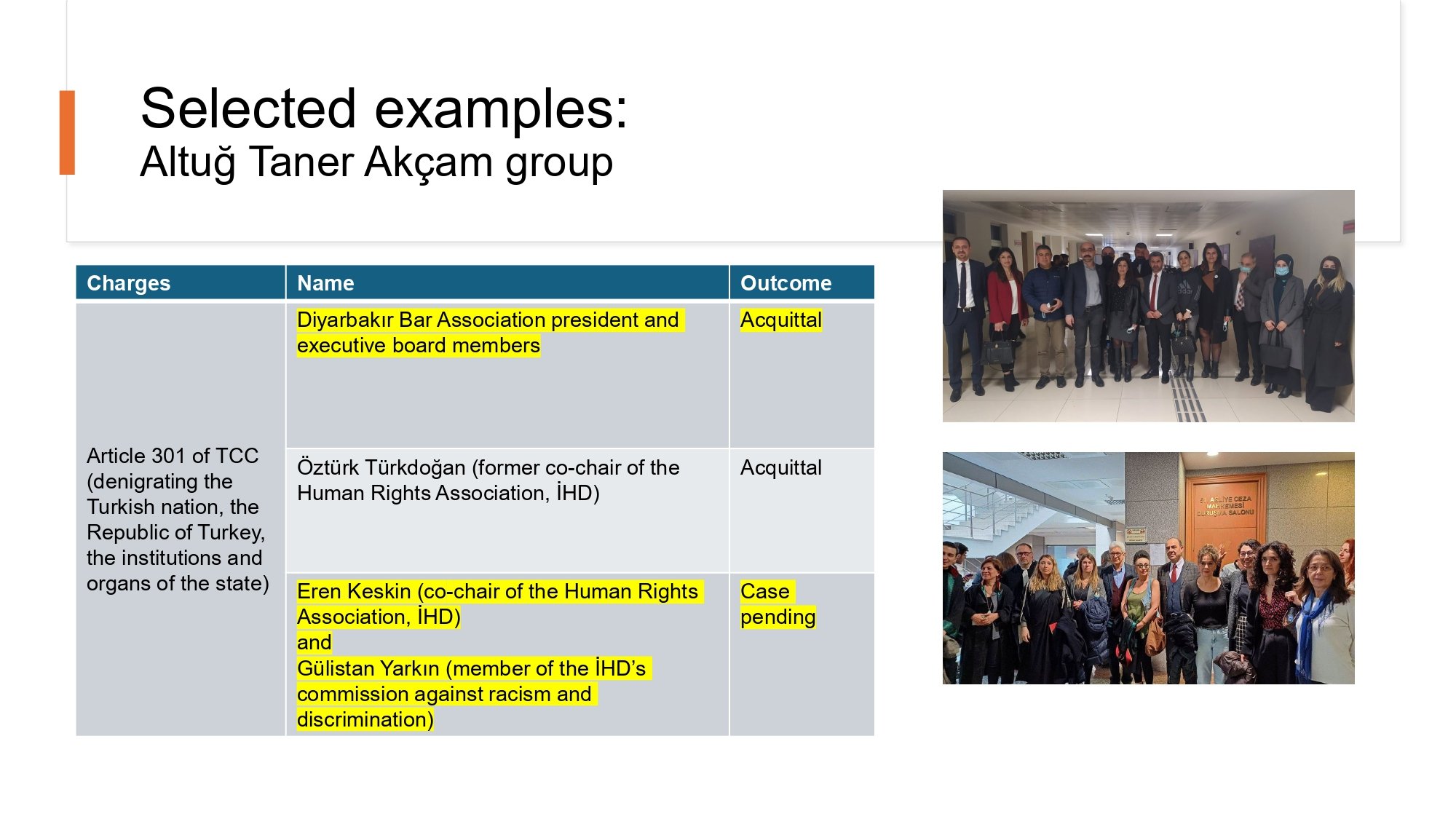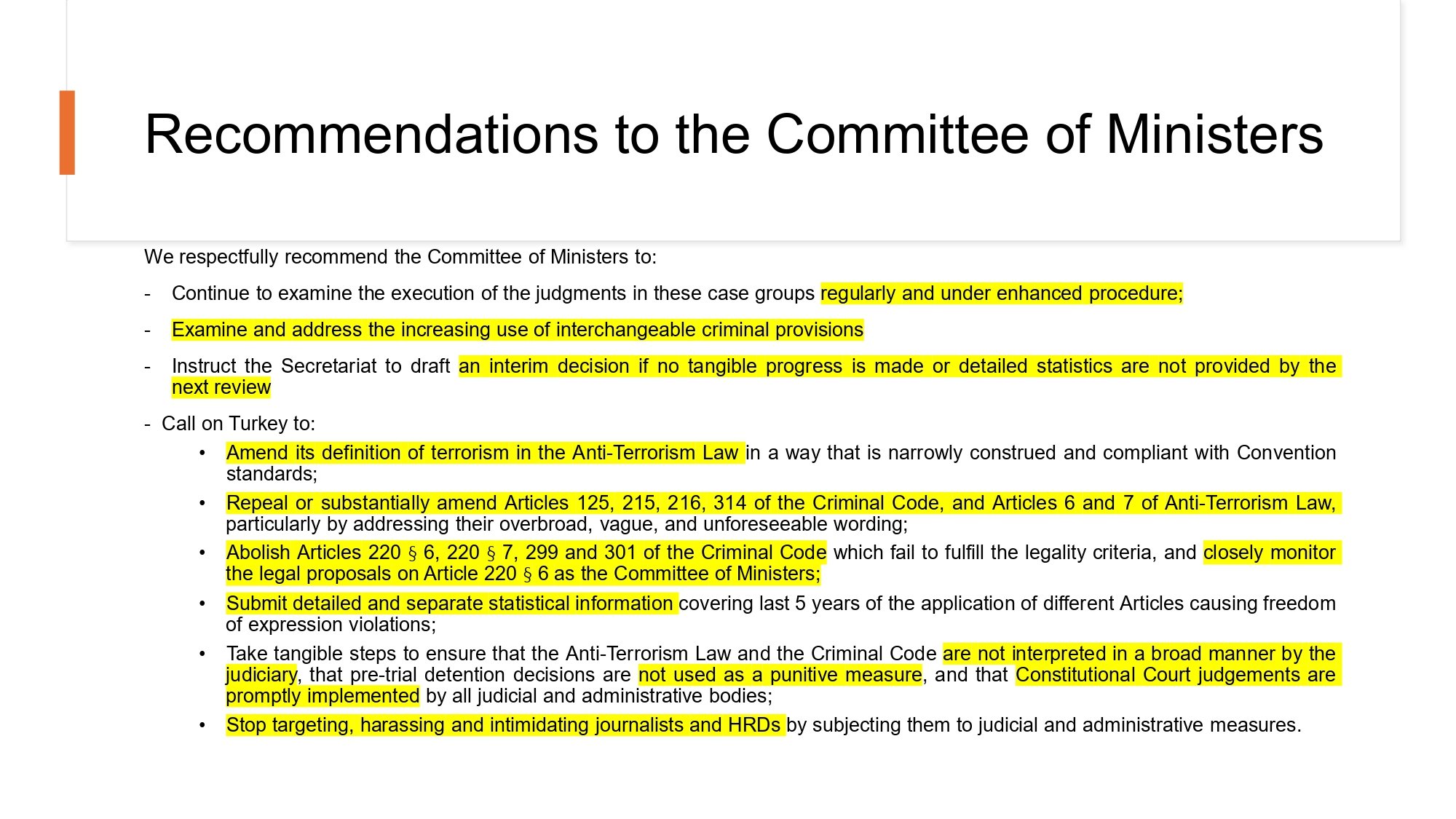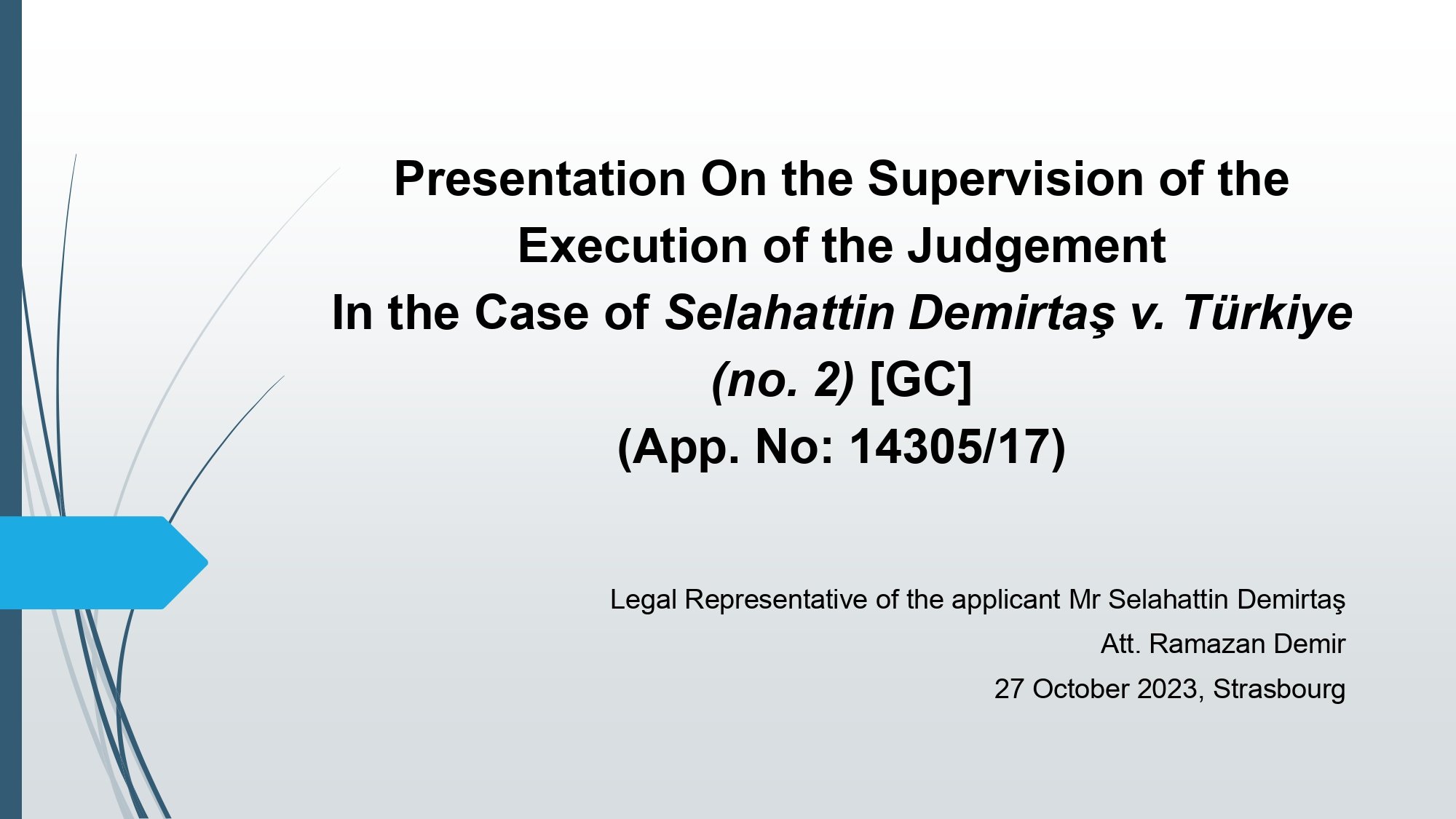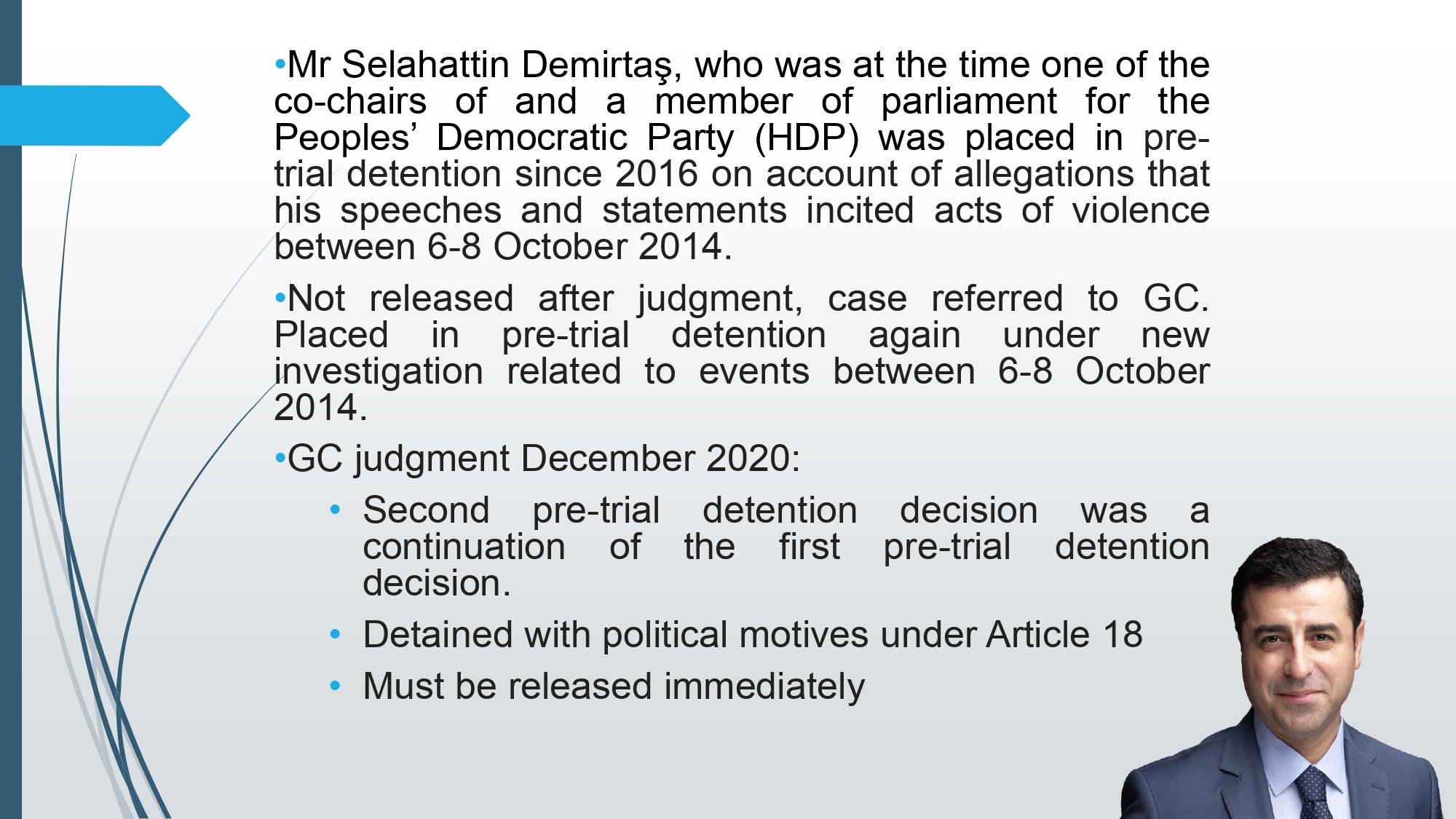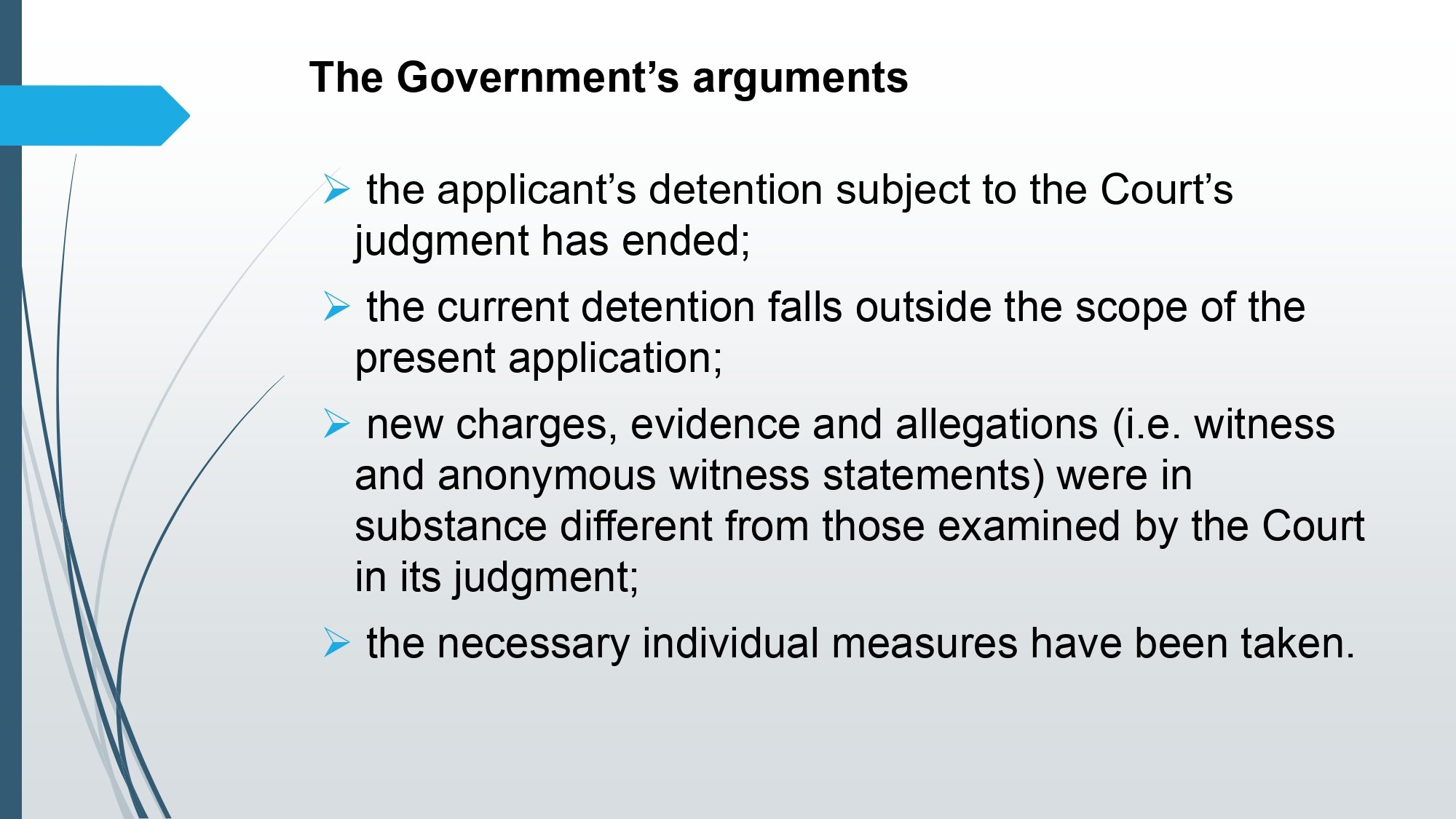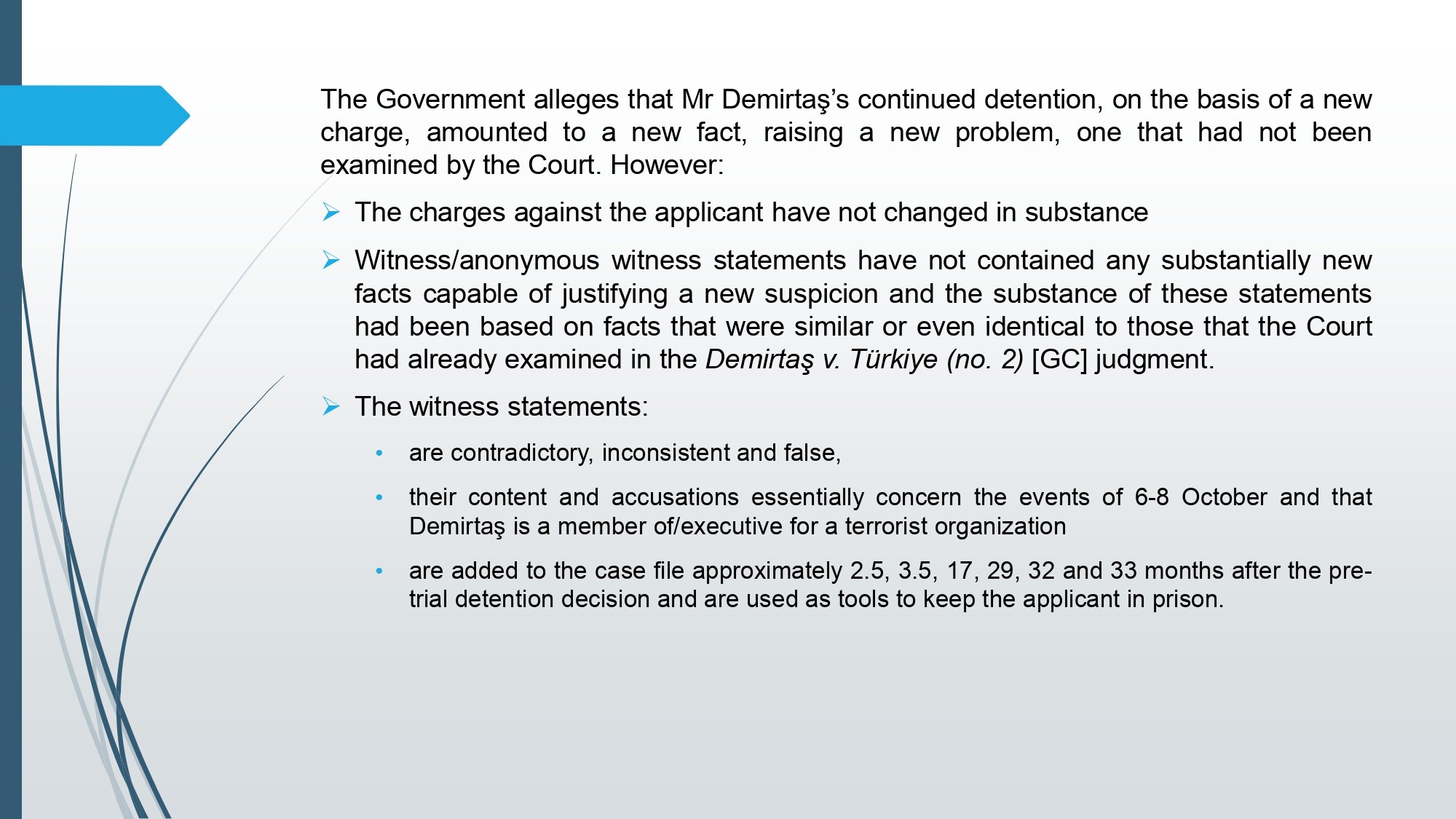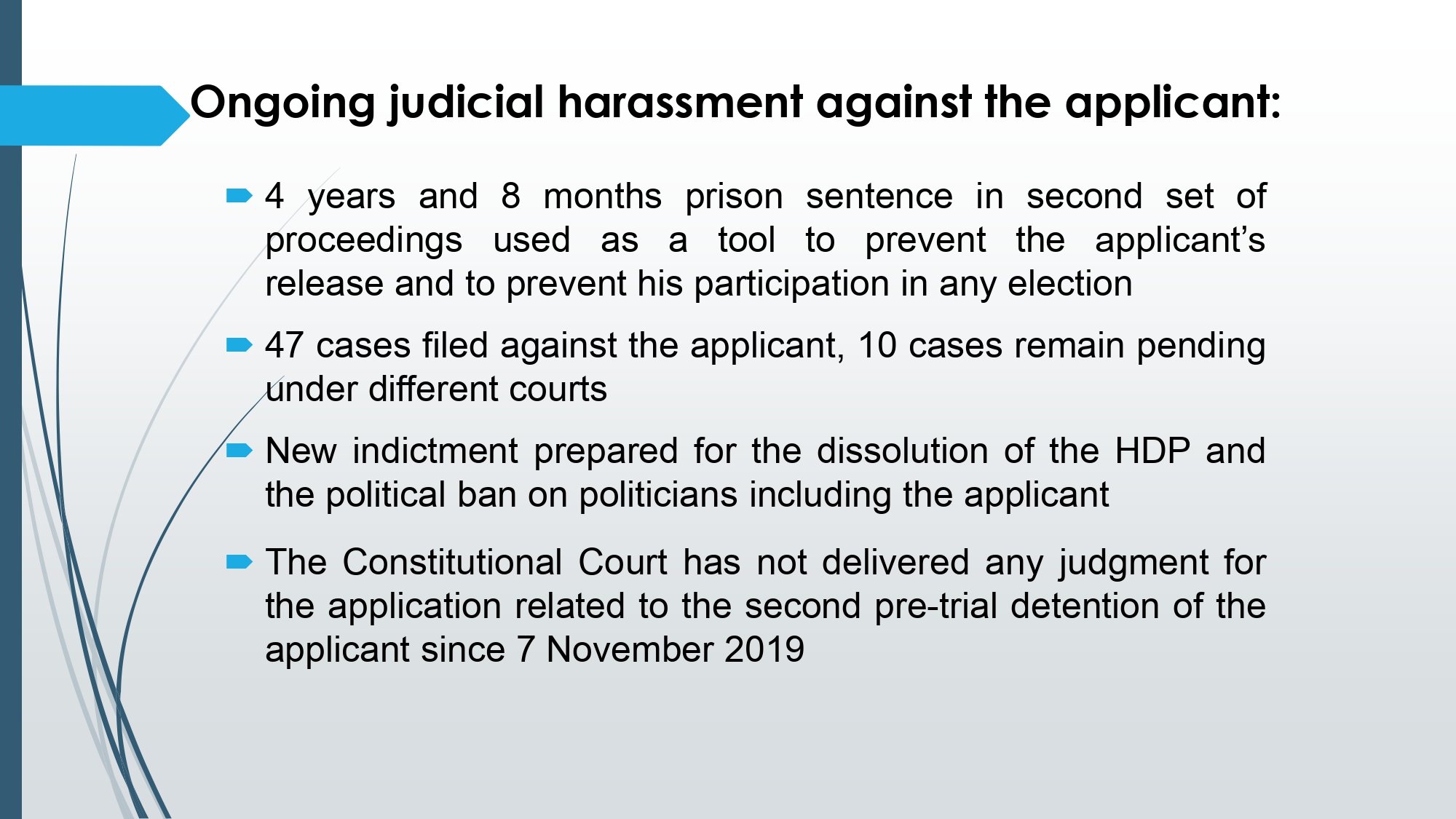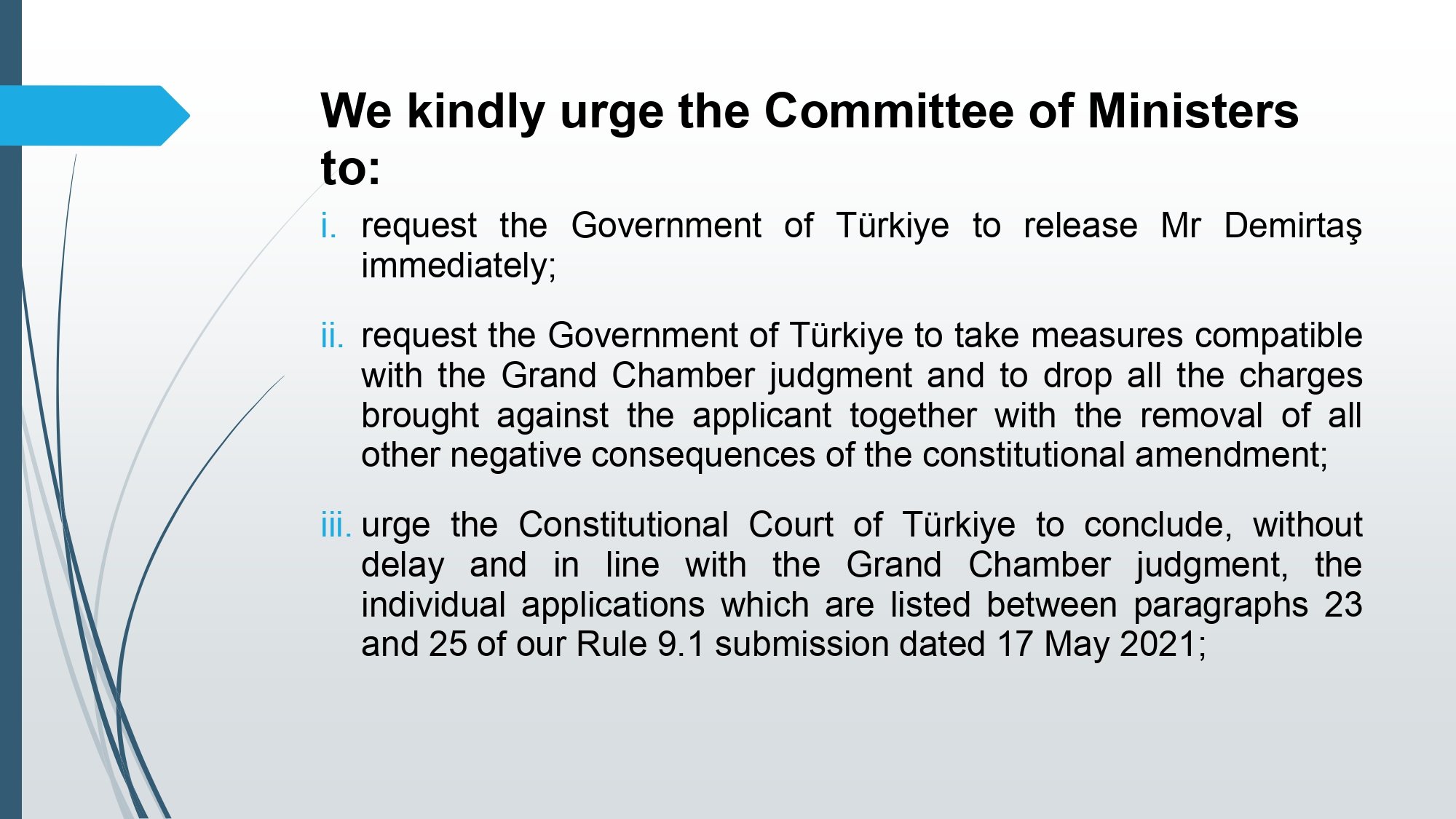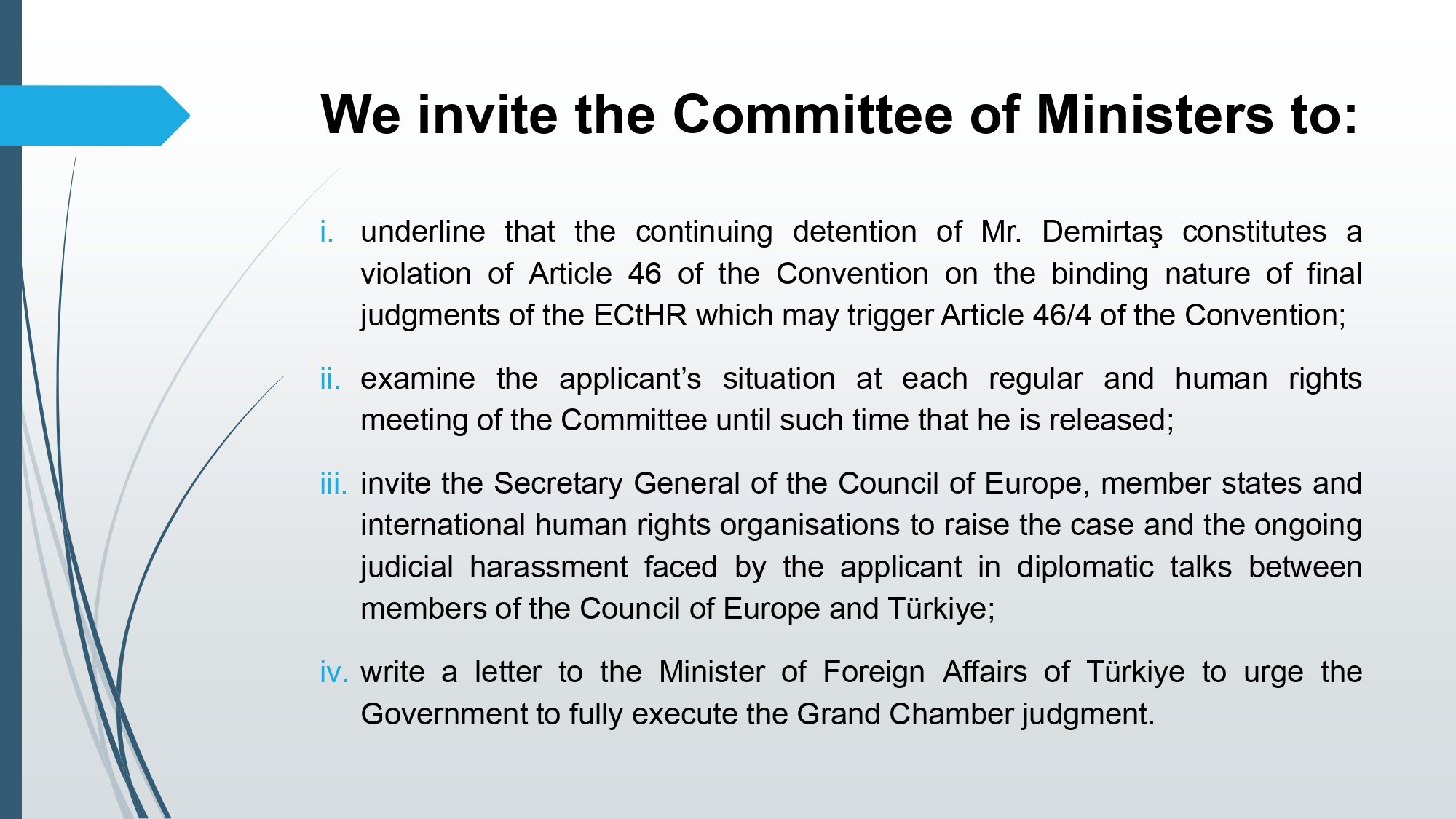EIN Advocacy Briefings
The EIN organises regular briefings on judgments of the European Court of Human Rights for members of the Committee of Ministers in view of their quarterly Human Rights (DH) meetings, where the implementation of judgments is discussed. With the briefings, we aim to provide the Committee with updated information on the progress of specific cases from civil society organisations on the ground.
These briefings are an opportunity for European civil society organisations to advocate for the implementation of ECtHR and as such are an inherent component of the freedom of expression project. To date, within the framework of the so-called project, six cases have been briefed.
Azerbaijan
The Khadija Ismayilova v. Azerbaijan group of cases concerns violations of the rights of an investigative journalist in Azerbaijan who exposed corruption involving the President’s family. In 2012, after refusing to stop her reporting despite threats, videos of her intimate moments, secretly recorded in her bedroom, were posted online, and newspapers accused her of anti-government bias and immorality. The European Court of Human Rights found that the authorities failed to protect her privacy and journalistic freedom, and inadequately investigated the incidents, violating Articles 8 and 10. This case has been pending for more than five years.
Bulgaria
The Miroslava Todorova v. Bulgaria case concerns the disciplinary sanctioning of a judge, who had criticised the Supreme Judicial Council (SJC) and the executive, as well as government policies on judicial independence and actions in the context of public concerns about corruption. The European Court of Human Rights ruled that the sanctions (reduction in salary and dismissal from office) violated her freedom of expression (Article 10) and were intended to penalise and intimidate her for her criticism, also breaching Article 18 in conjunction with Article 10. The Court highlighted the disproportionate nature of the sanctions and their chilling effect on the judiciary.
Georgia
Makarashvili and Others v. Georgia group of cases (presented in conjunction with the Tsintsabadze v. Georgia group of cases which have now become interconnected as per the current circumstances)
The Makarashvili and Others v. Georgia group of cases concerns violations of the applicants’ rights to freedom of assembly and a violation of one applicant’s right to a fair trial, as a result of the administrative trial and convictions for disorderly conduct and disobeying police orders during demonstrations in 2015 and in 2019.
The Court held that the domestic courts did not provide relevant and sufficient reasons to justify the applicants’ convictions or sentences and that their reliance on police testimony compromised the fairness of the proceedings, leading to violations of Article 11 of the Convention read in the light of Article 10 and of Articles 6 and 11. Additionally, in one case, it found a breach of Article 5 due to the applicant’s arbitrary arrest and detention in 2016.
Hungary
The Baka v Hungary case concerns the premature termination, via ad hominem legislative measures, of the applicant’s (President of the former Hungarian Supreme Court) term of office. The termination was found to have violated his right of access to a court as guaranteed by Article 6 § 1 because of the absence of judicial review. The Court found that these measures had been prompted by the views and criticisms expressed by the applicant on issues of public interest (planned major reform of the judicial system) and had violated Article 10 as they had not pursued any legitimate aim linked to the judicial reform at issue, nor had the measures been necessary in a democratic society.
The Manole and others v the Republic of Moldova case concerns concerns undue interferences with the right of freedom of expression of journalists, editors and producers working at the state television company Teleradio-Moldova on account of censorship and political control by the state authorities in the period 2001-2006. The Court found a violation of Article 10 arising inter alia from insufficient statutory guarantees of independence for the public broadcaster. It noted that the legislative framework had been flawed throughout, in that it did not provide sufficient safeguards against the control of Teleradio-Moldova’s senior management, and thus its editorial policy, by the political organ of the government.
The Court indicated under Article 46 that the Republic of Moldova was under a legal obligation to take general measures at the earliest opportunity to remedy the situation, including by undertaking legislative reform to ensure that the legal framework complies with the requirements of Article 10, which also takes into account the Committee of Ministers' Recommendation Rec(96)10 on the guarantees of the independence of public service broadcasting and the recommendations of the Council of Europe experts on the draft law on public service broadcasting in Moldova.
Türkiye
Selahattin Demirtaş (No. 2) v Türkiye (January 2025 briefing)
The Selahattin Demirtaş (No. 2) v Türkiye case concerns the arrest and pre-trial detention of, and criminal proceedings against, the applicant, a member of the National Assembly and one of the leaders of the Peoples’ Democratic Party (HDP, a pro-Kurdish opposition party).
The Öner and Turk v Türkiye, Işıkırık v Türkiye, Altuğ Taner Akçam v Türkiye, Artun and Güvener v Türkiye and Nedim Şener v Türkiye groups of cases concern unjustified and disproportionate interferences with the applicants’ freedom of expression on account of criminal proceedings for having expressed opinions that did not incite hatred or violence, and the consequent chilling effect on society as a whole.
Selahattin Demirtaş (No. 2) v Türkiye (October 2023 briefing)
The Selahattin Demirtaş (No. 2) v Türkiye case concerns the arrest and pre-trial detention of, and criminal proceedings against, the applicant, a member of the National Assembly and one of the leaders of the Peoples’ Democratic Party (HDP, a pro-Kurdish opposition party).



























